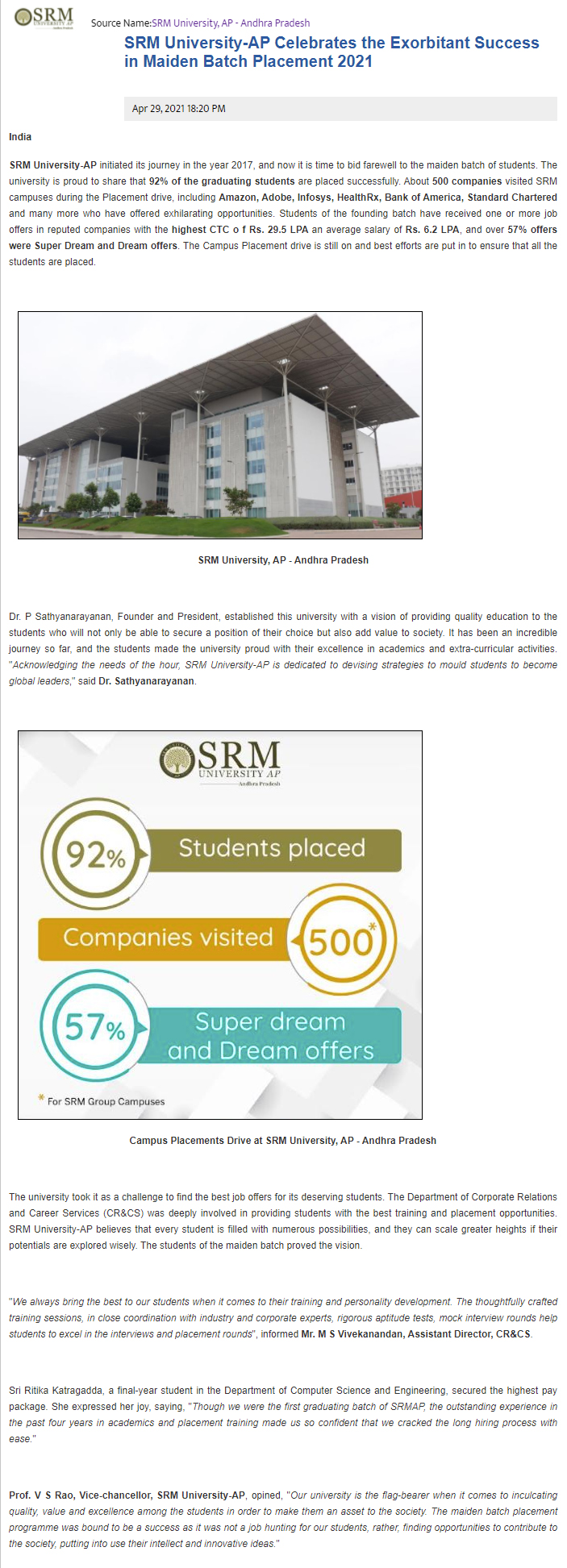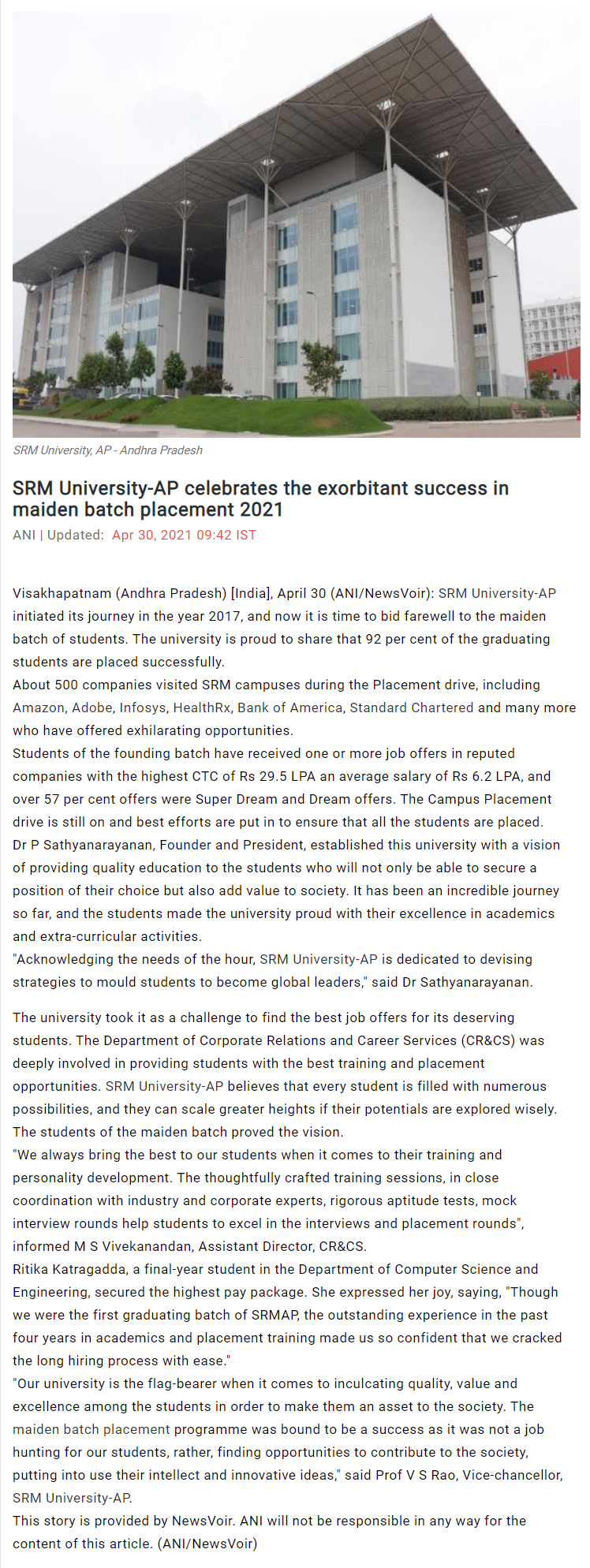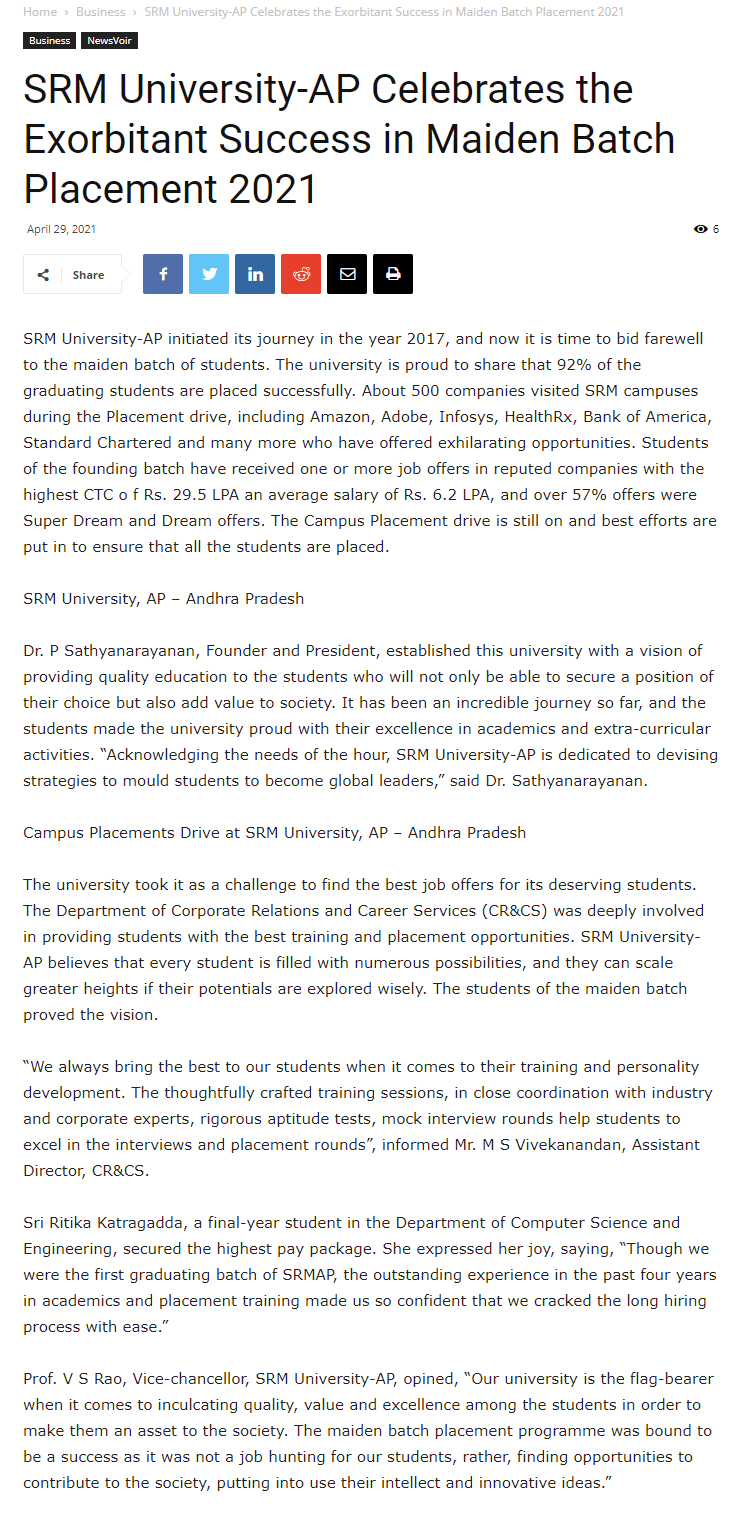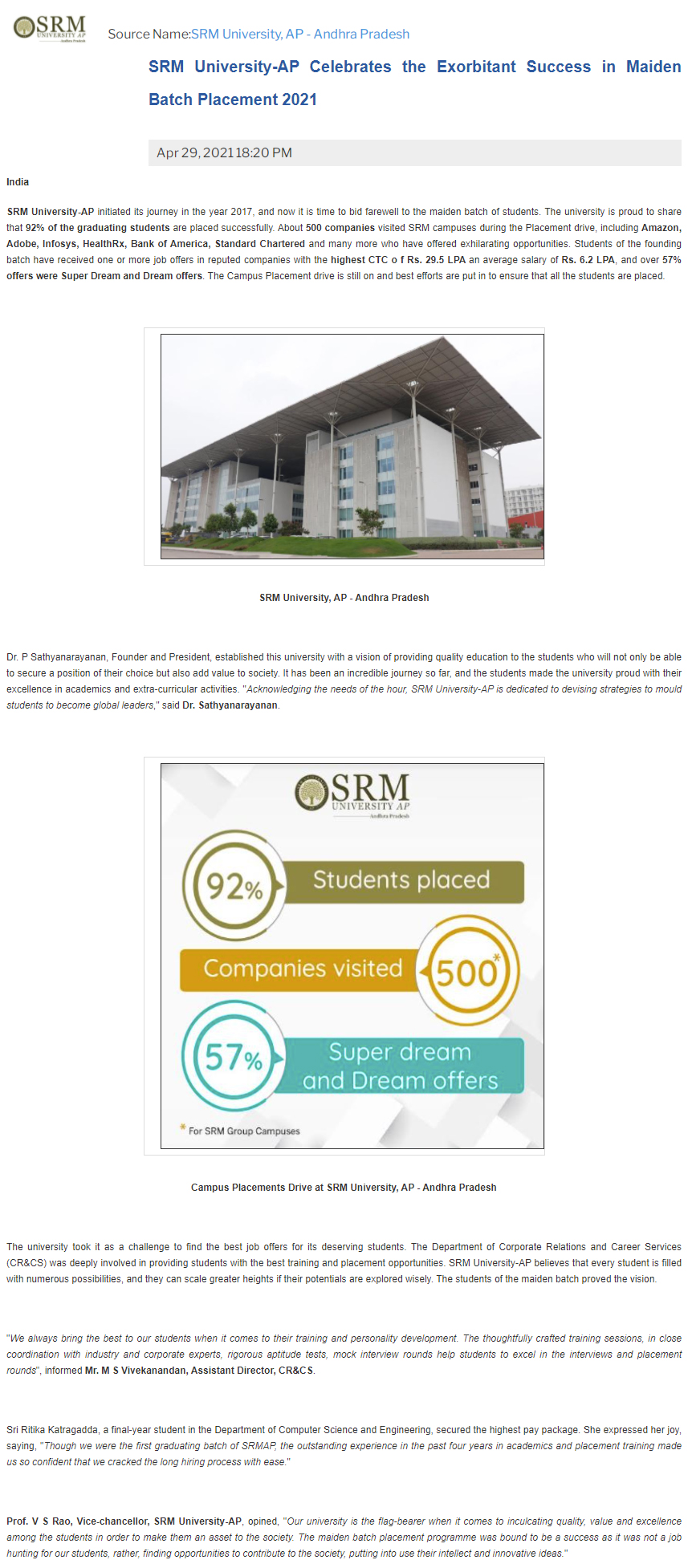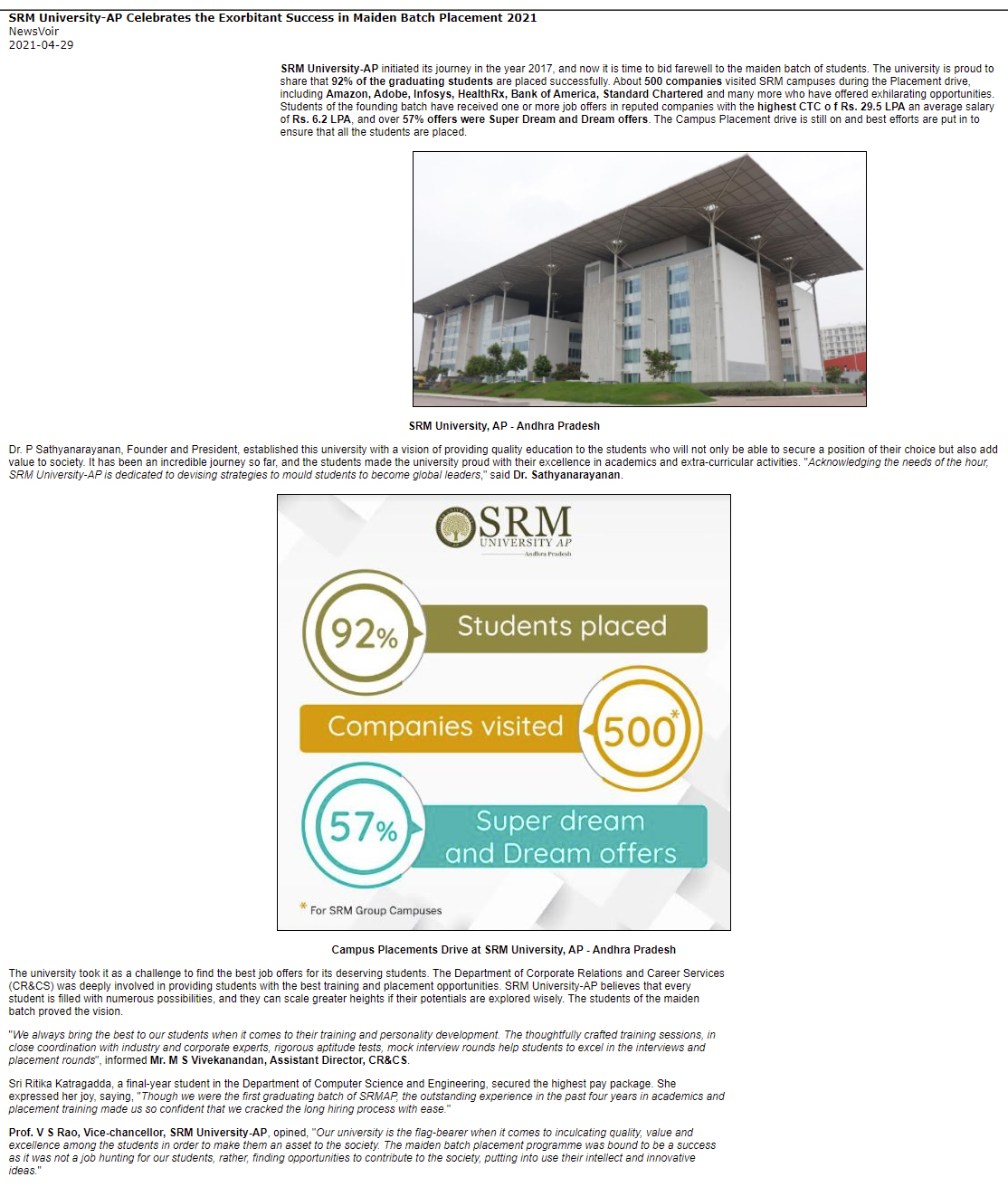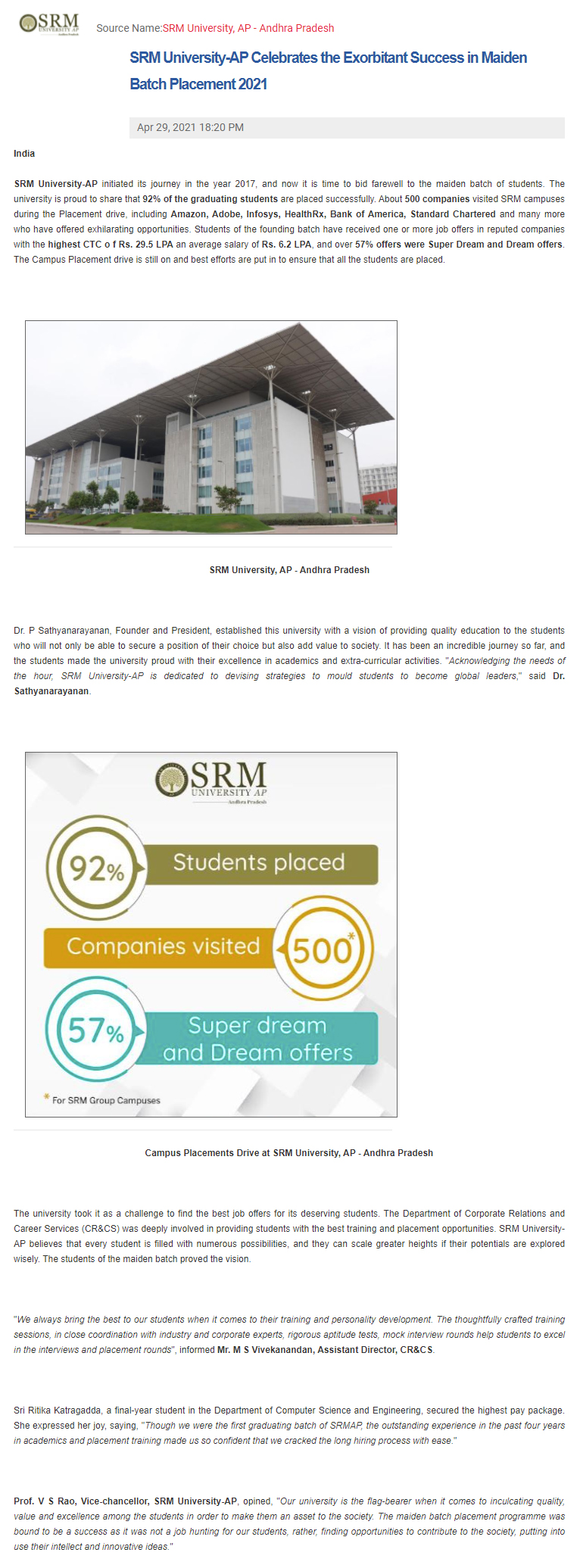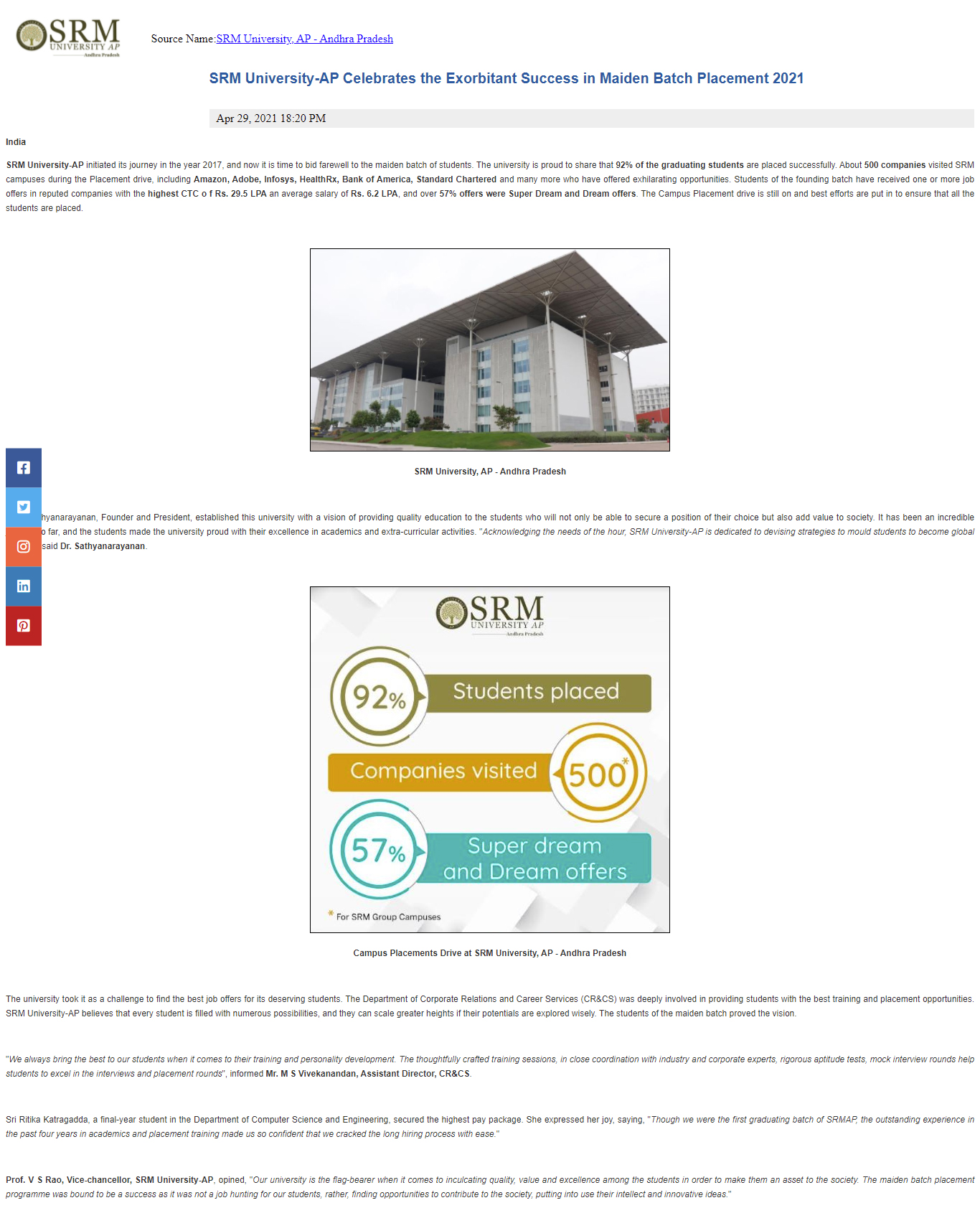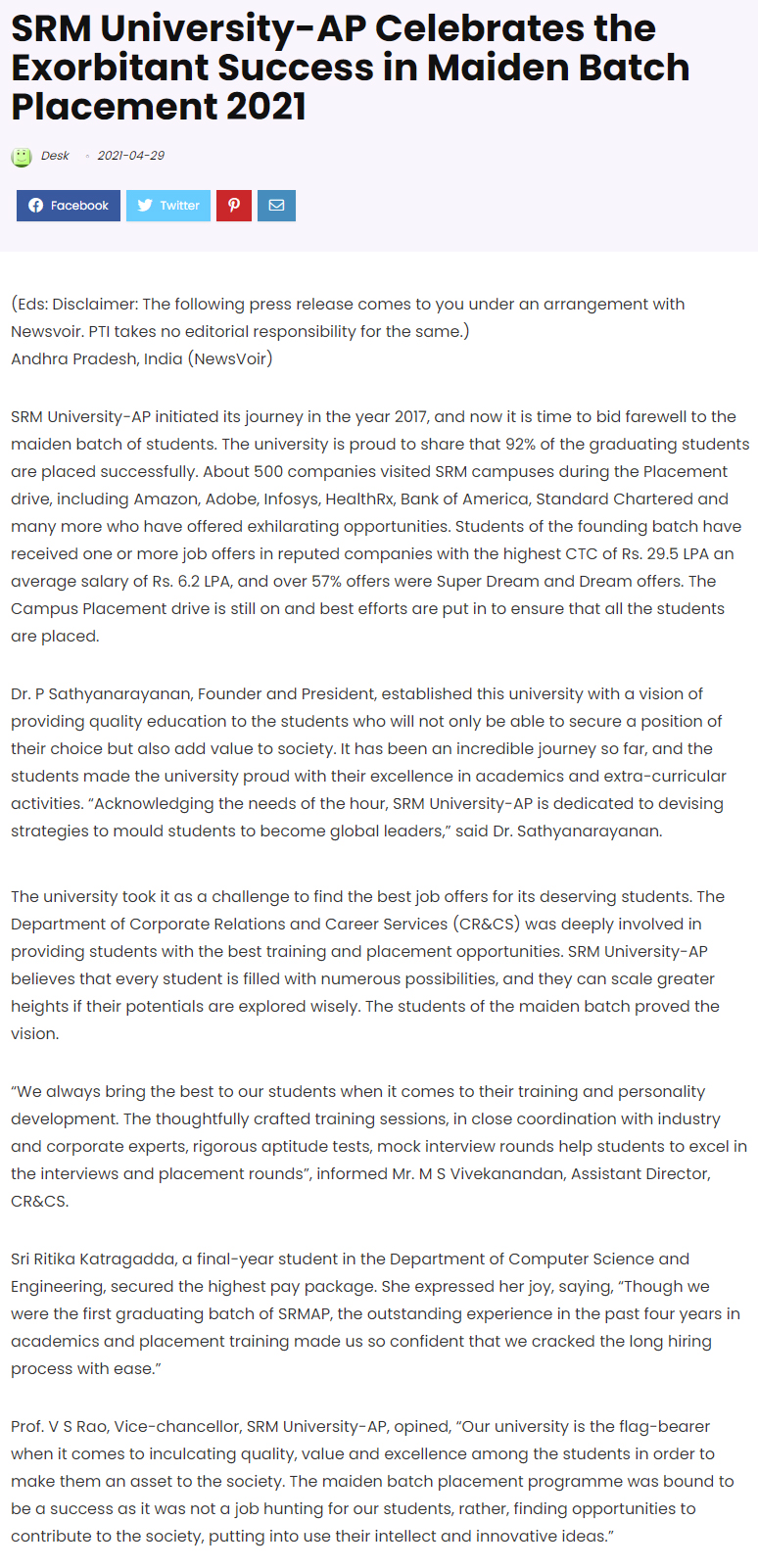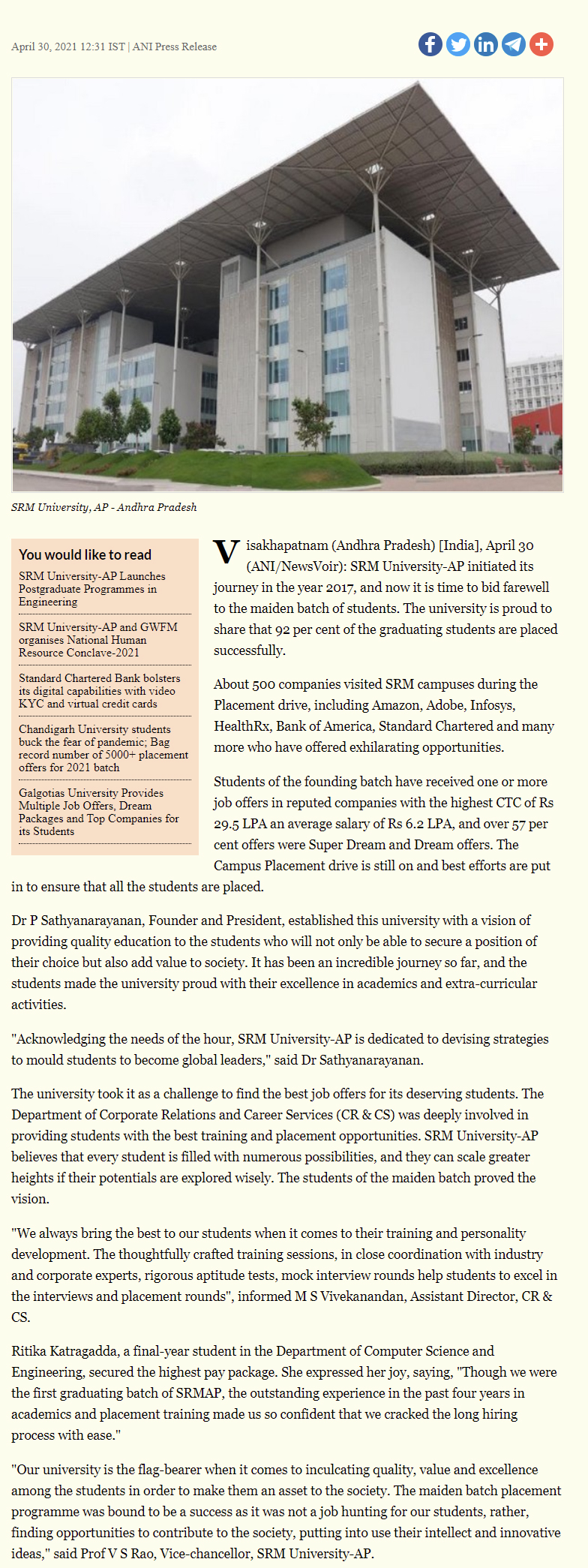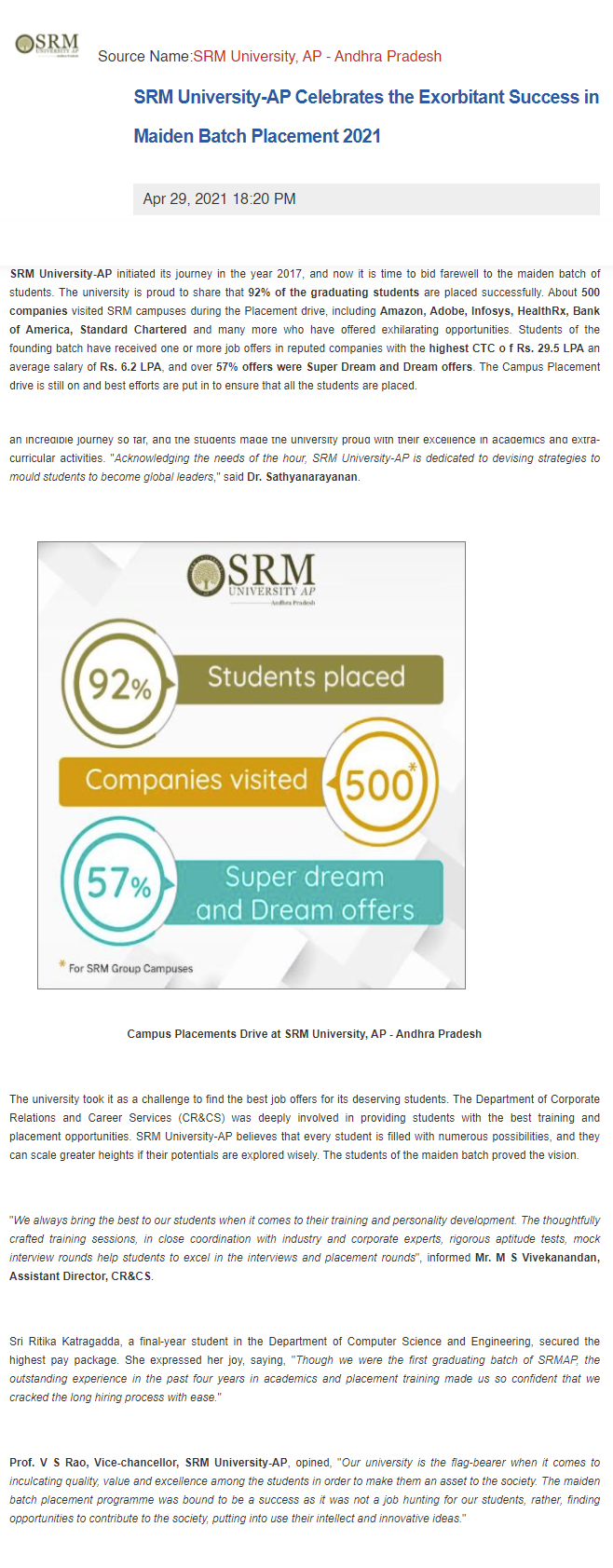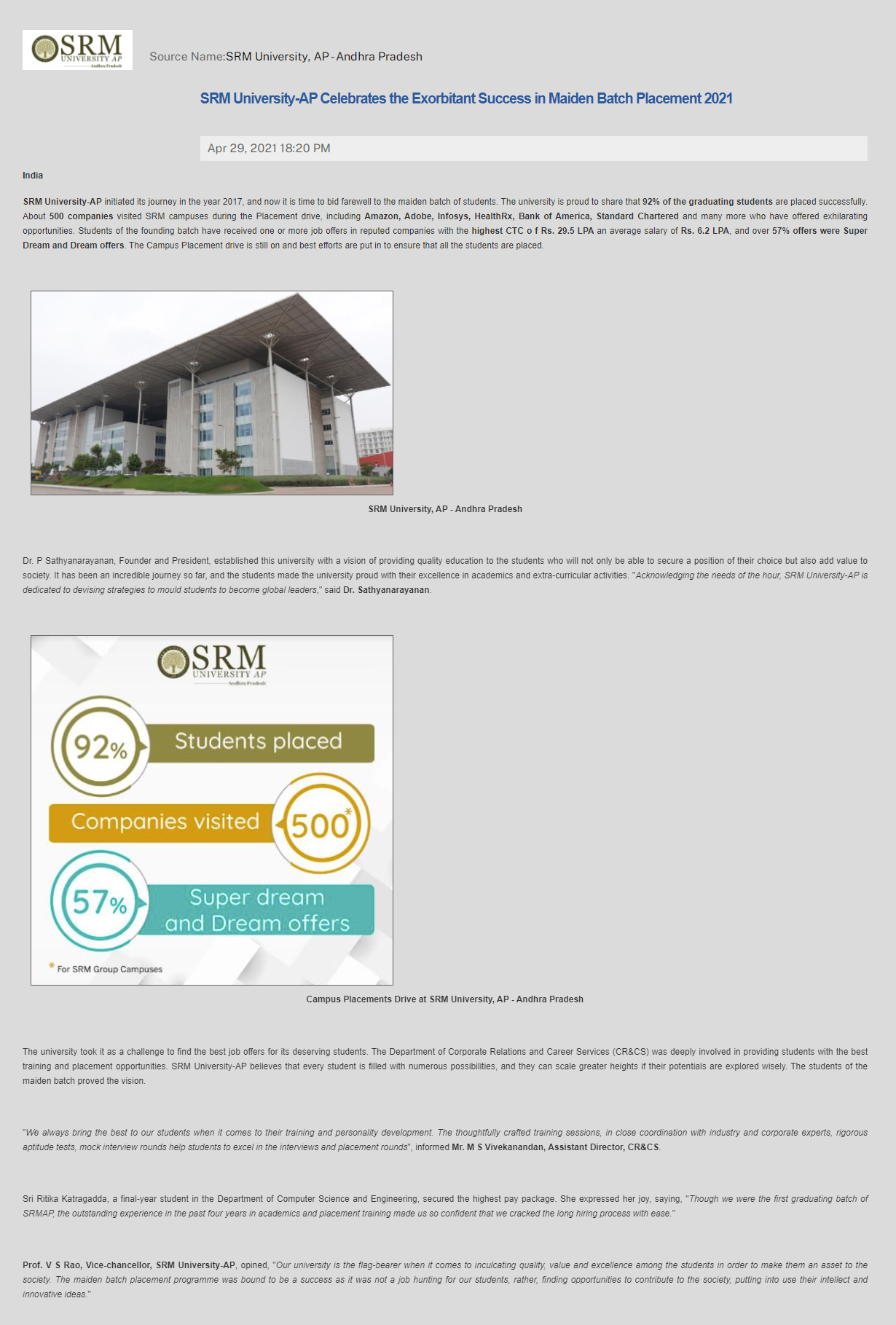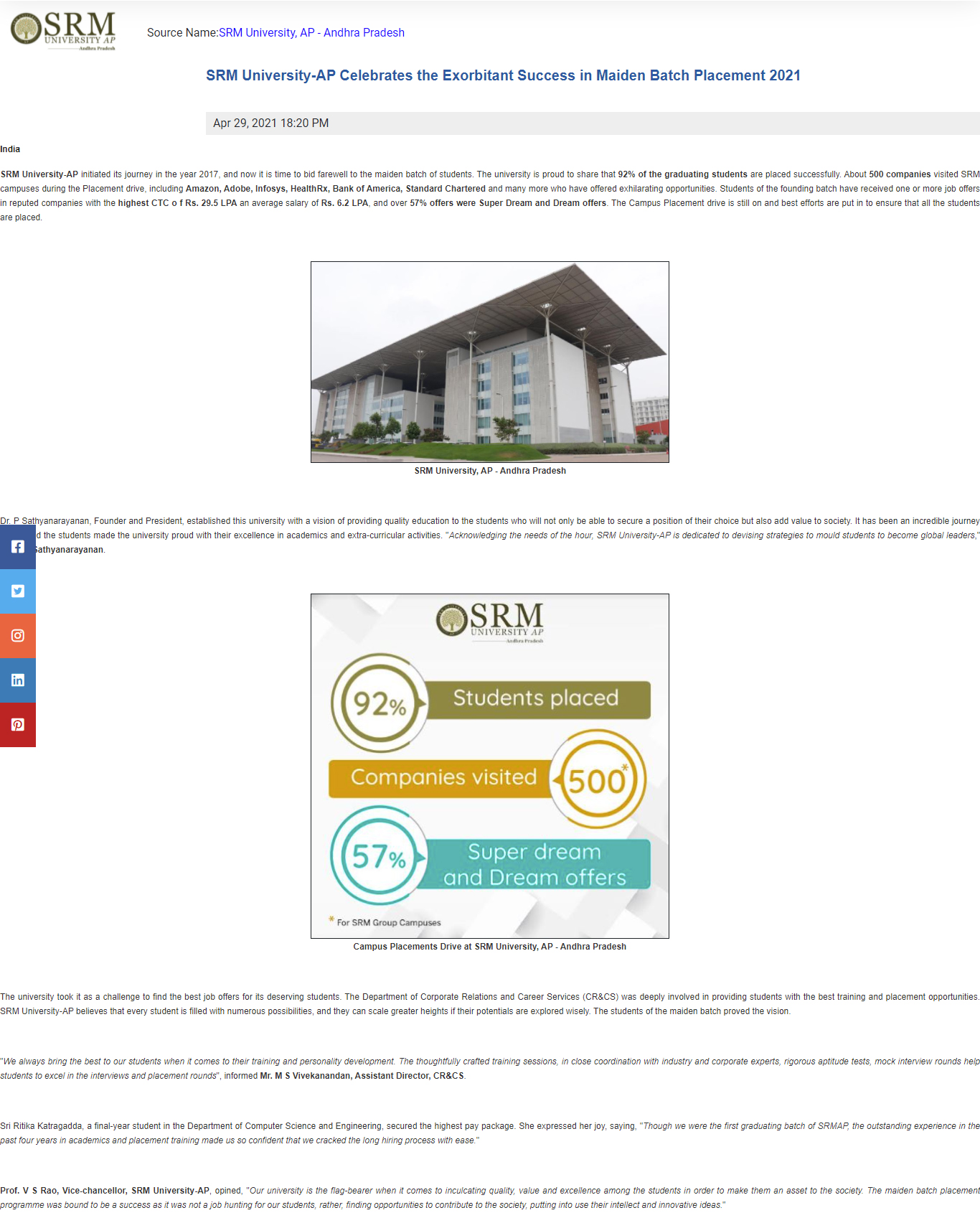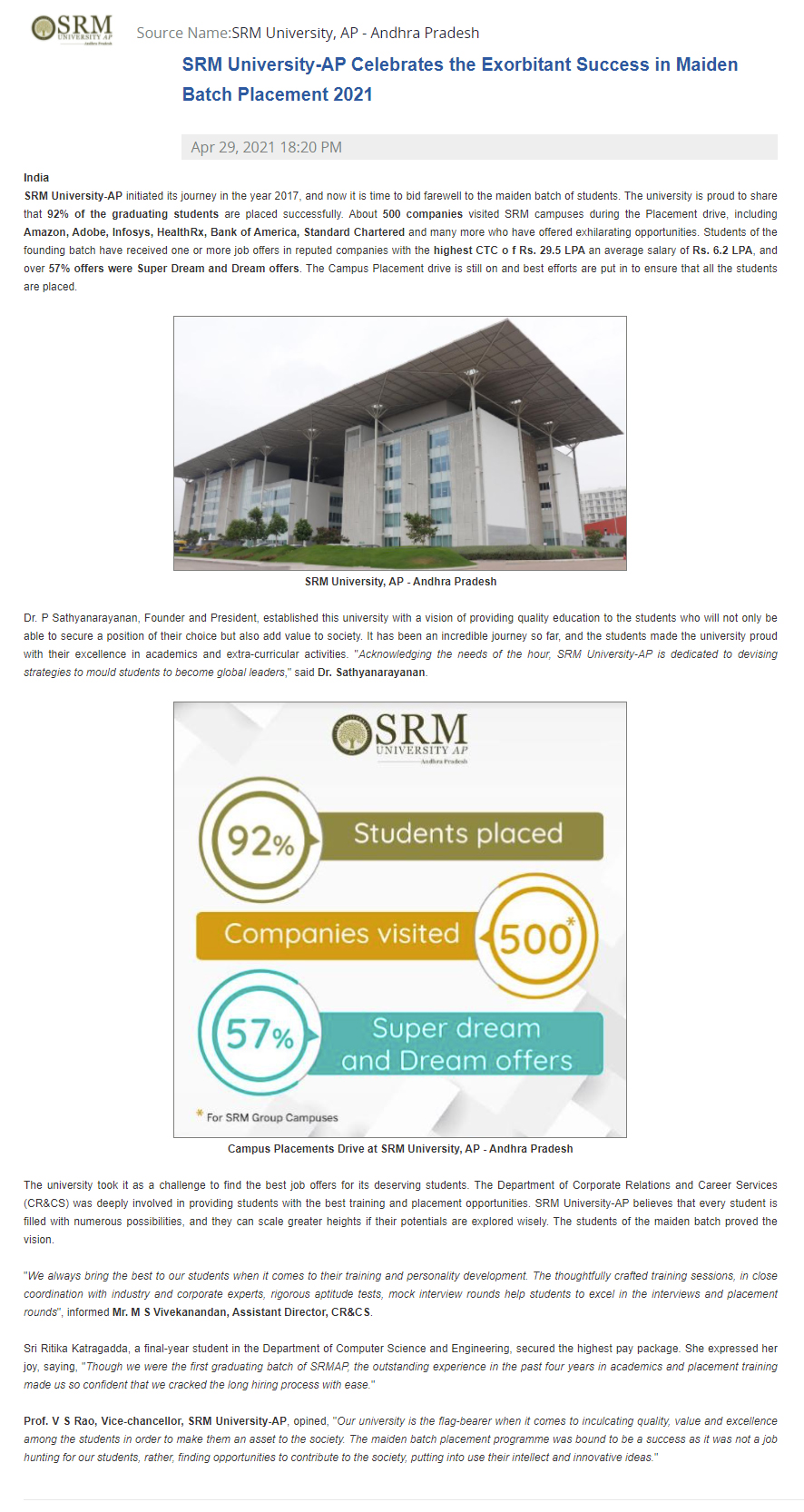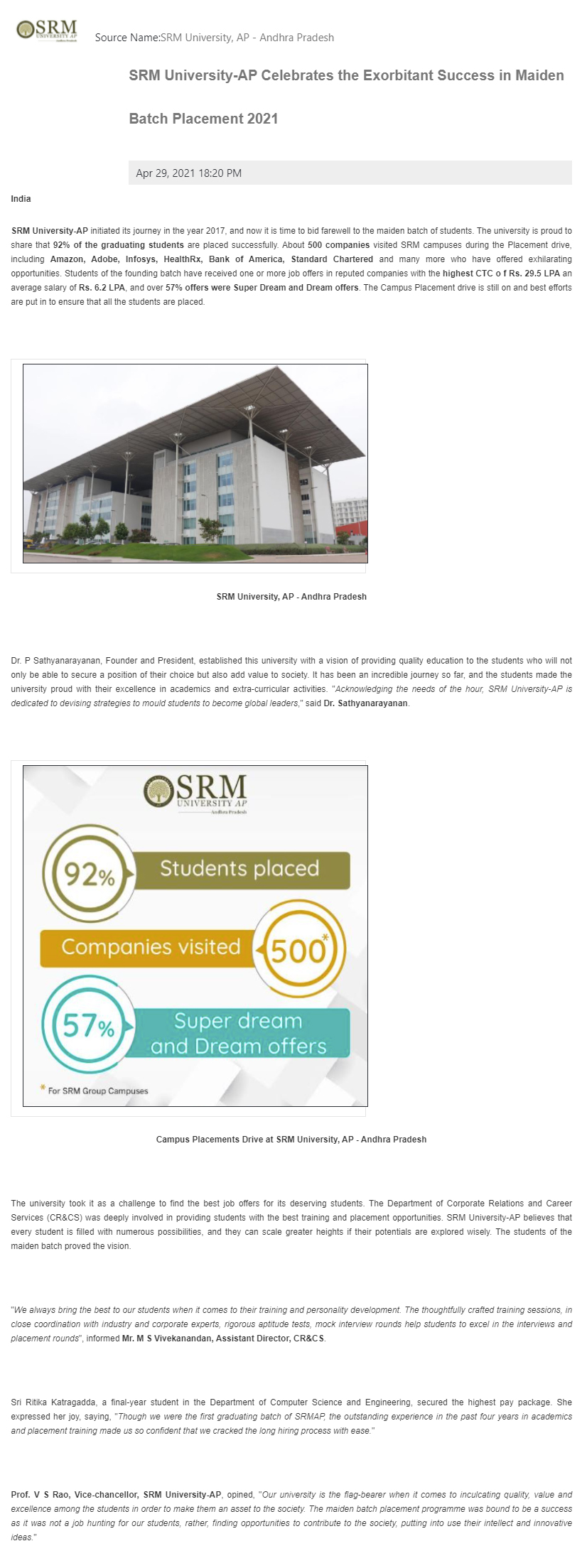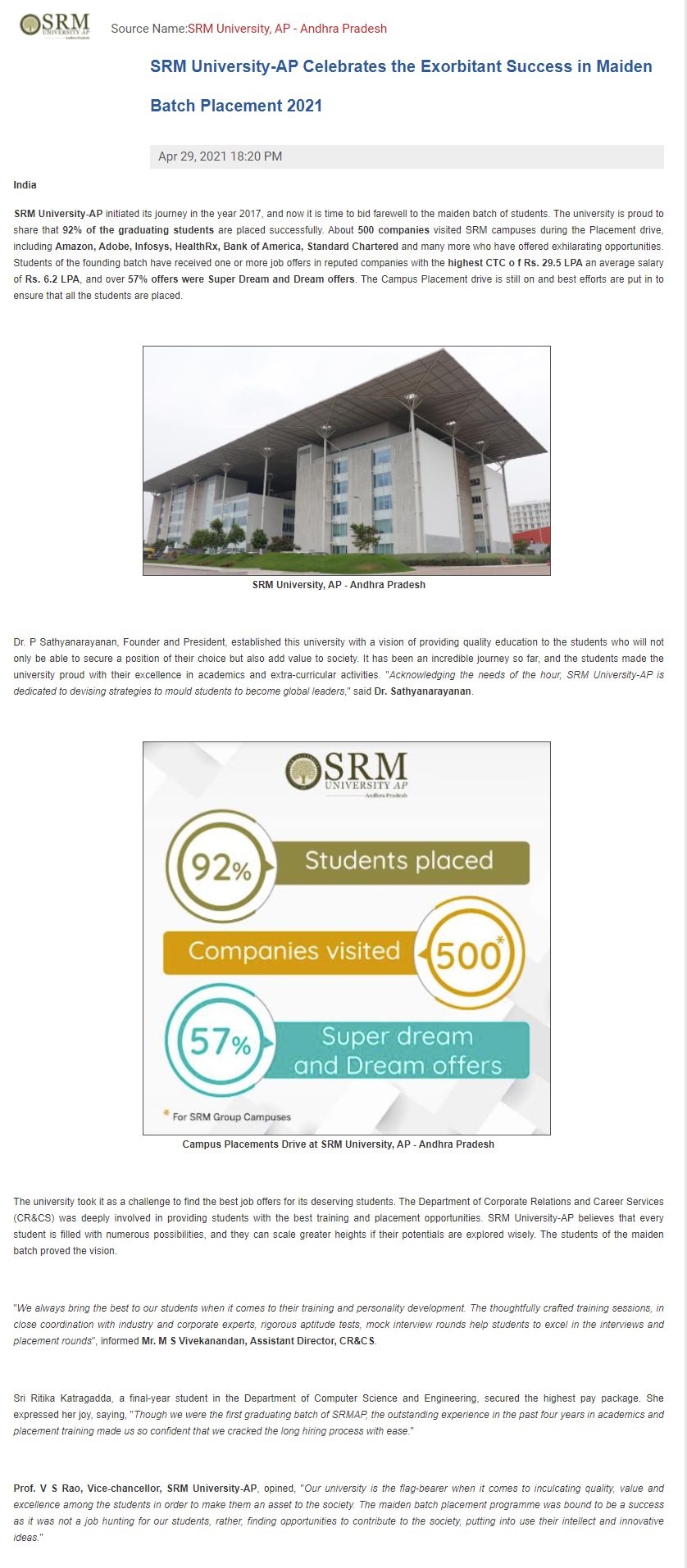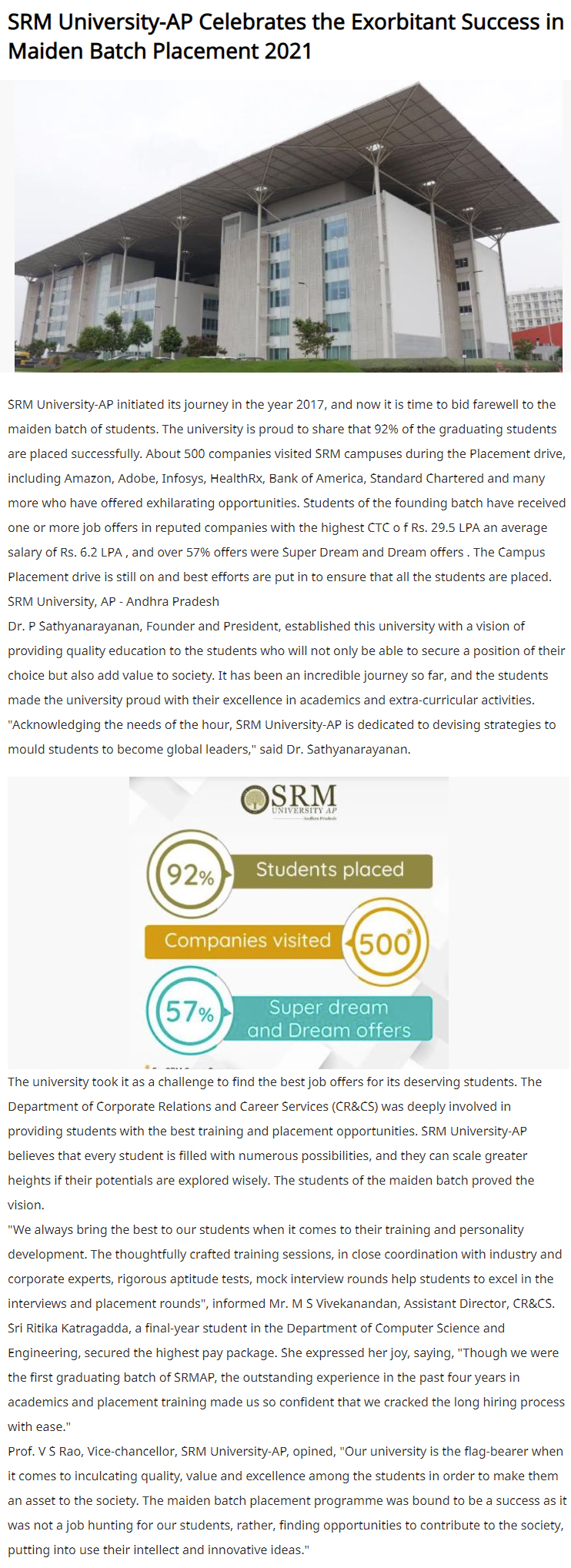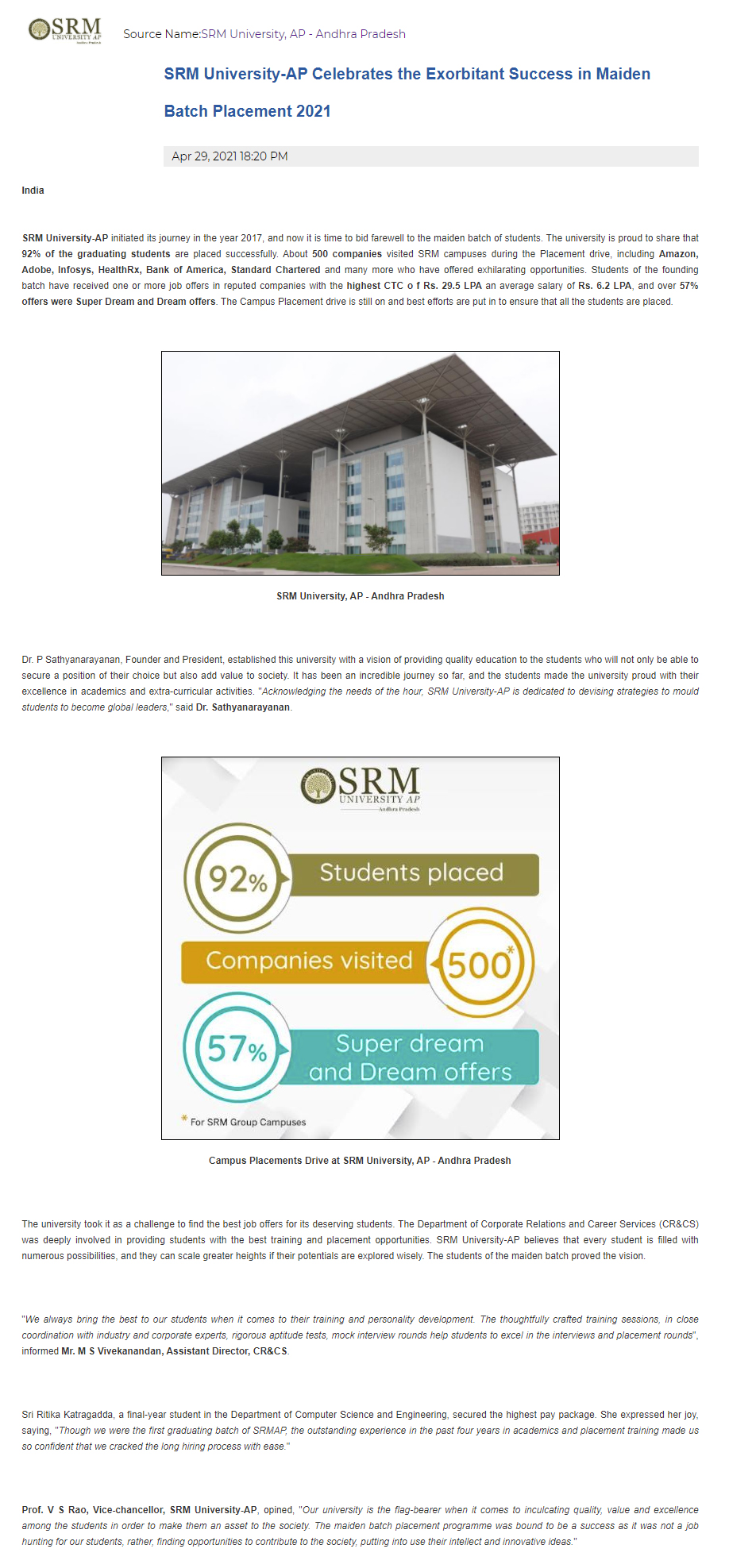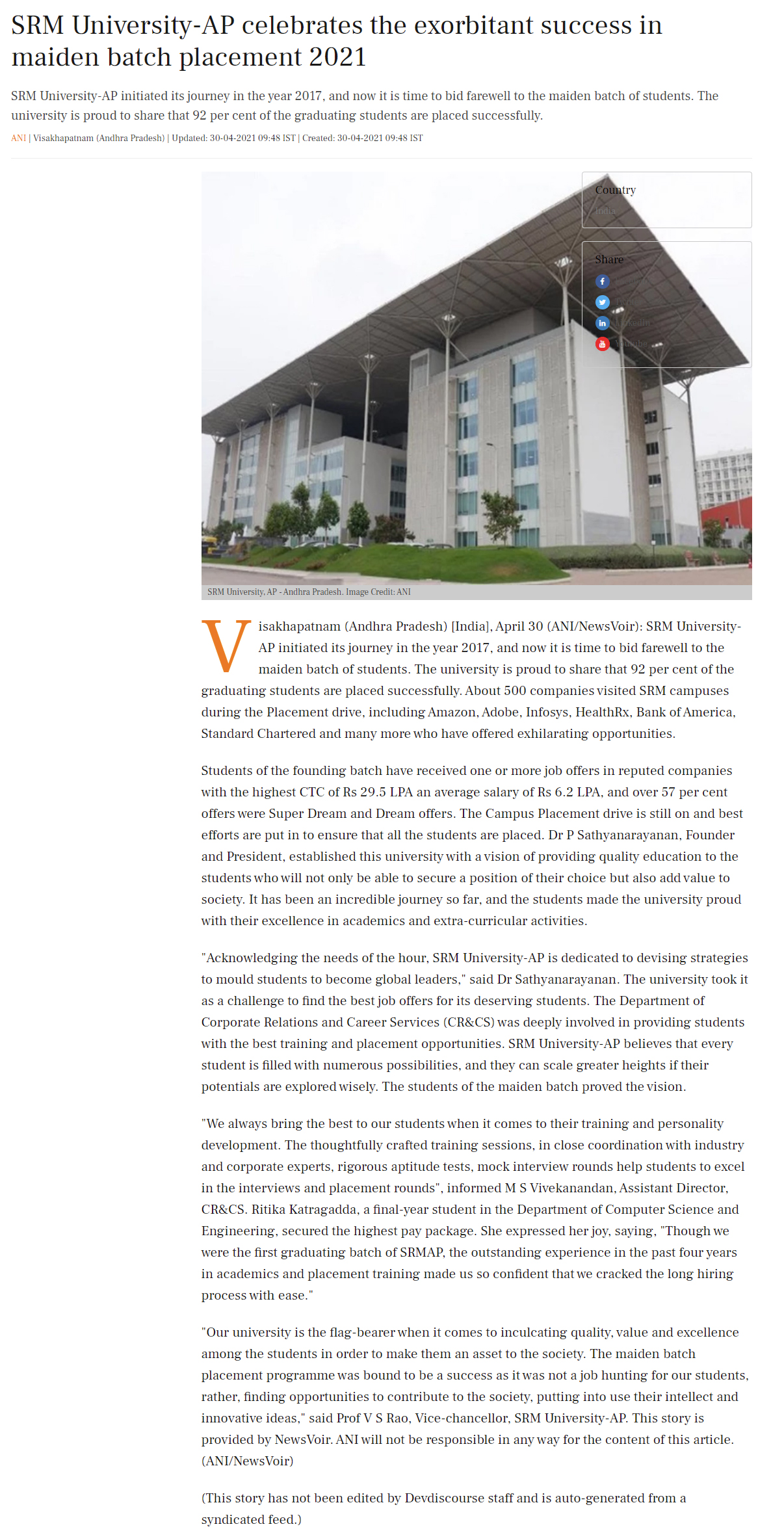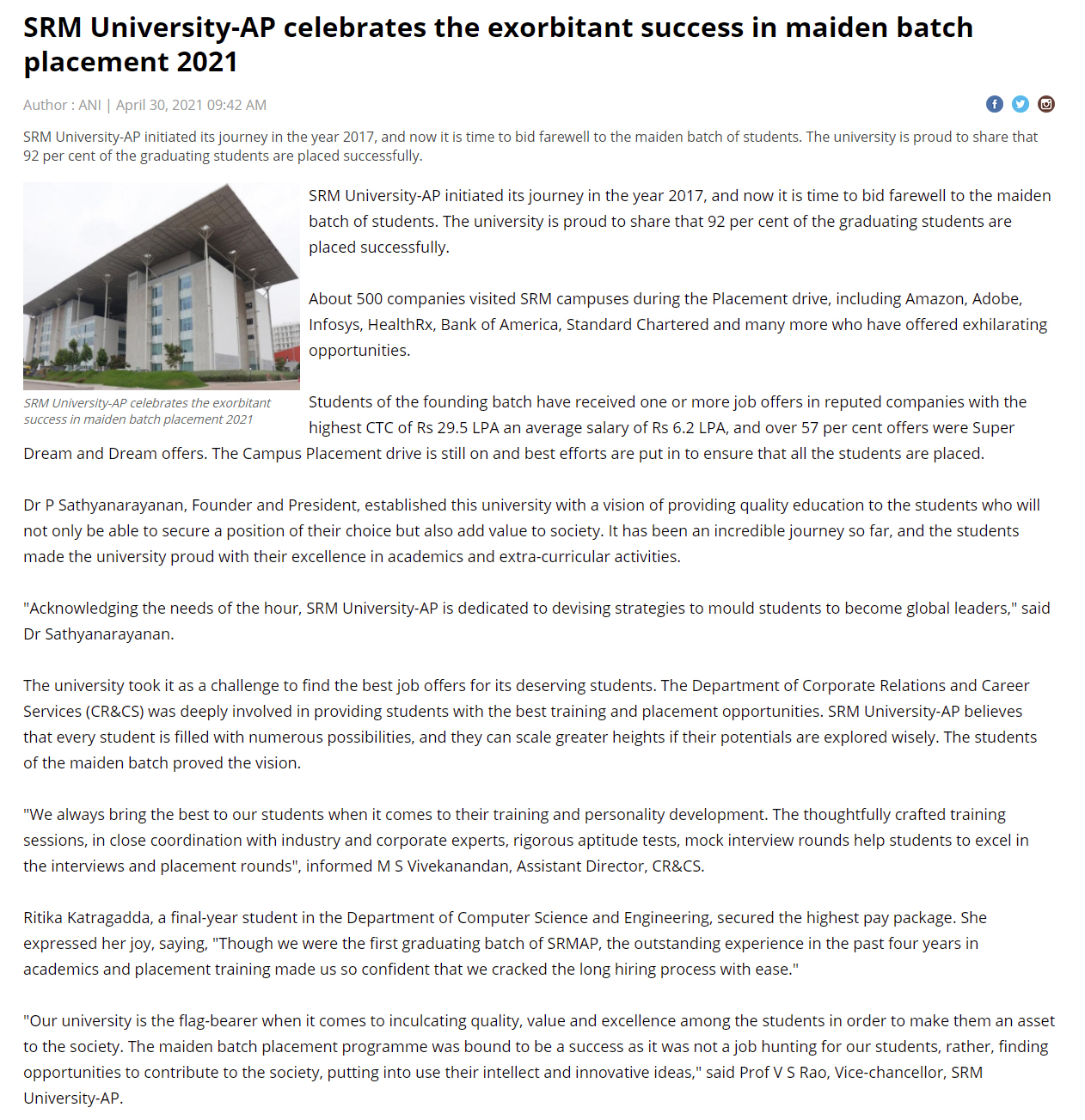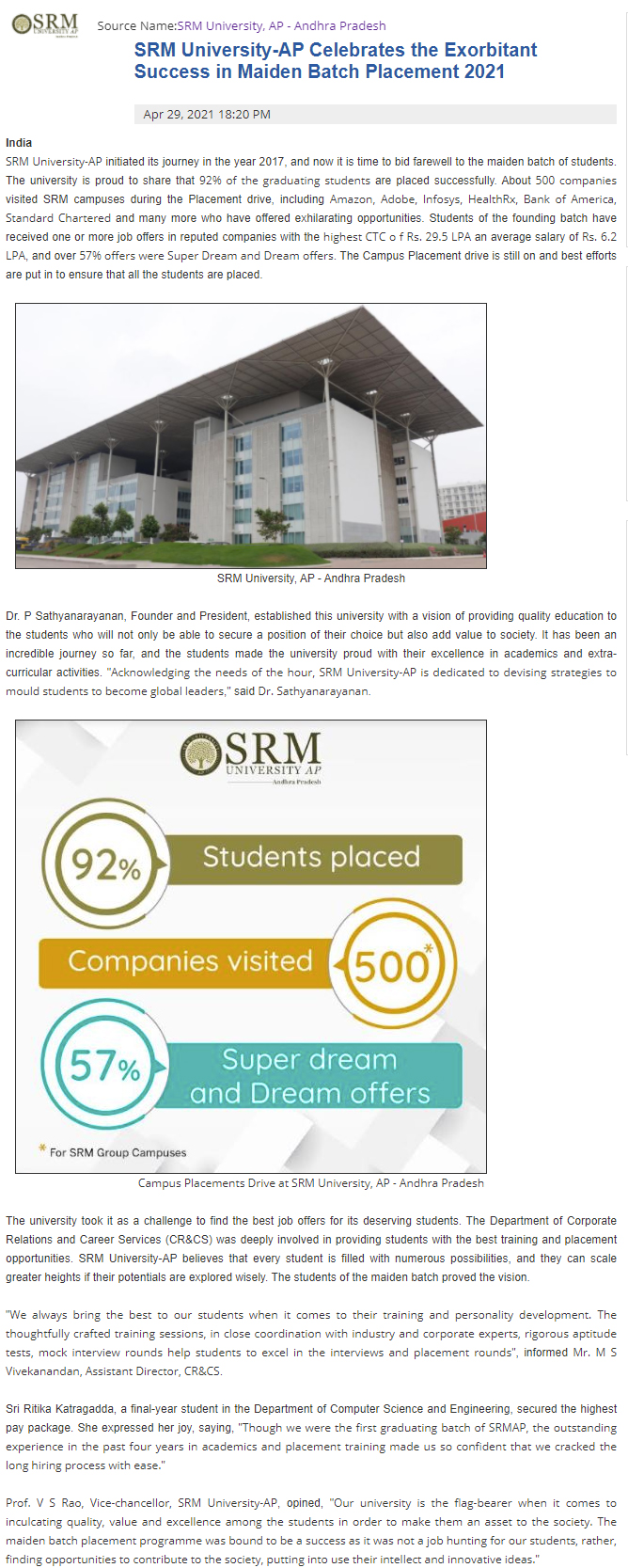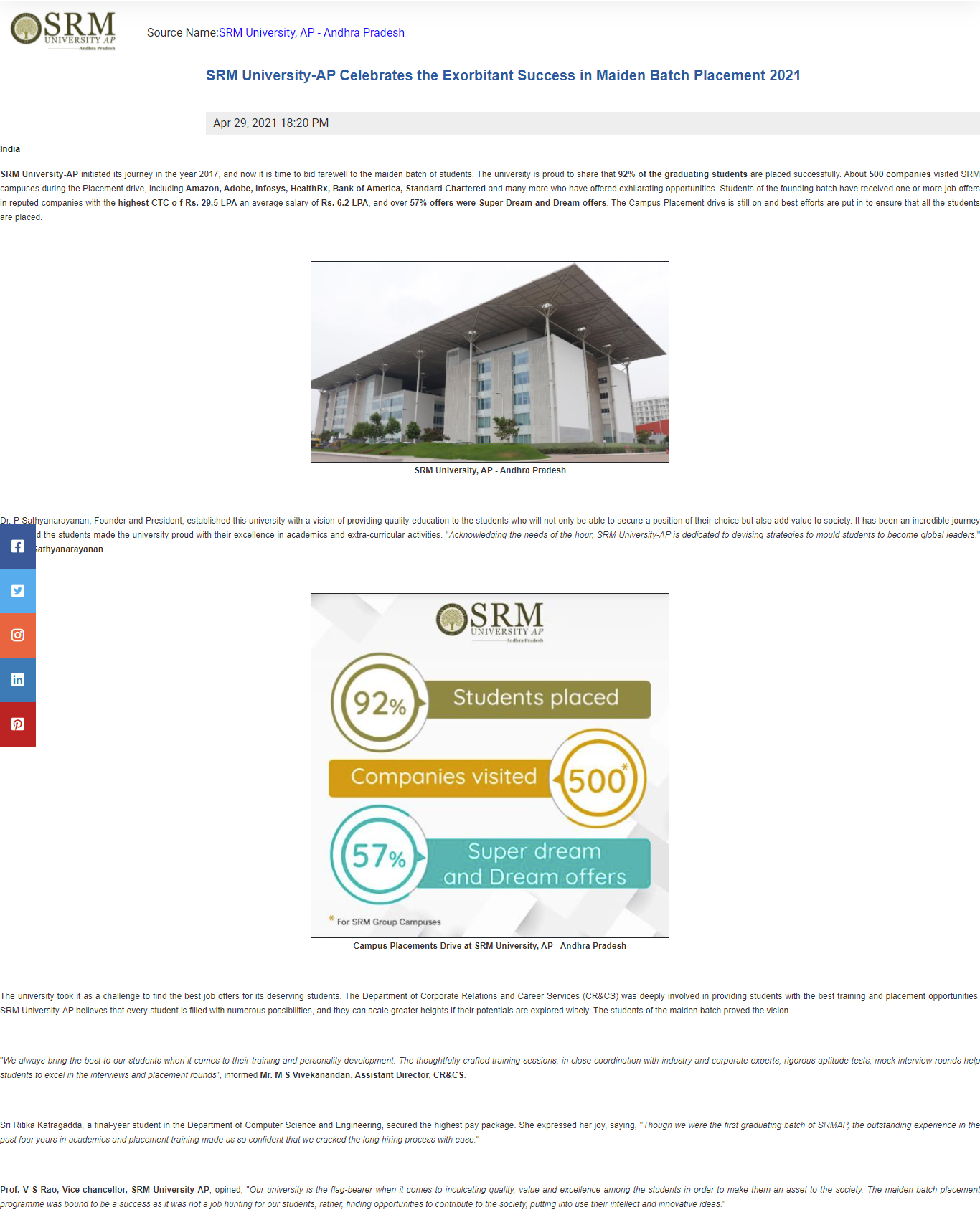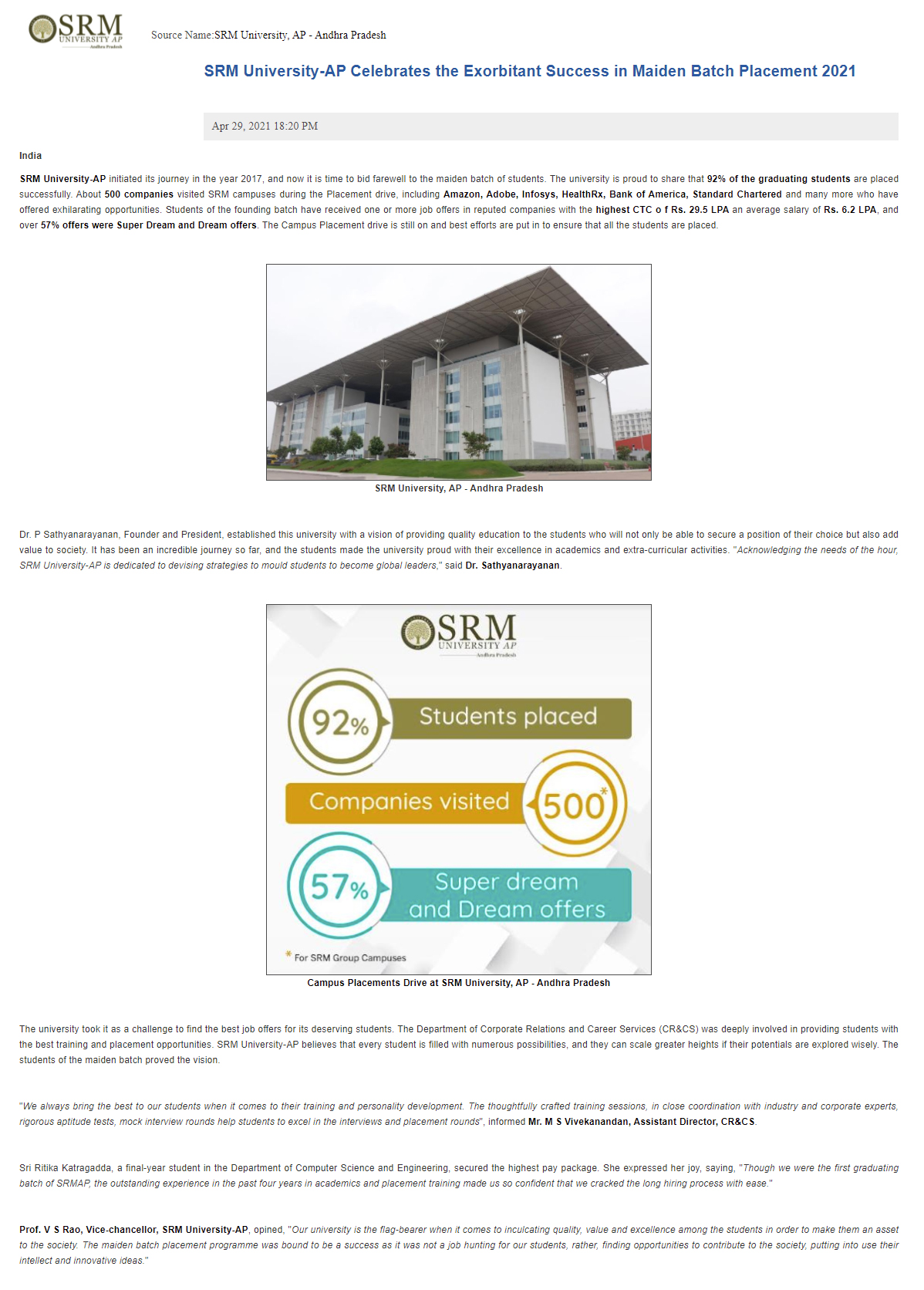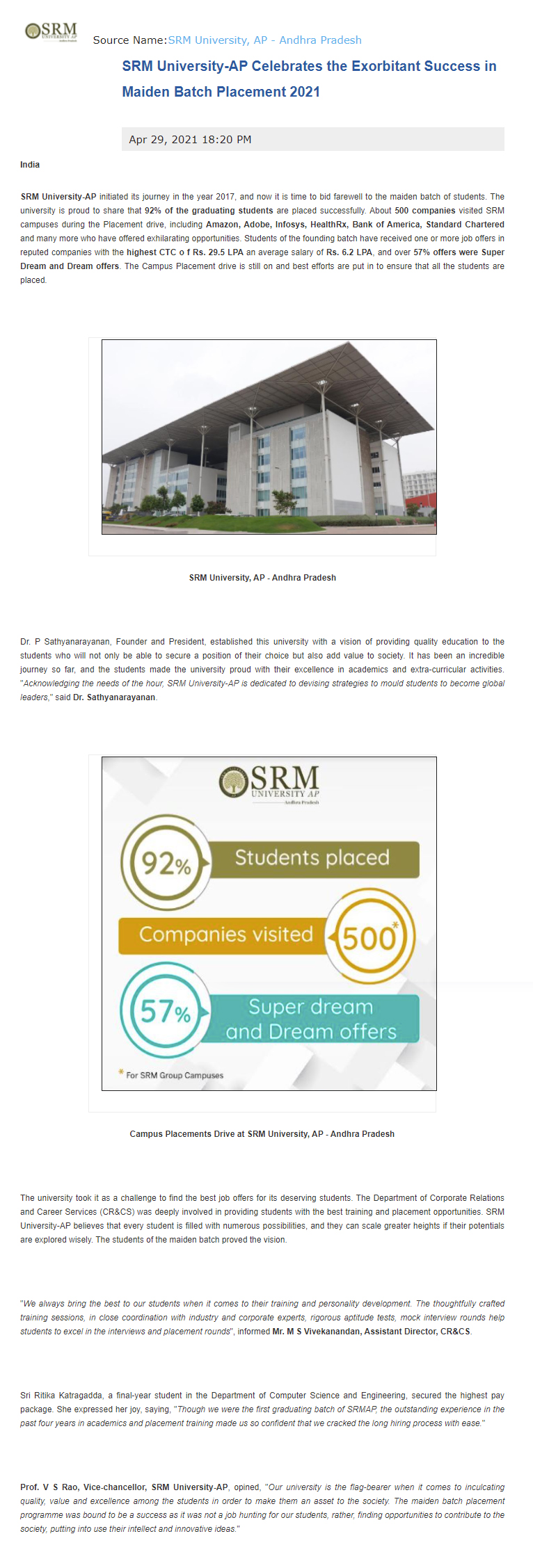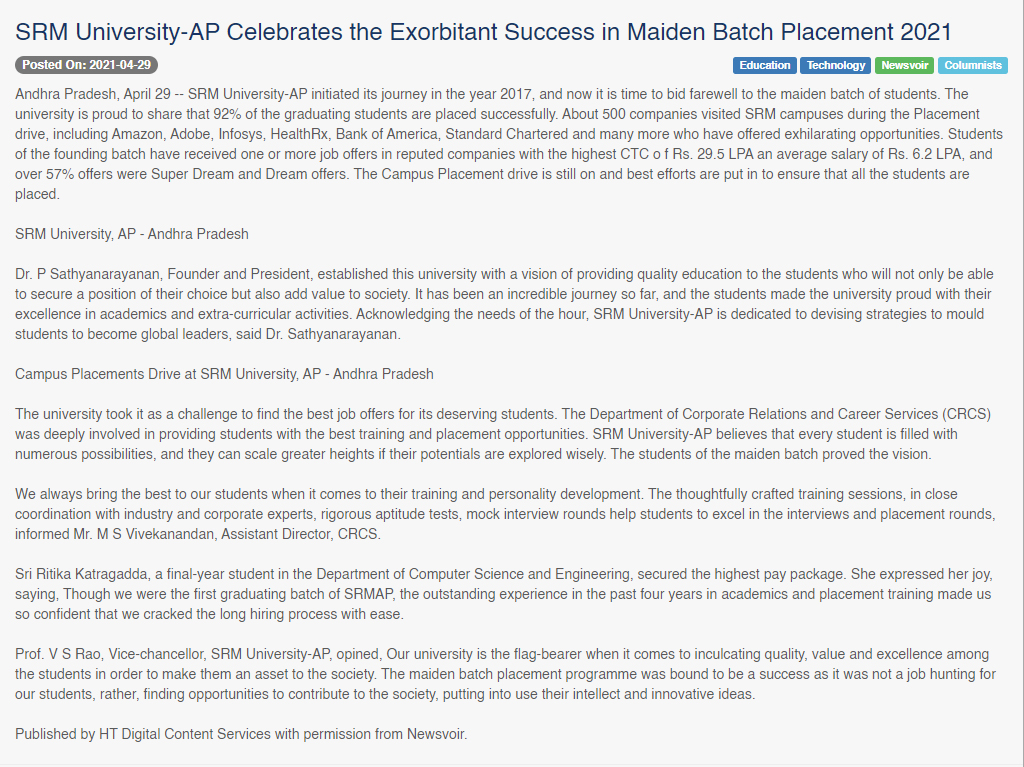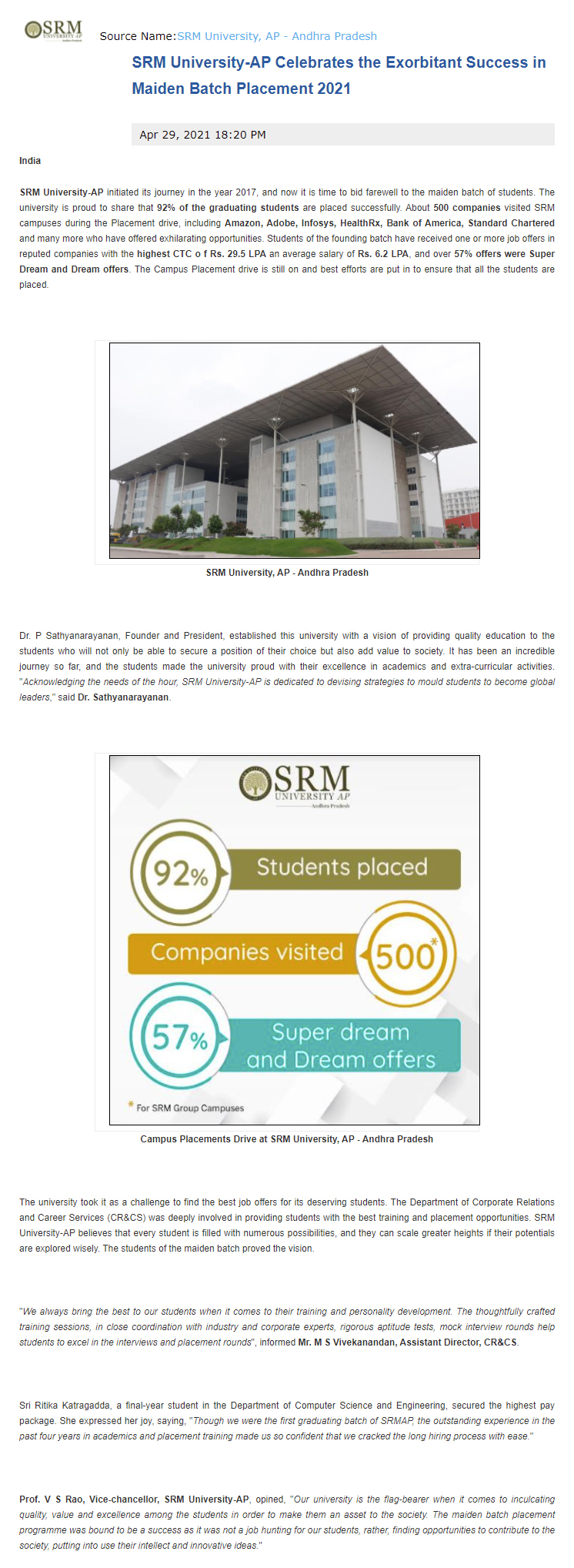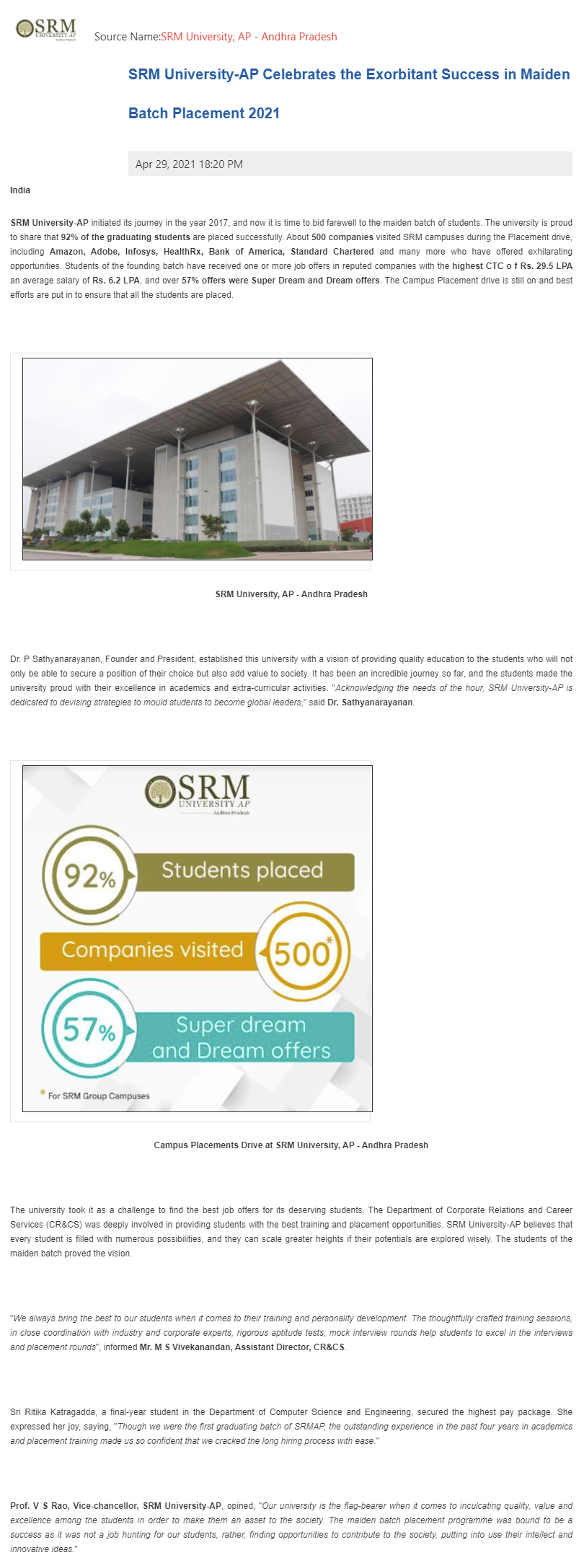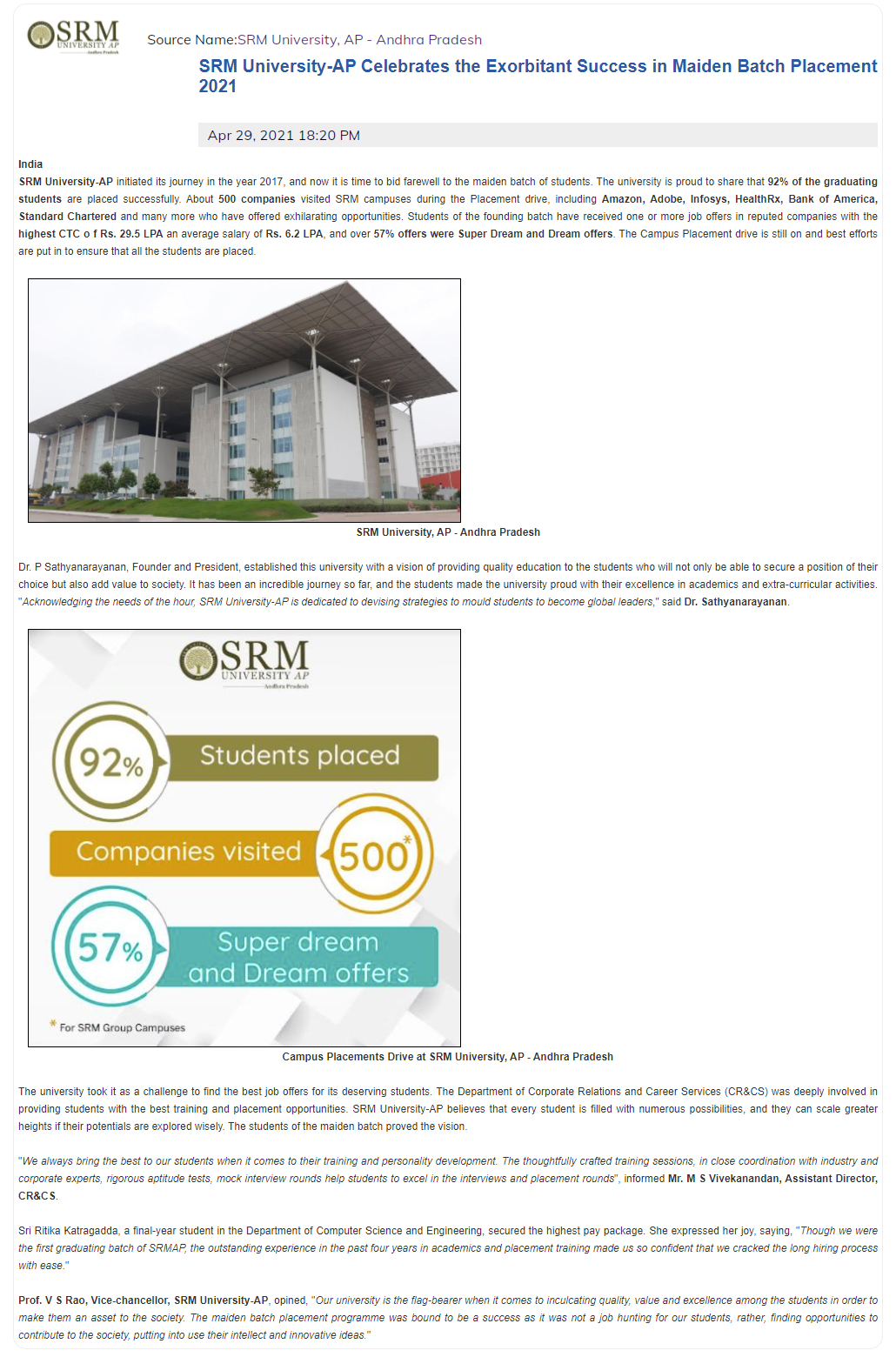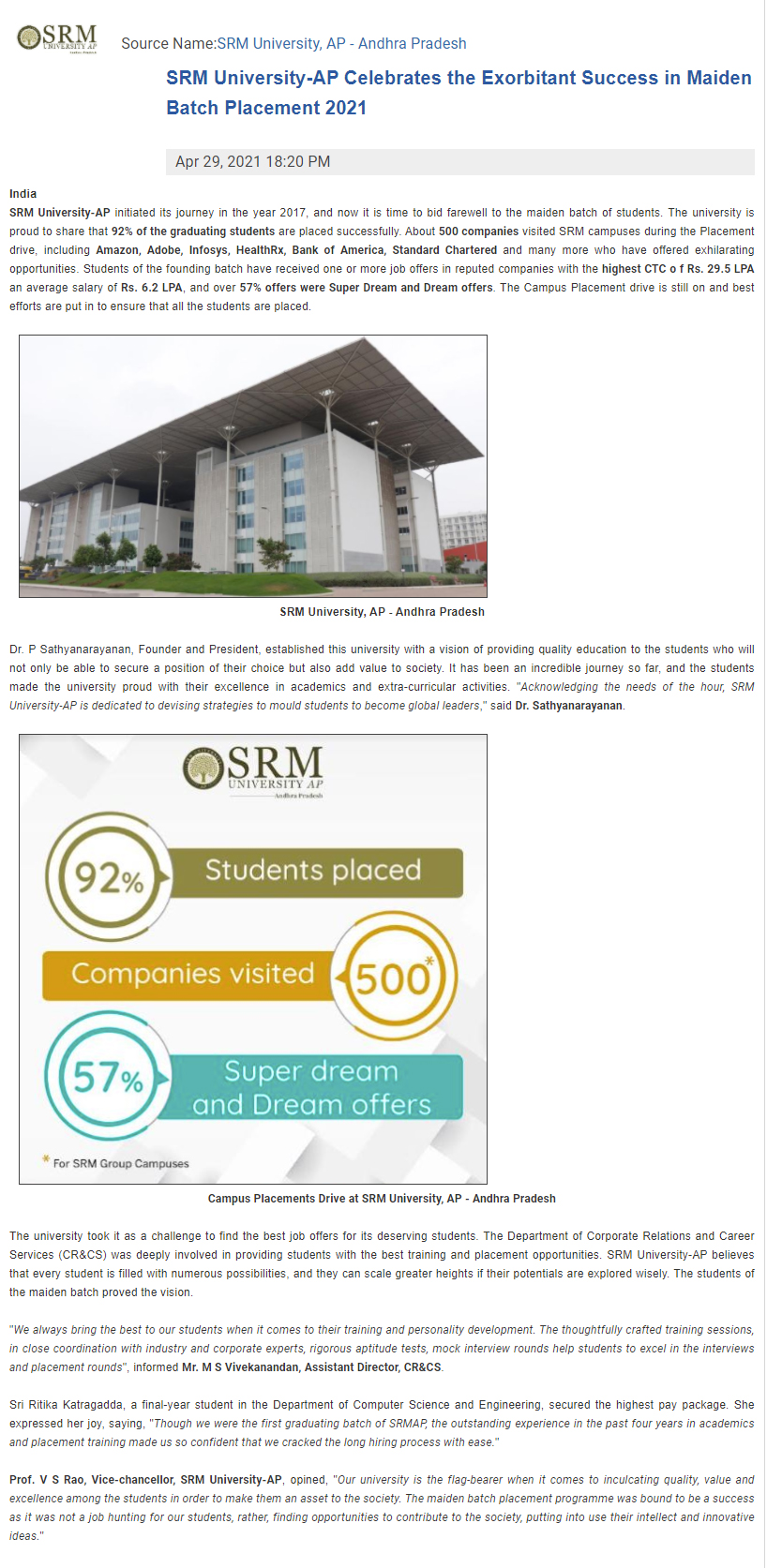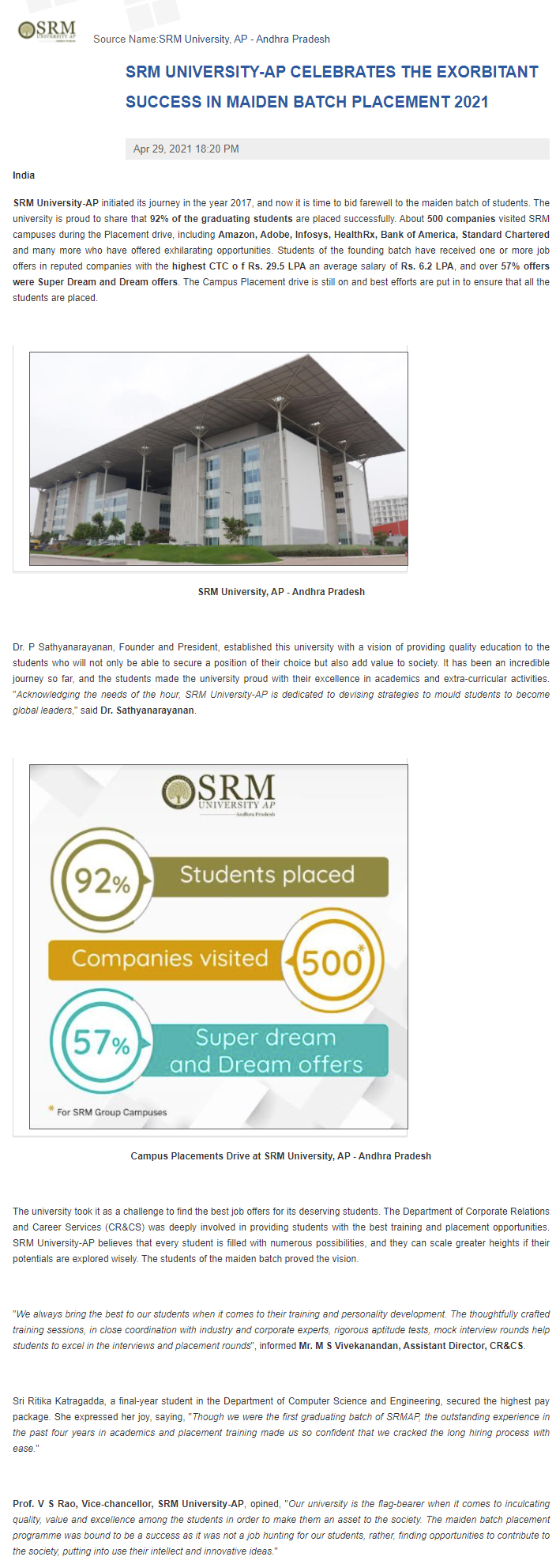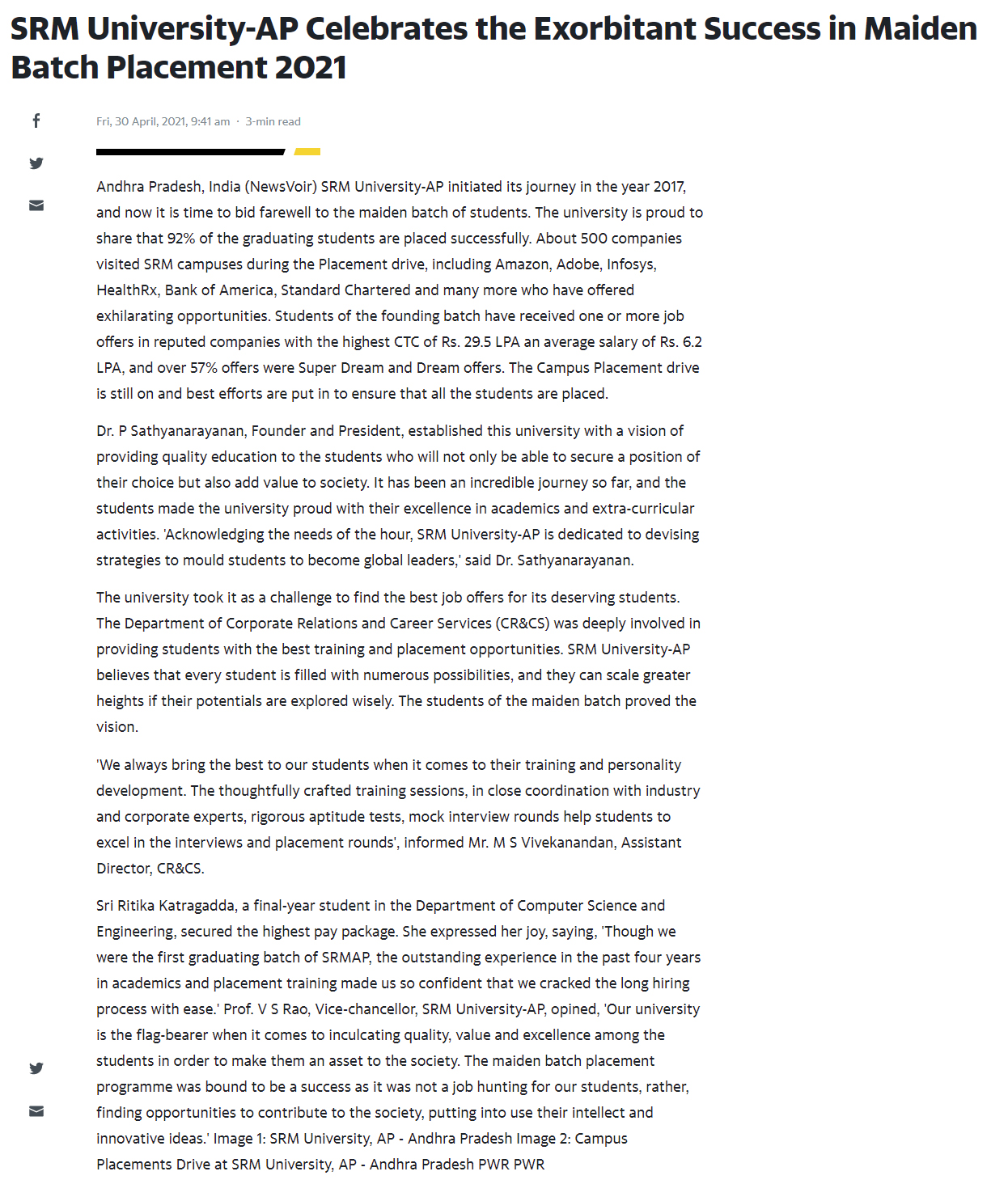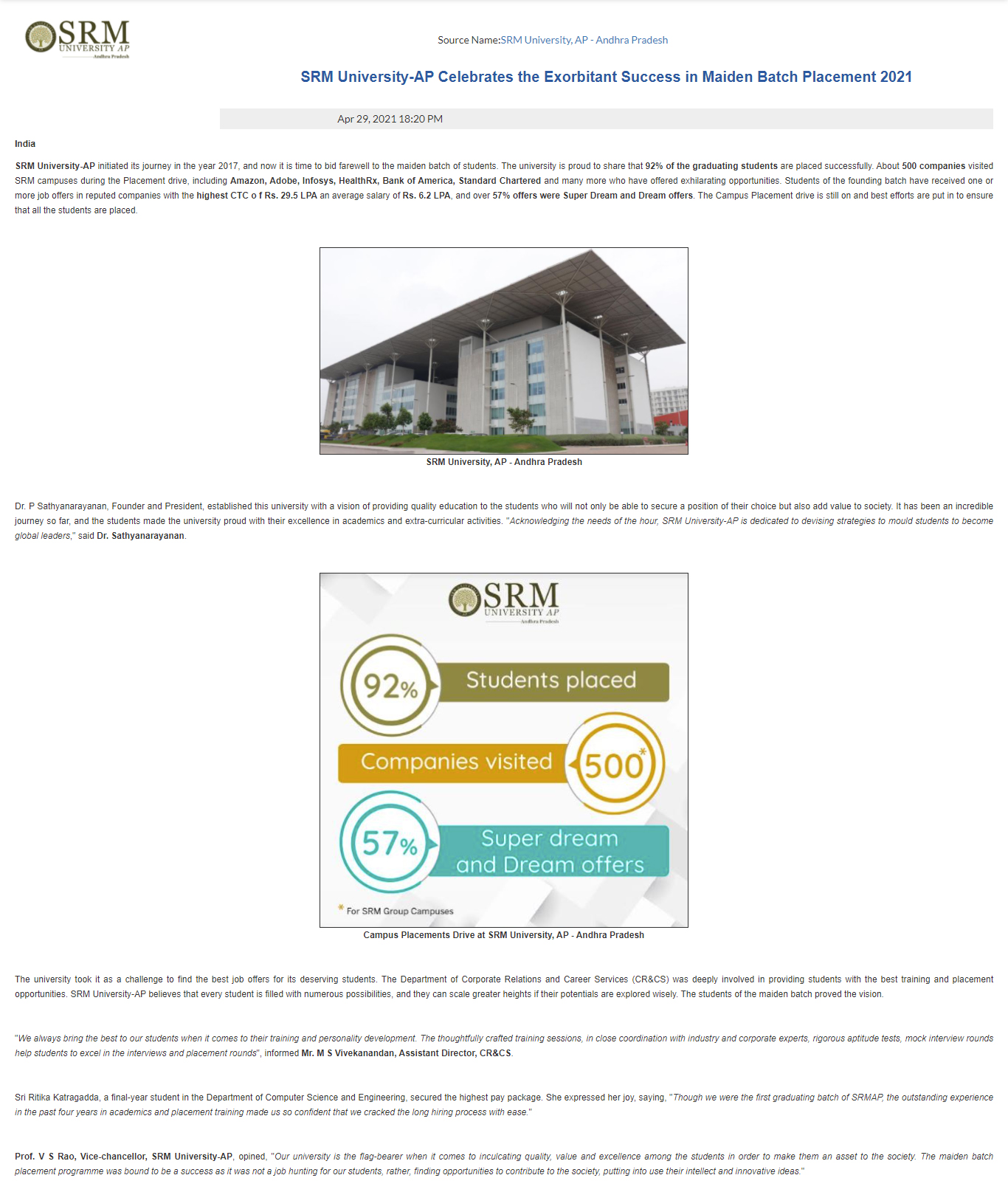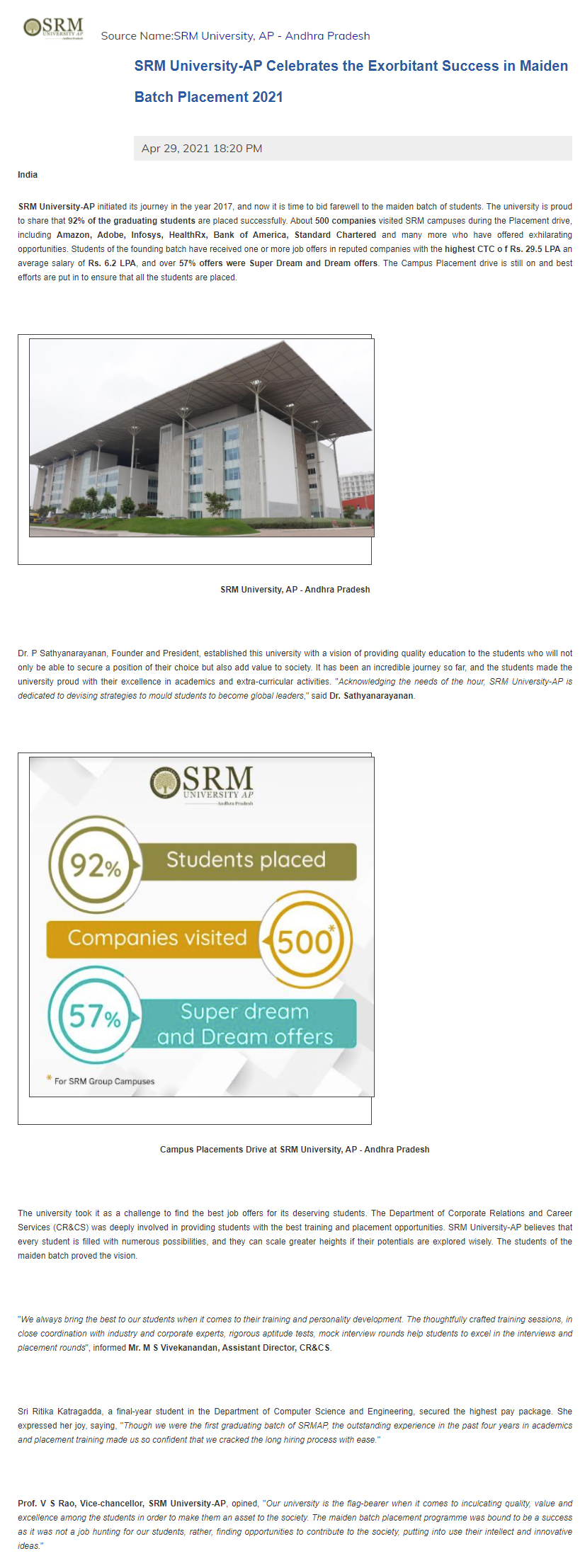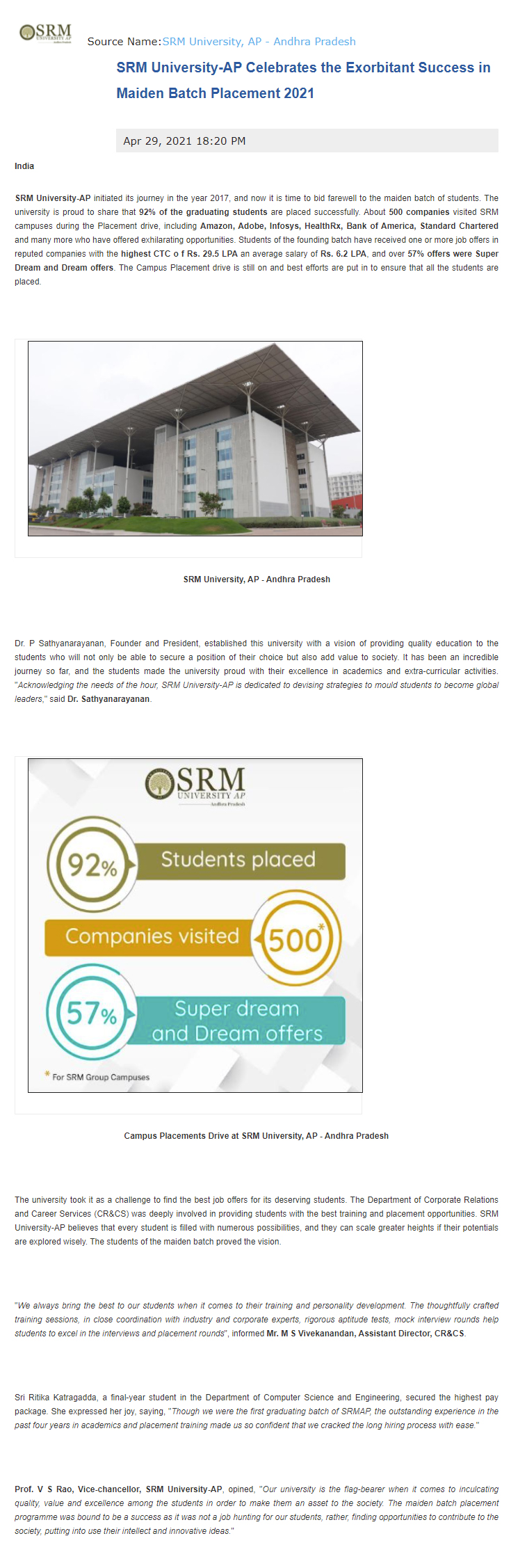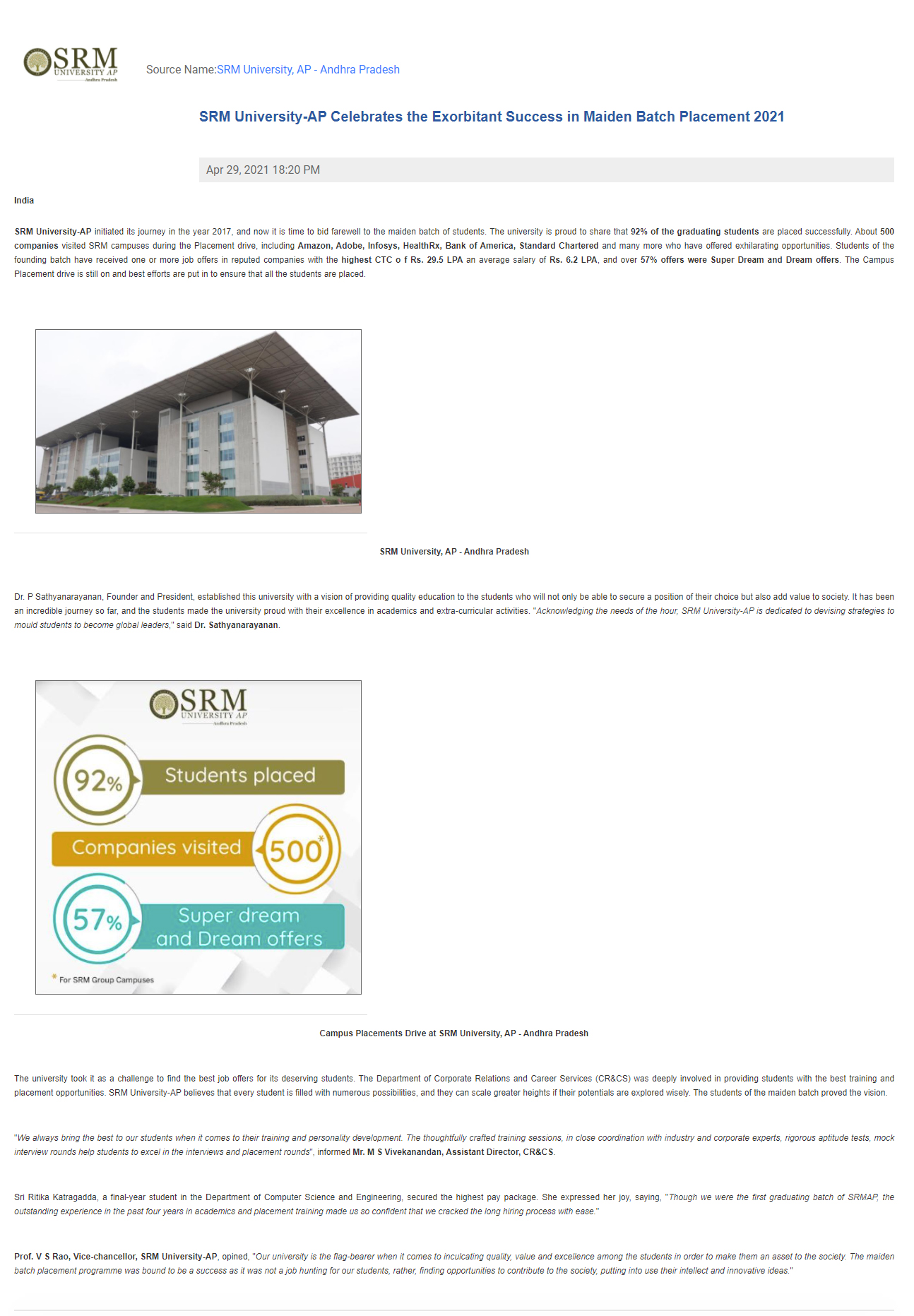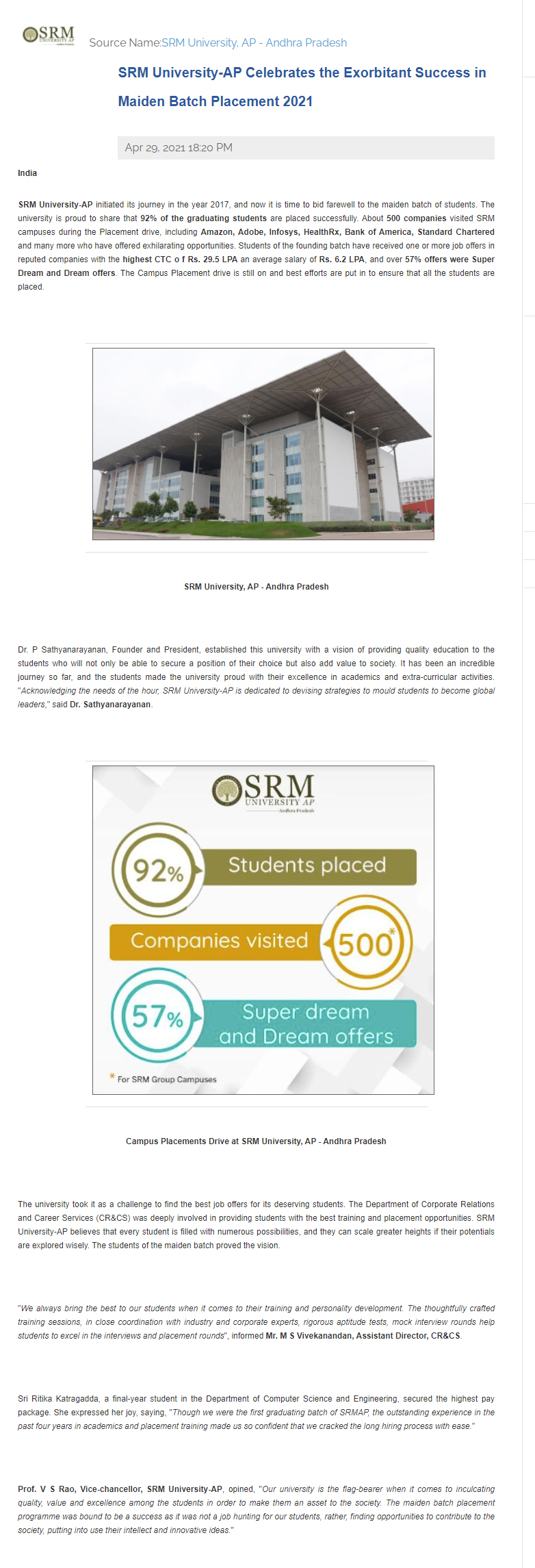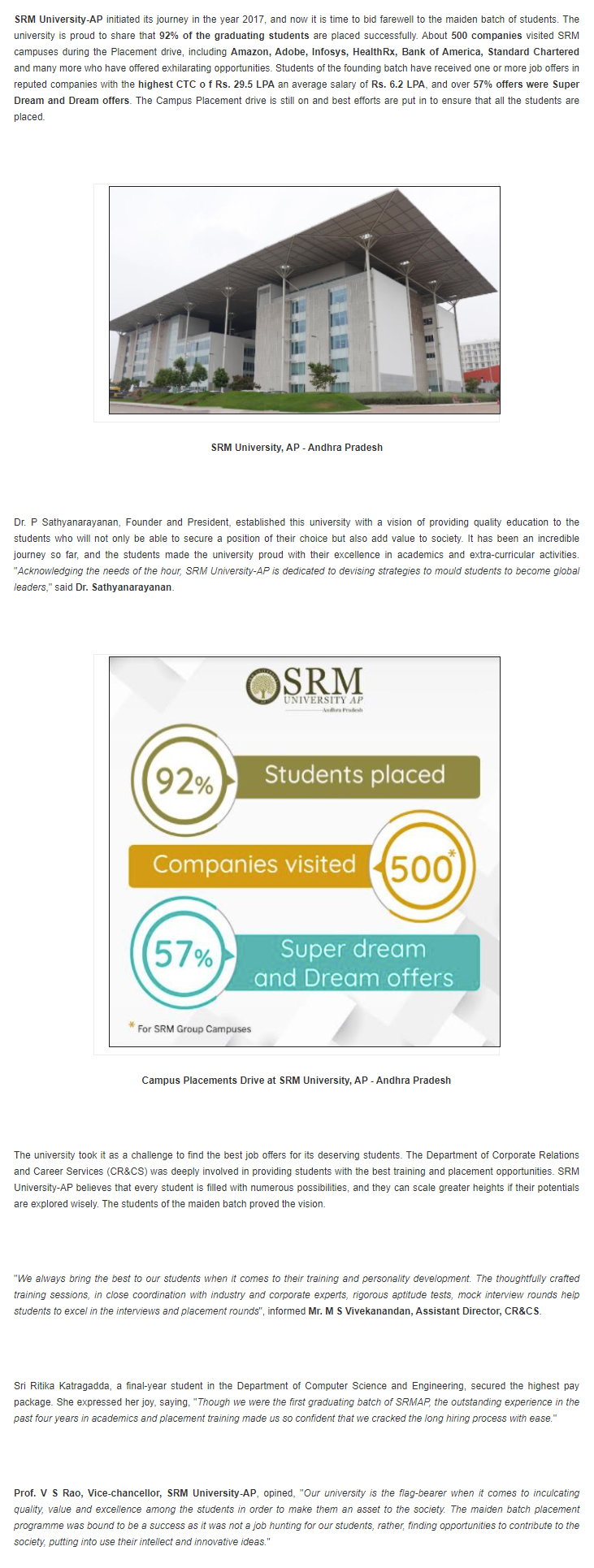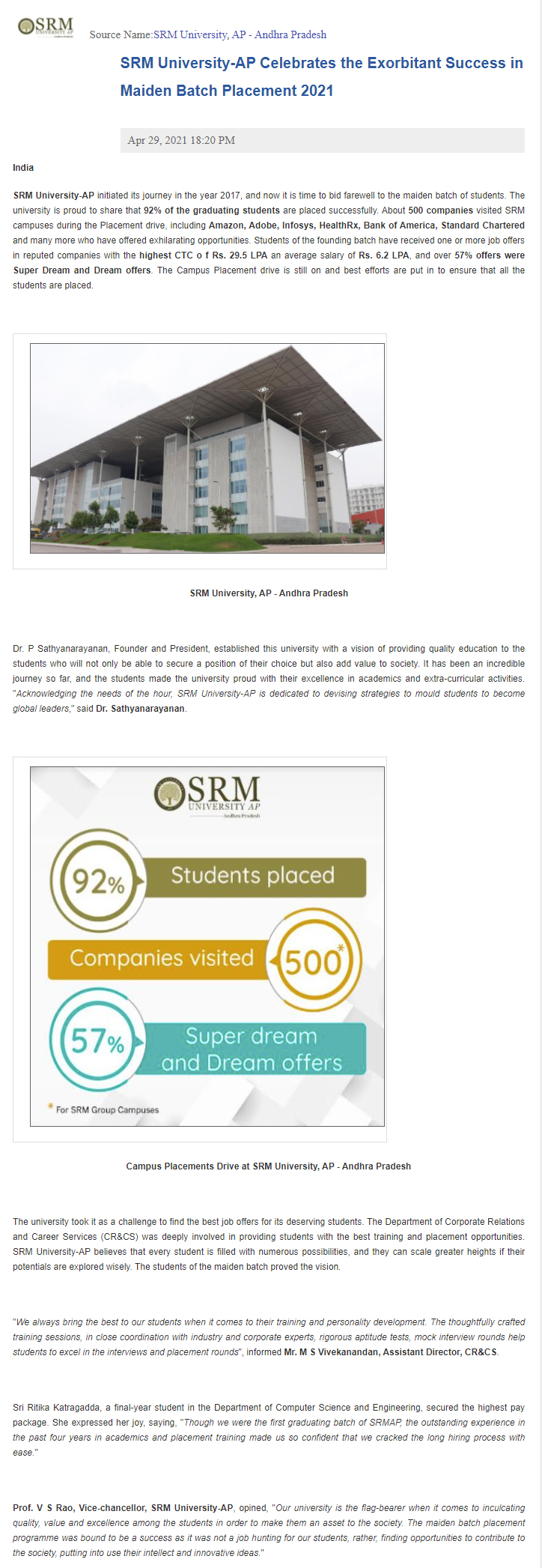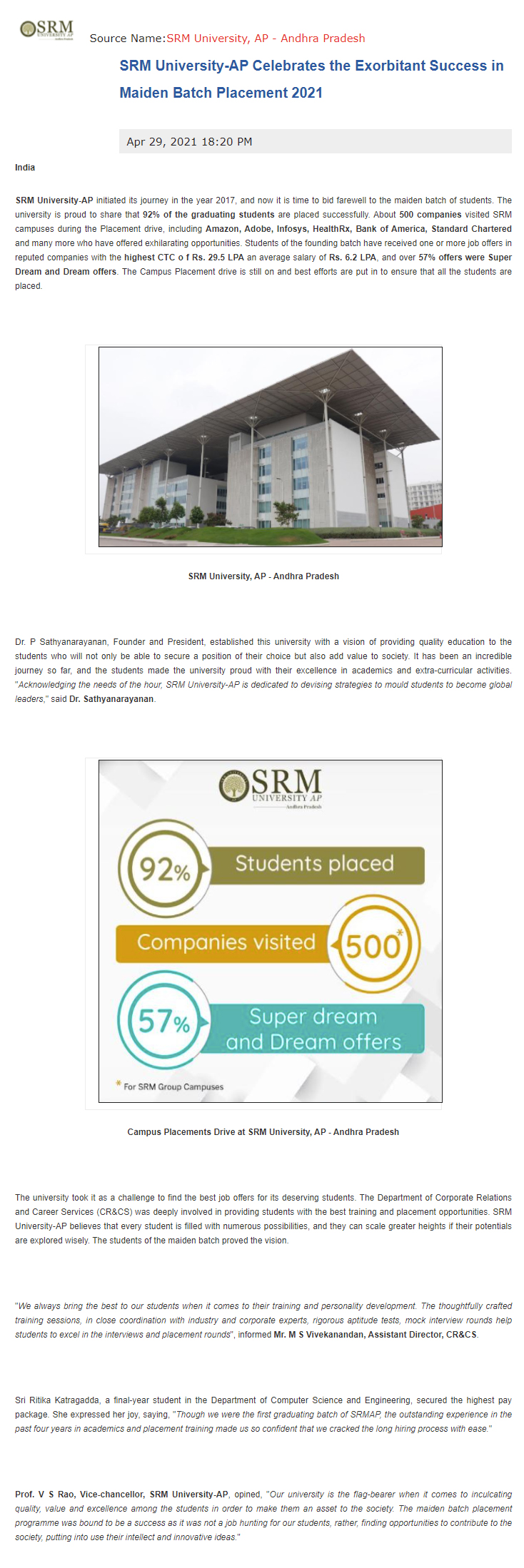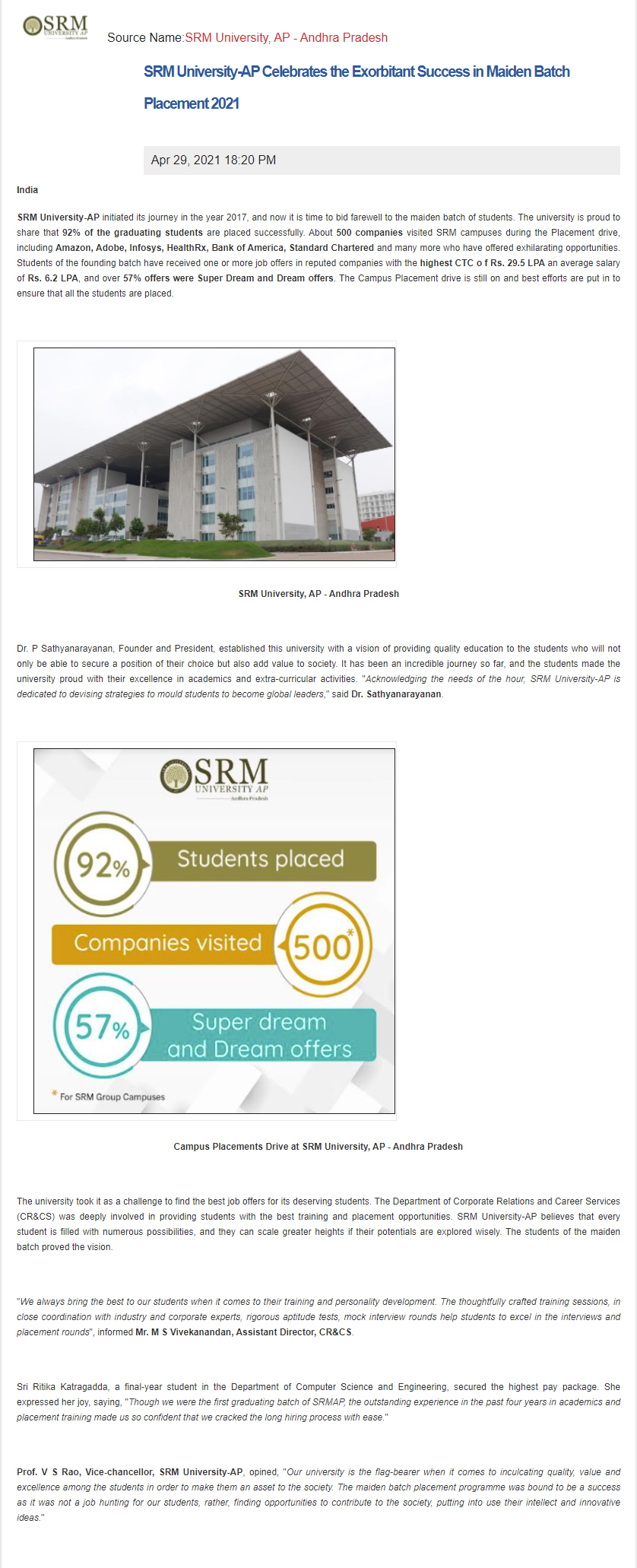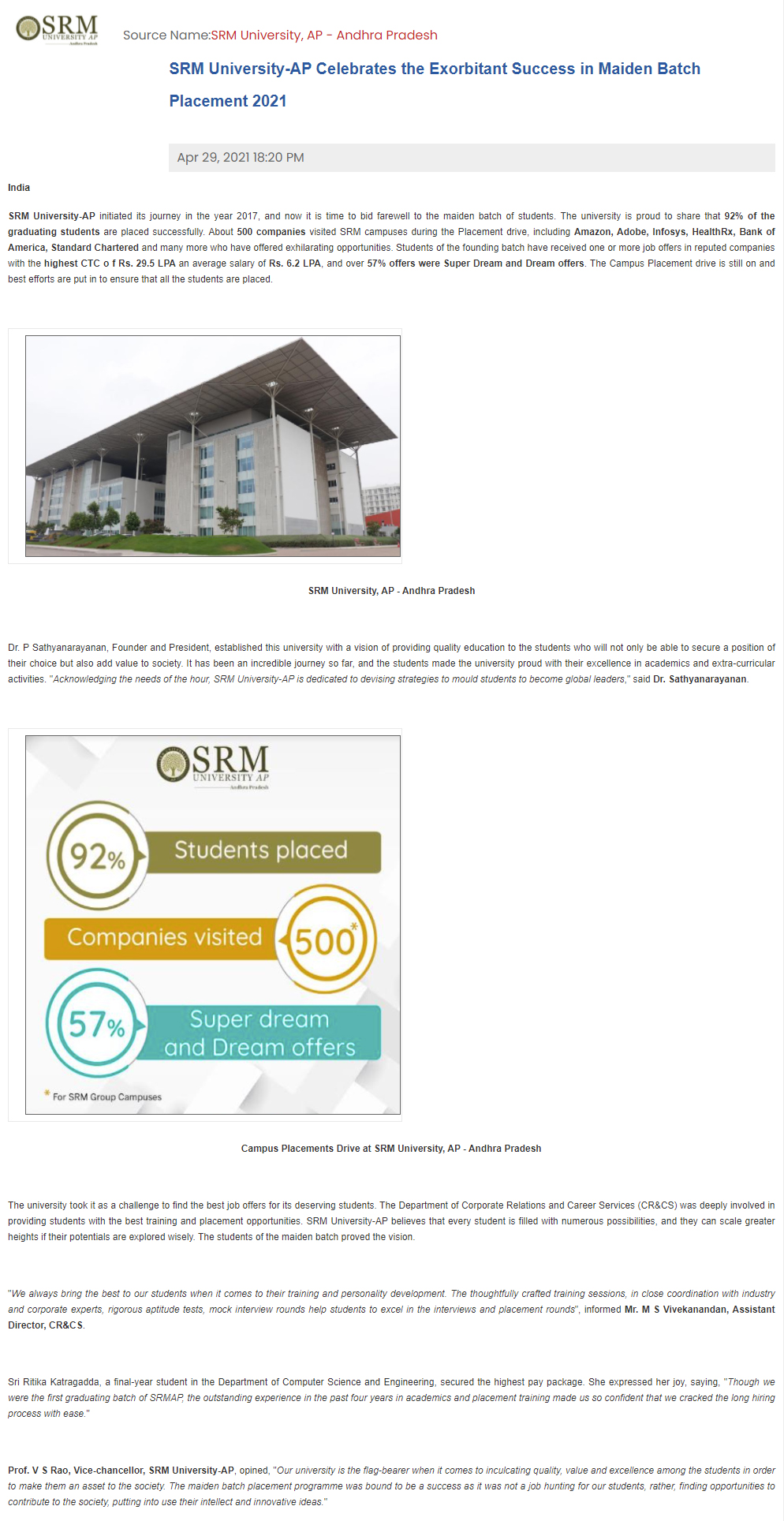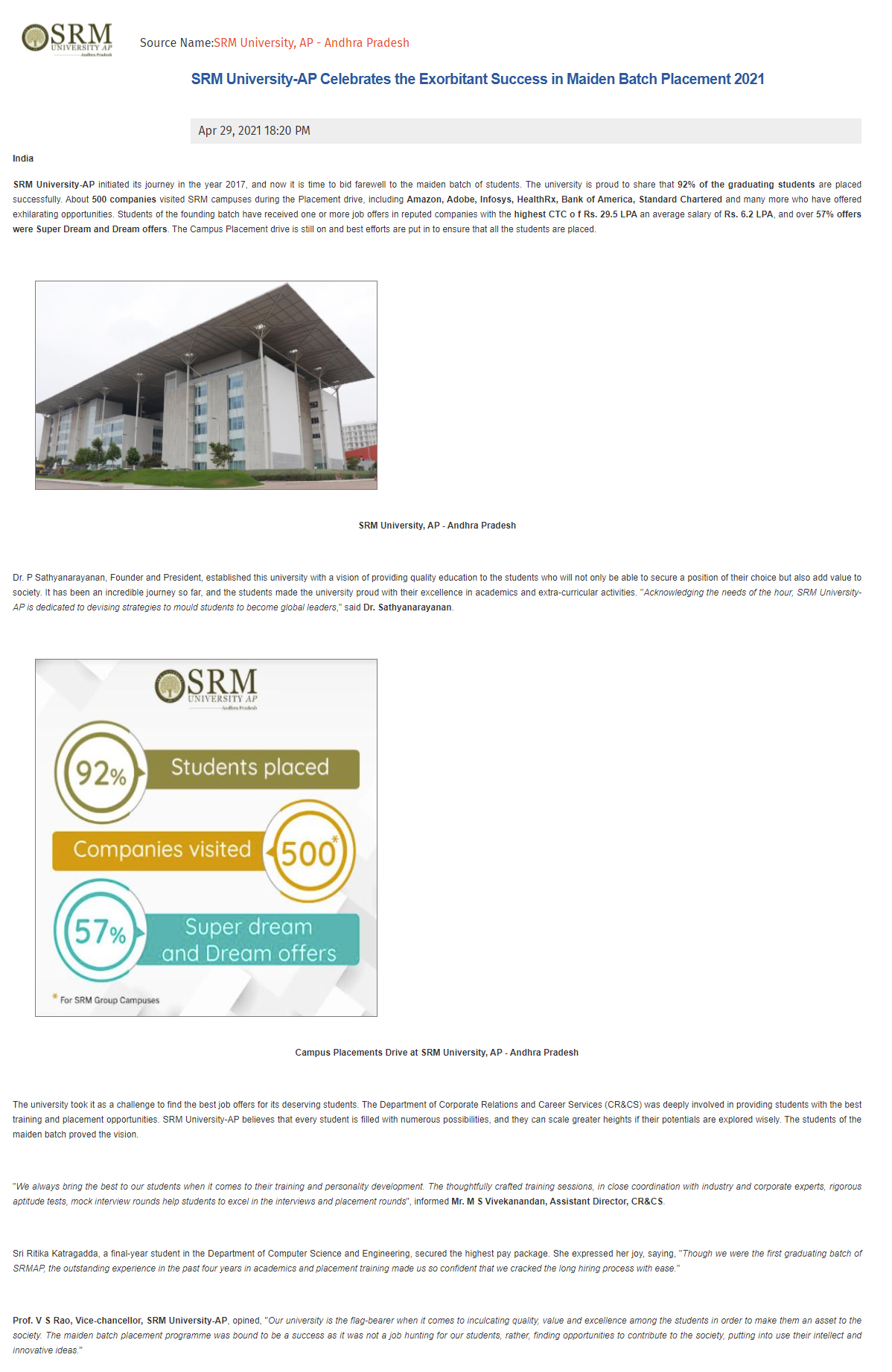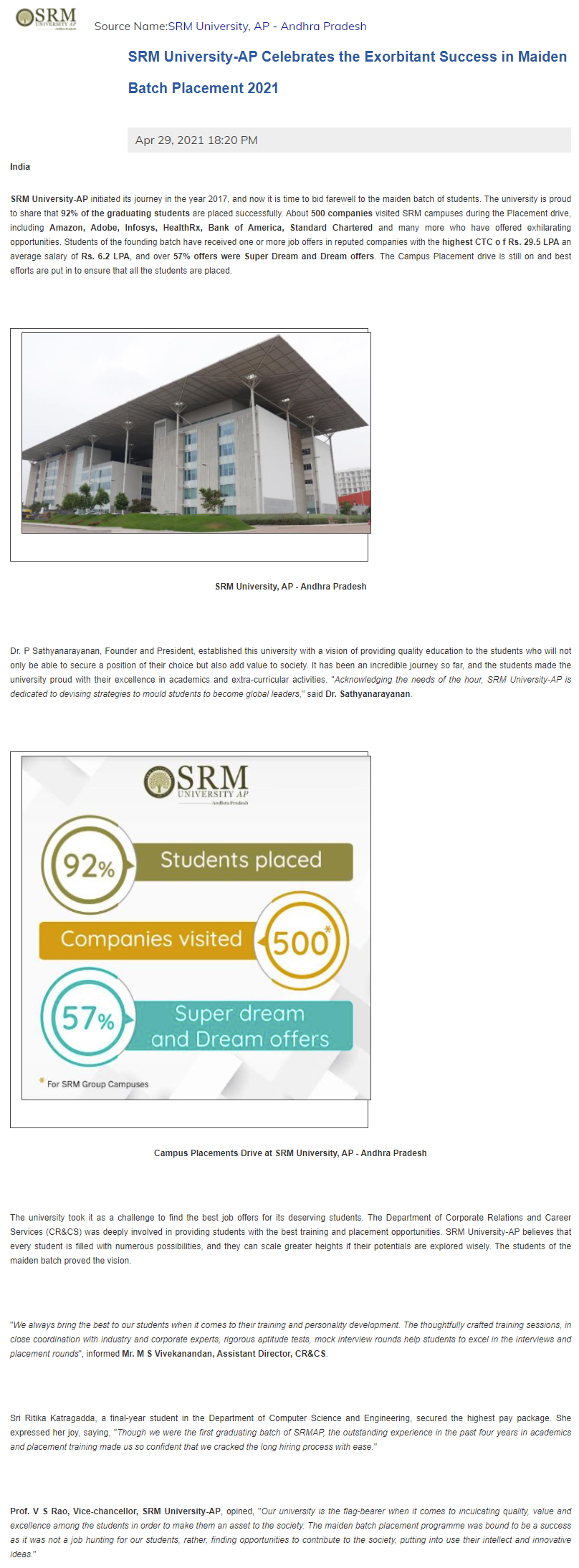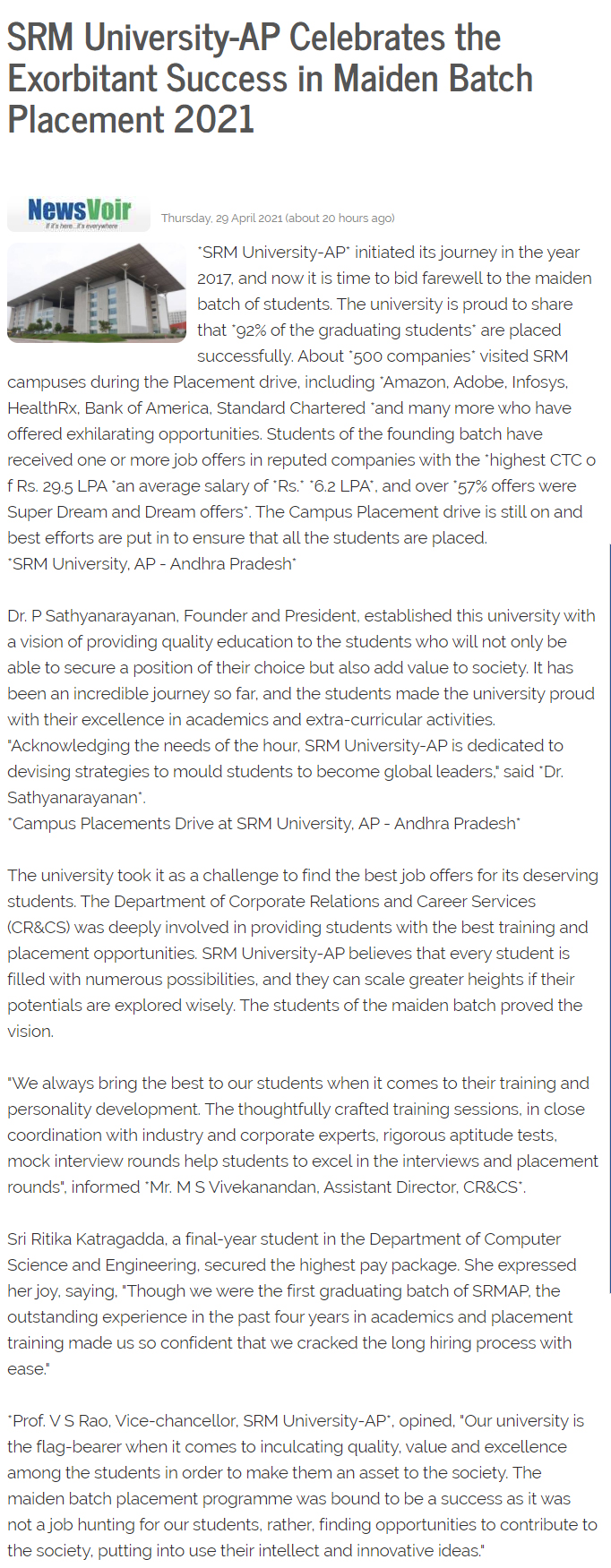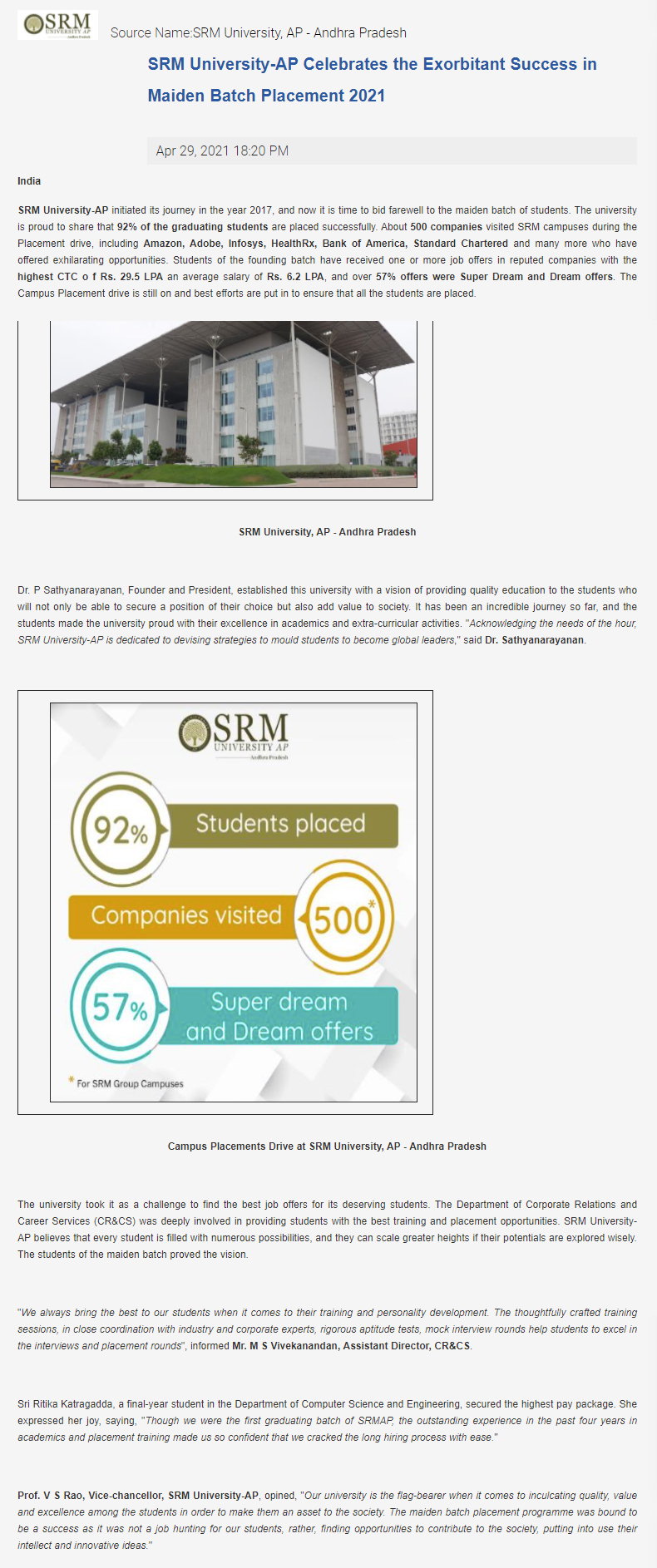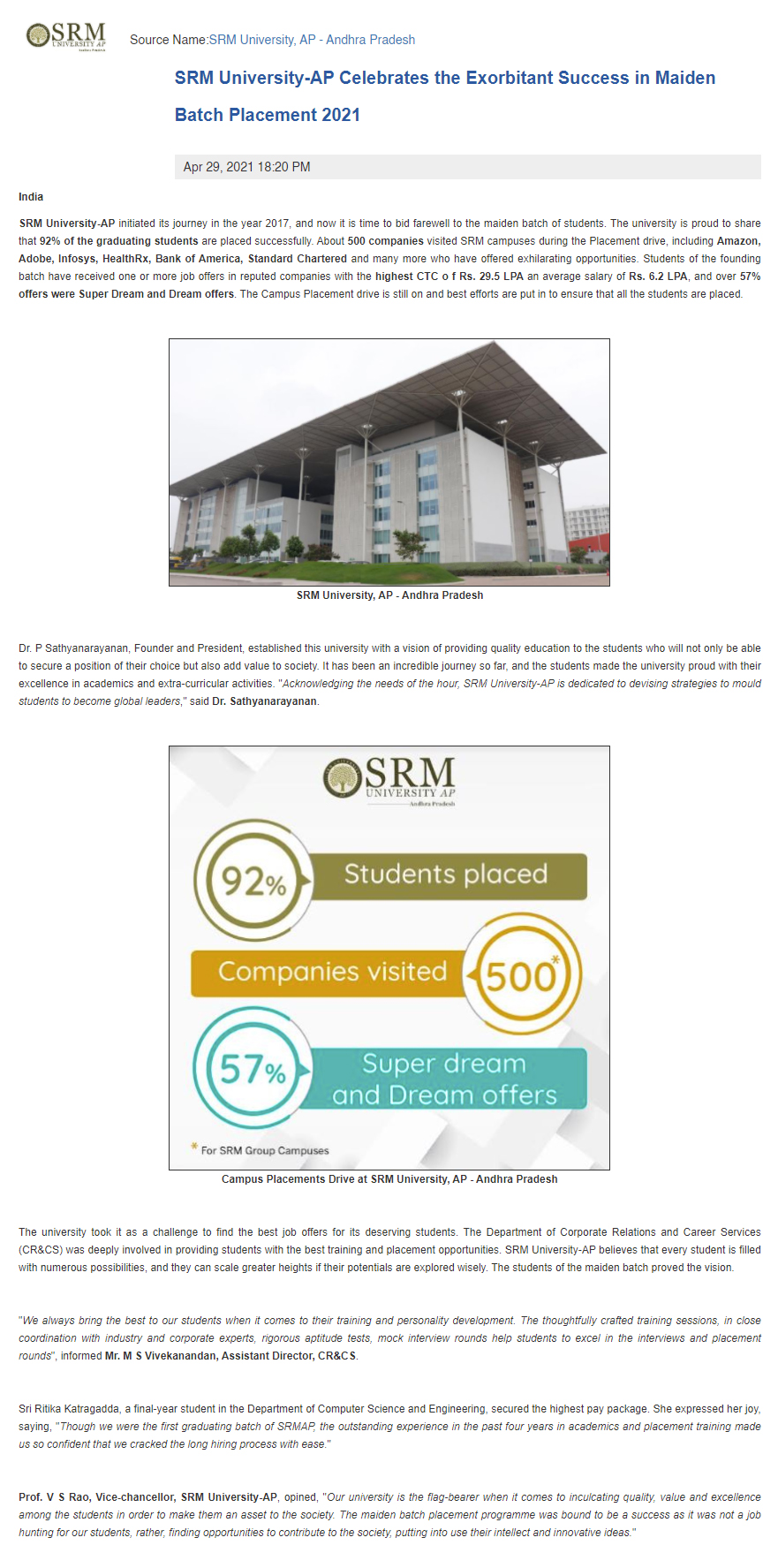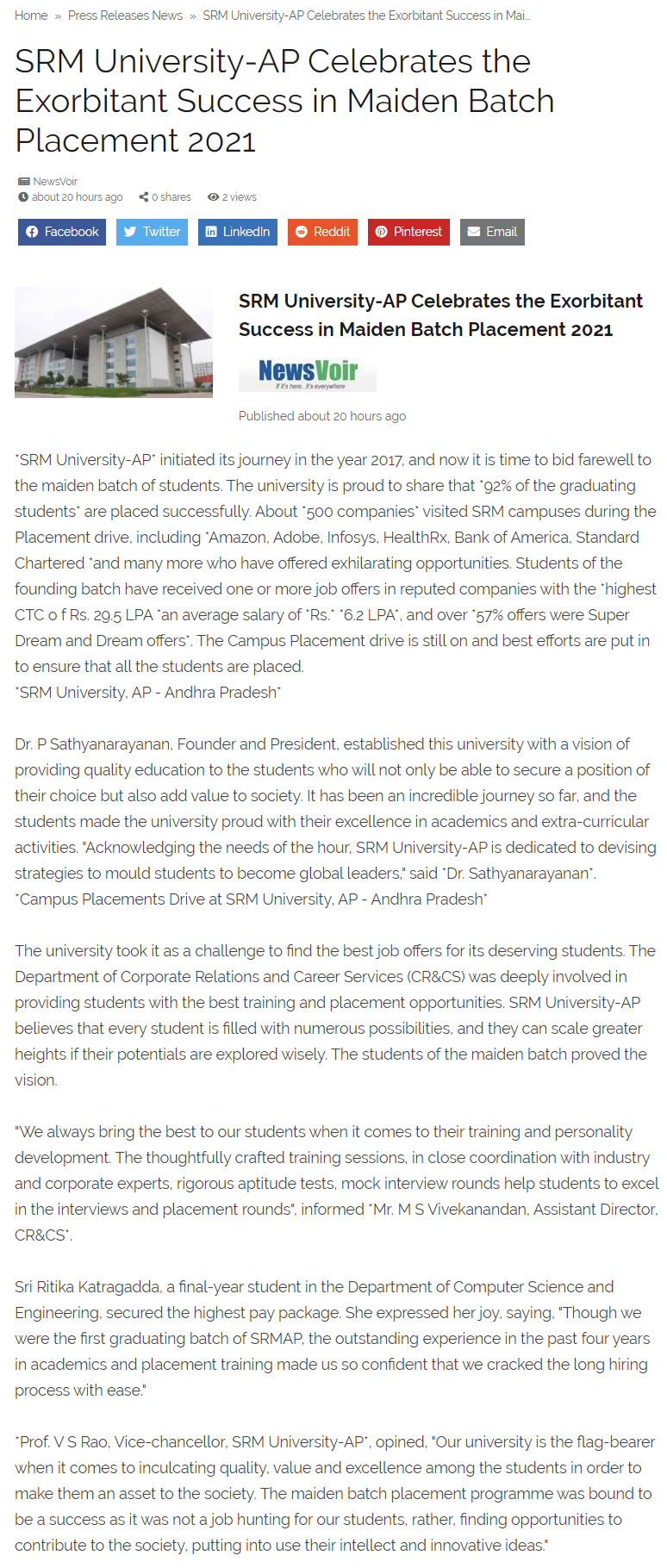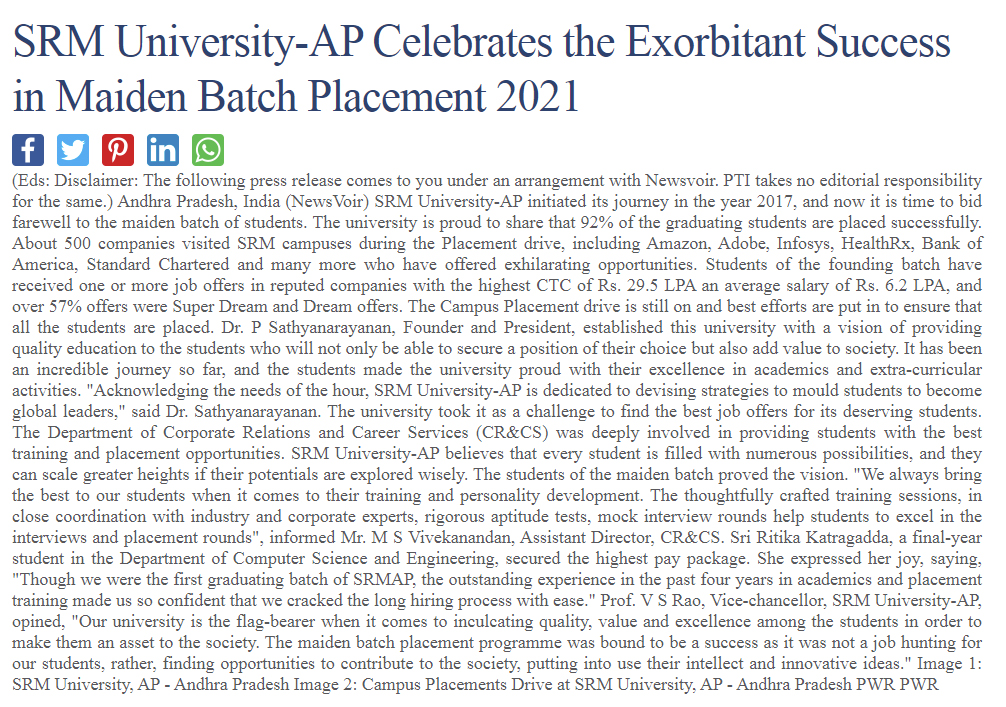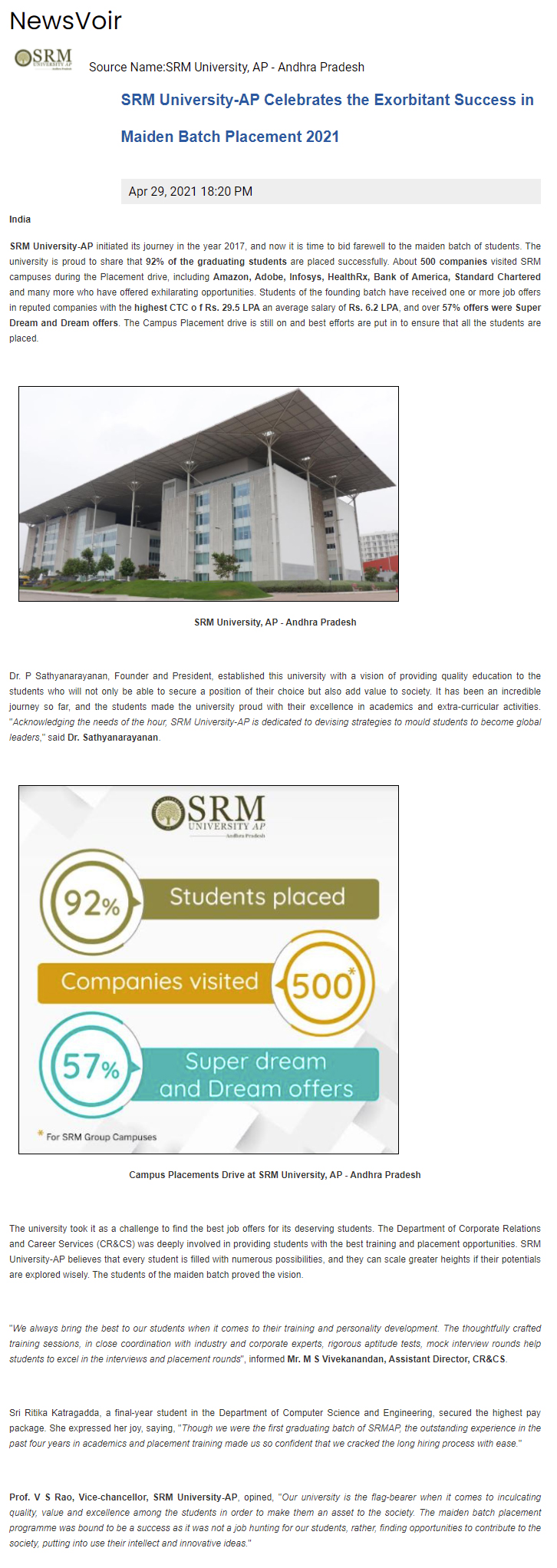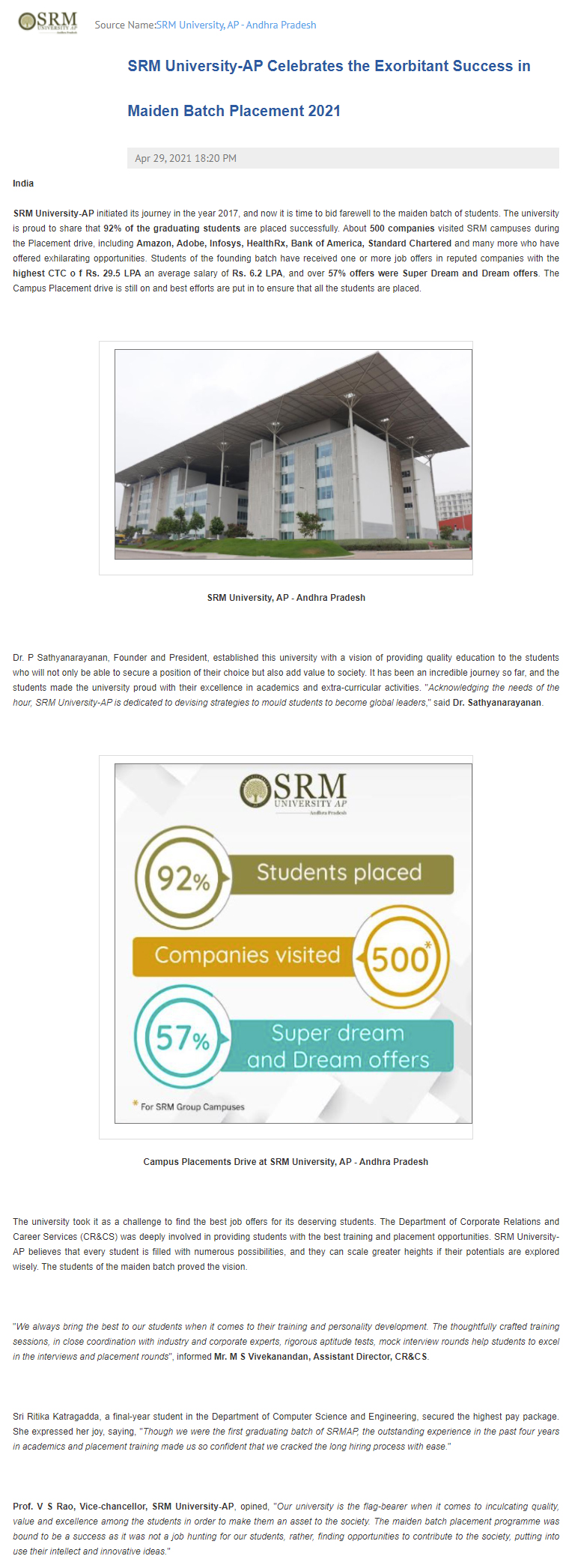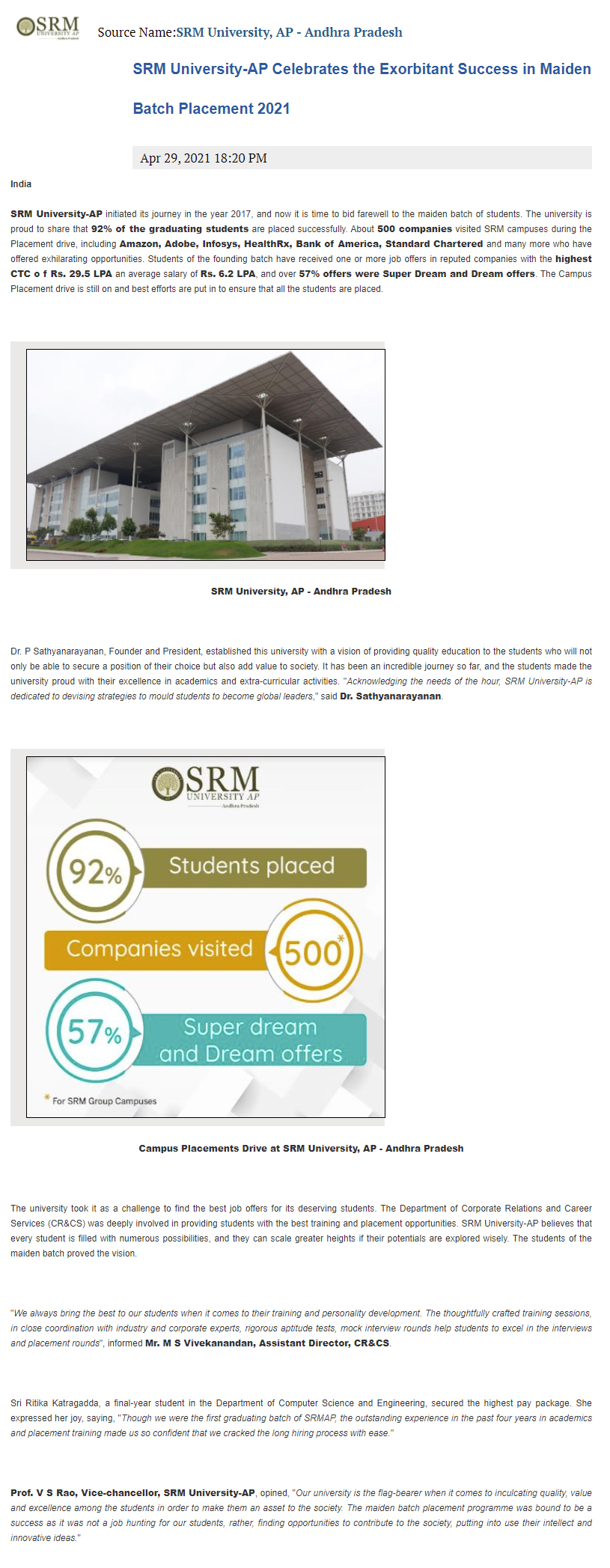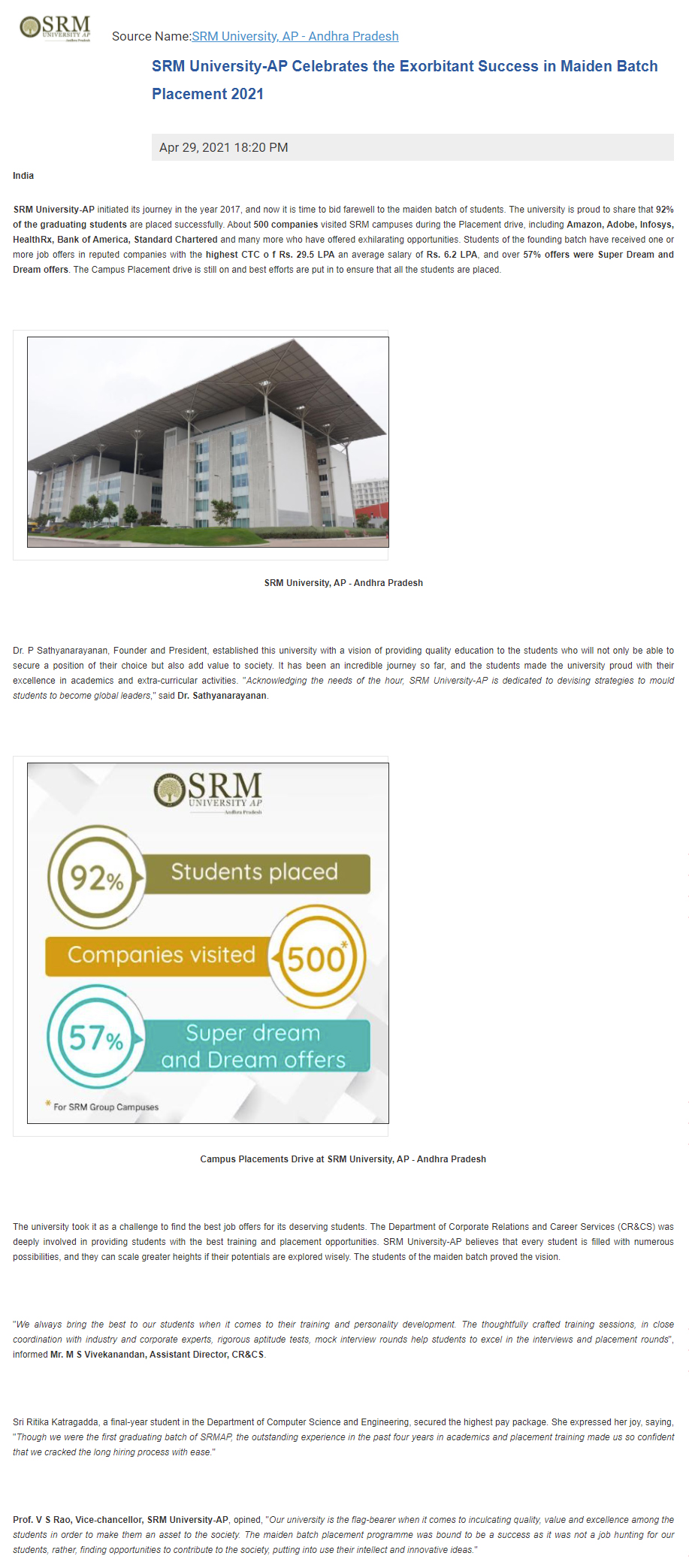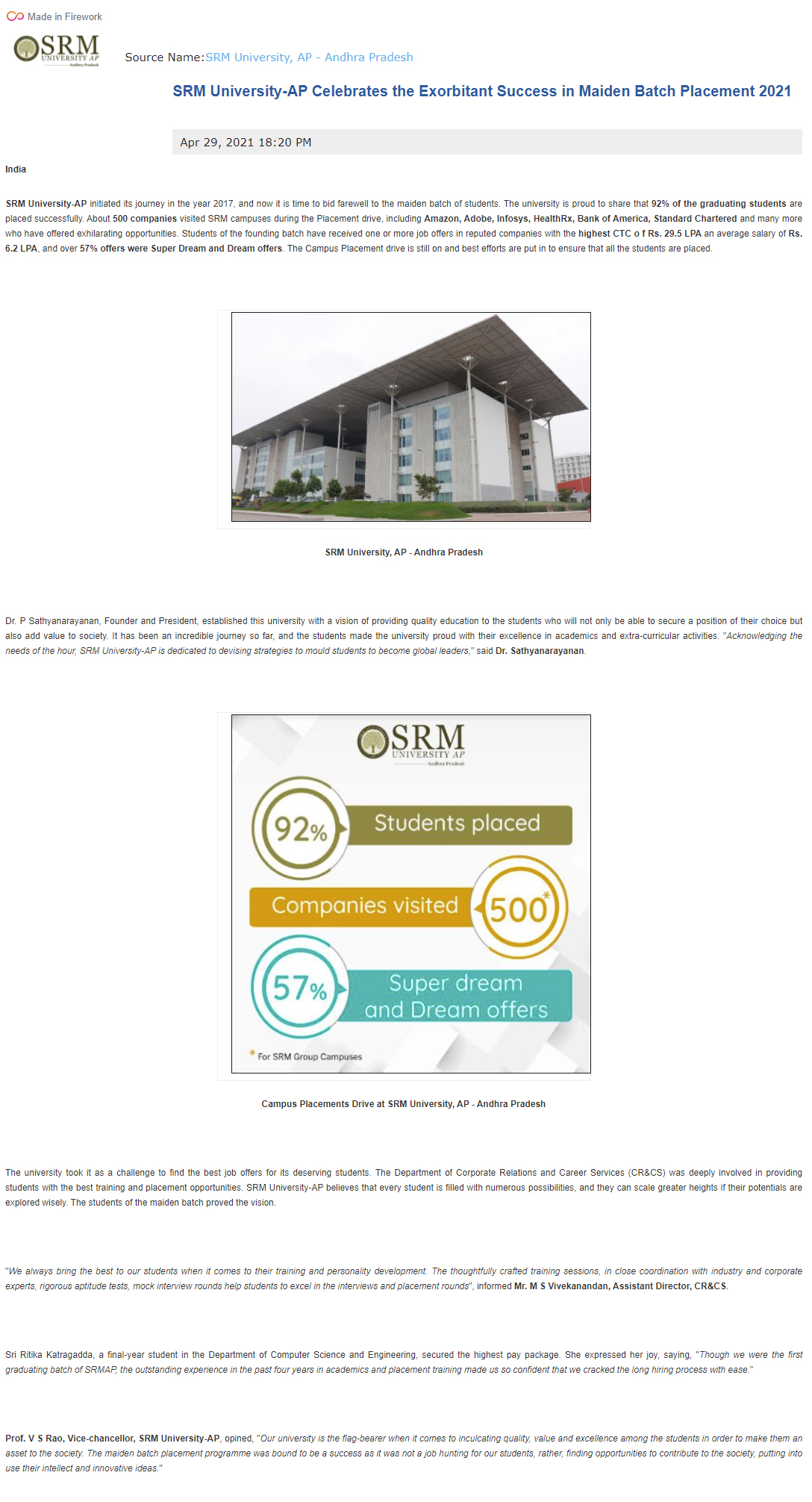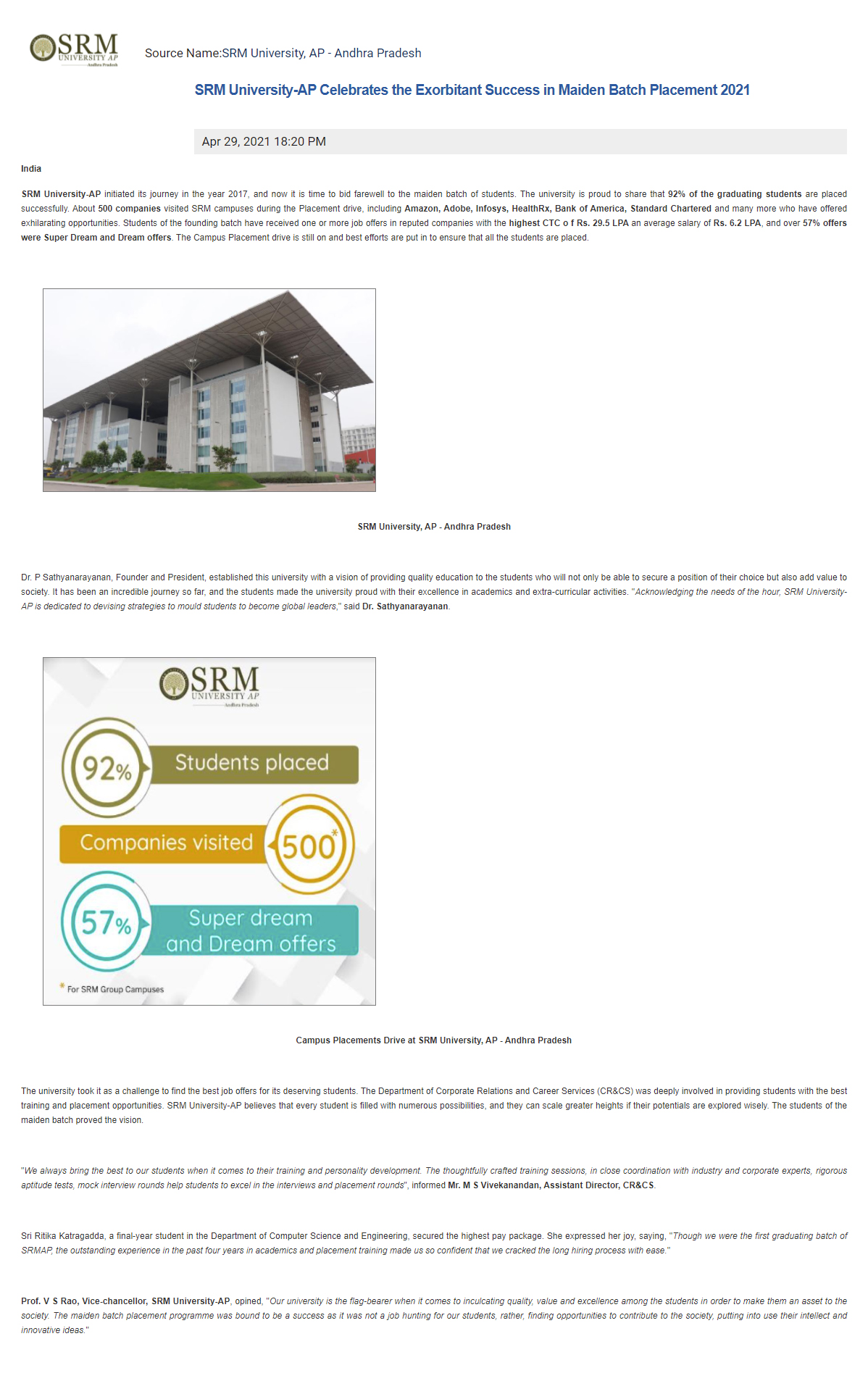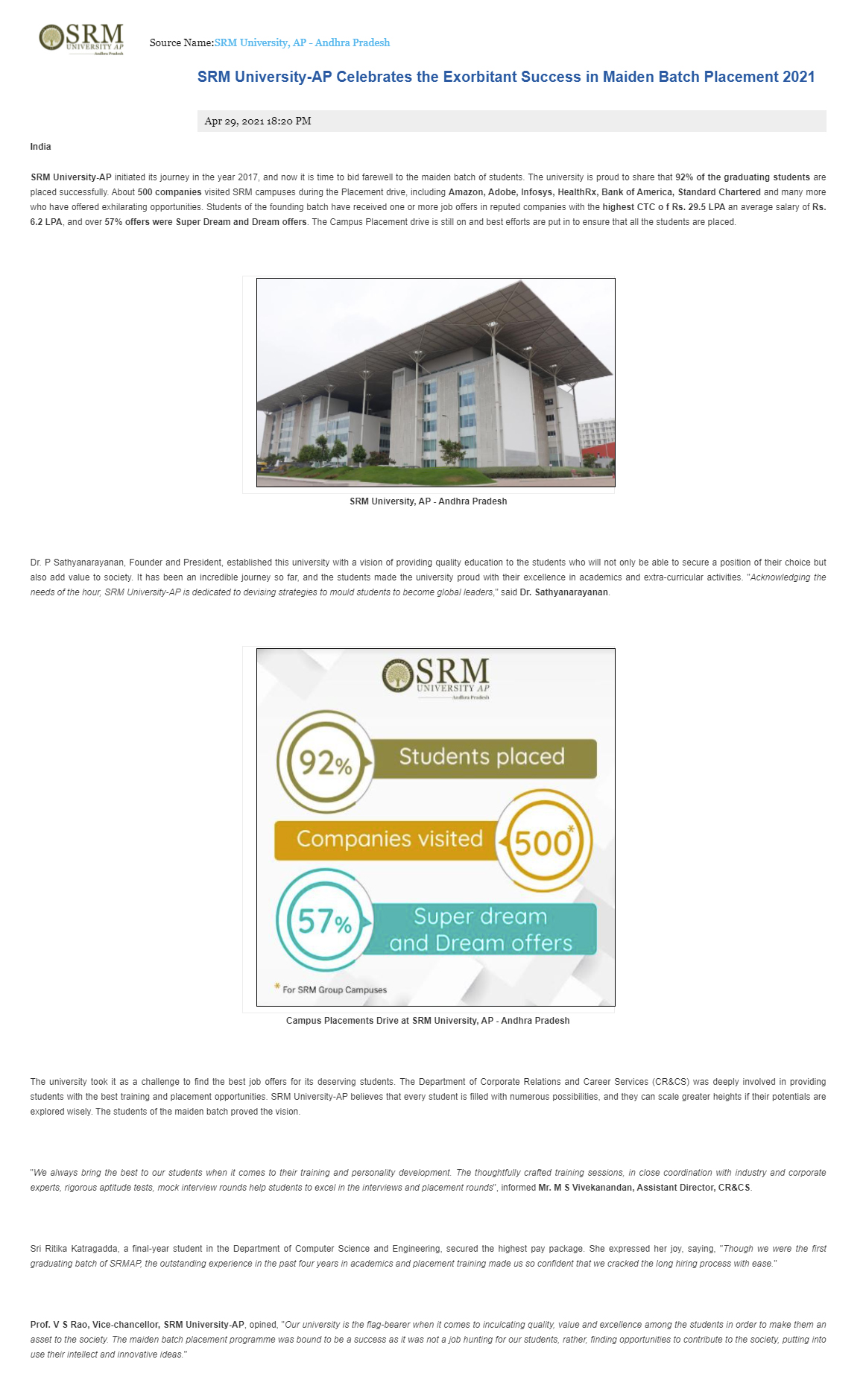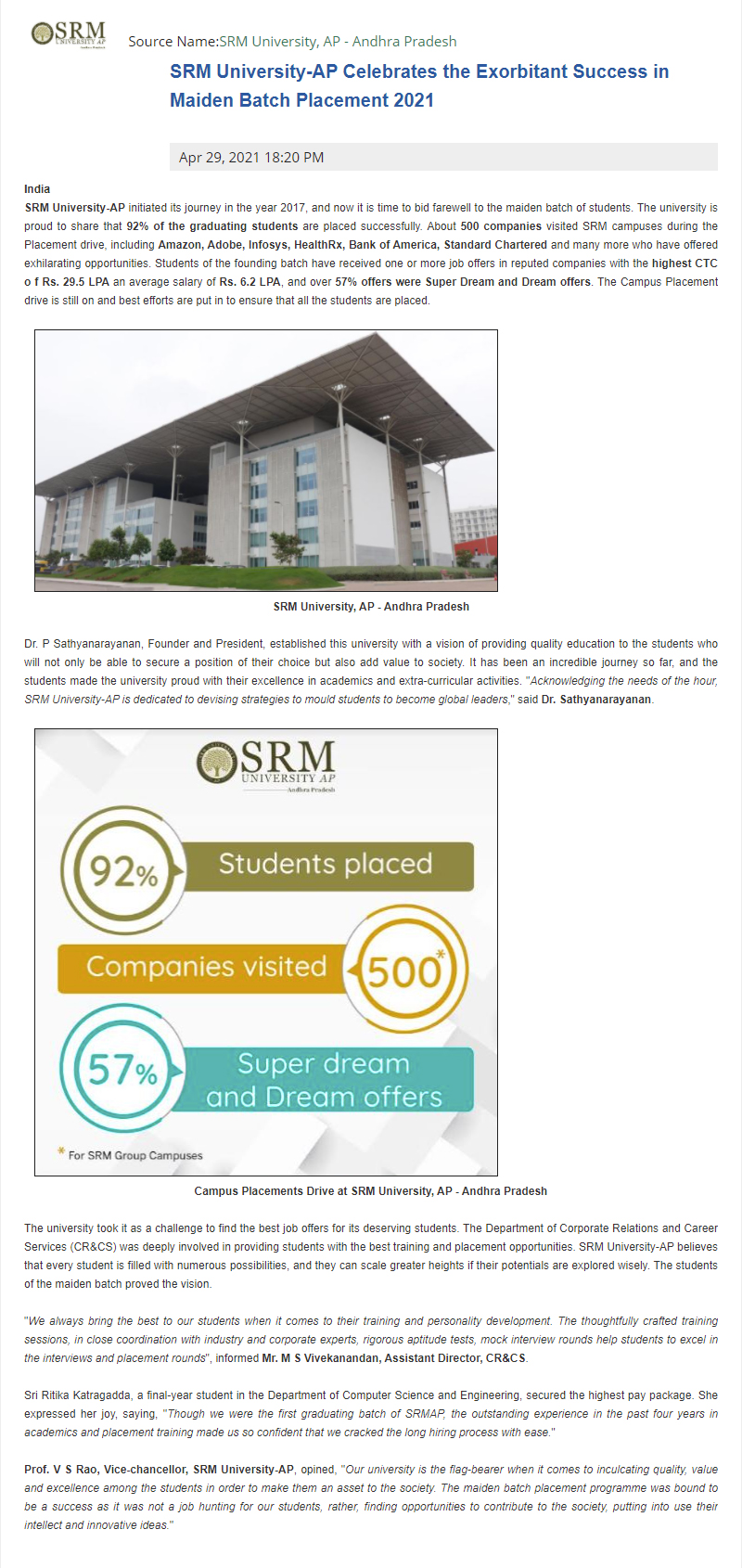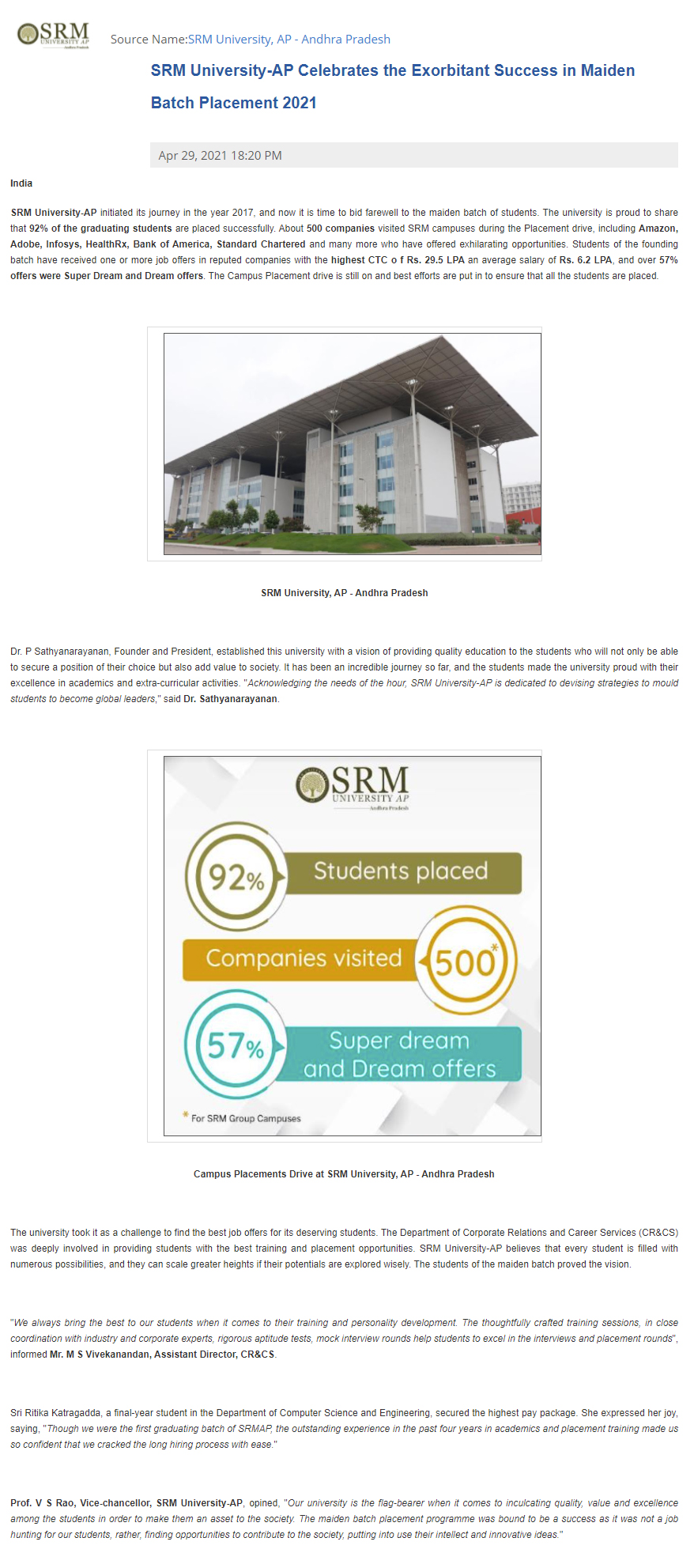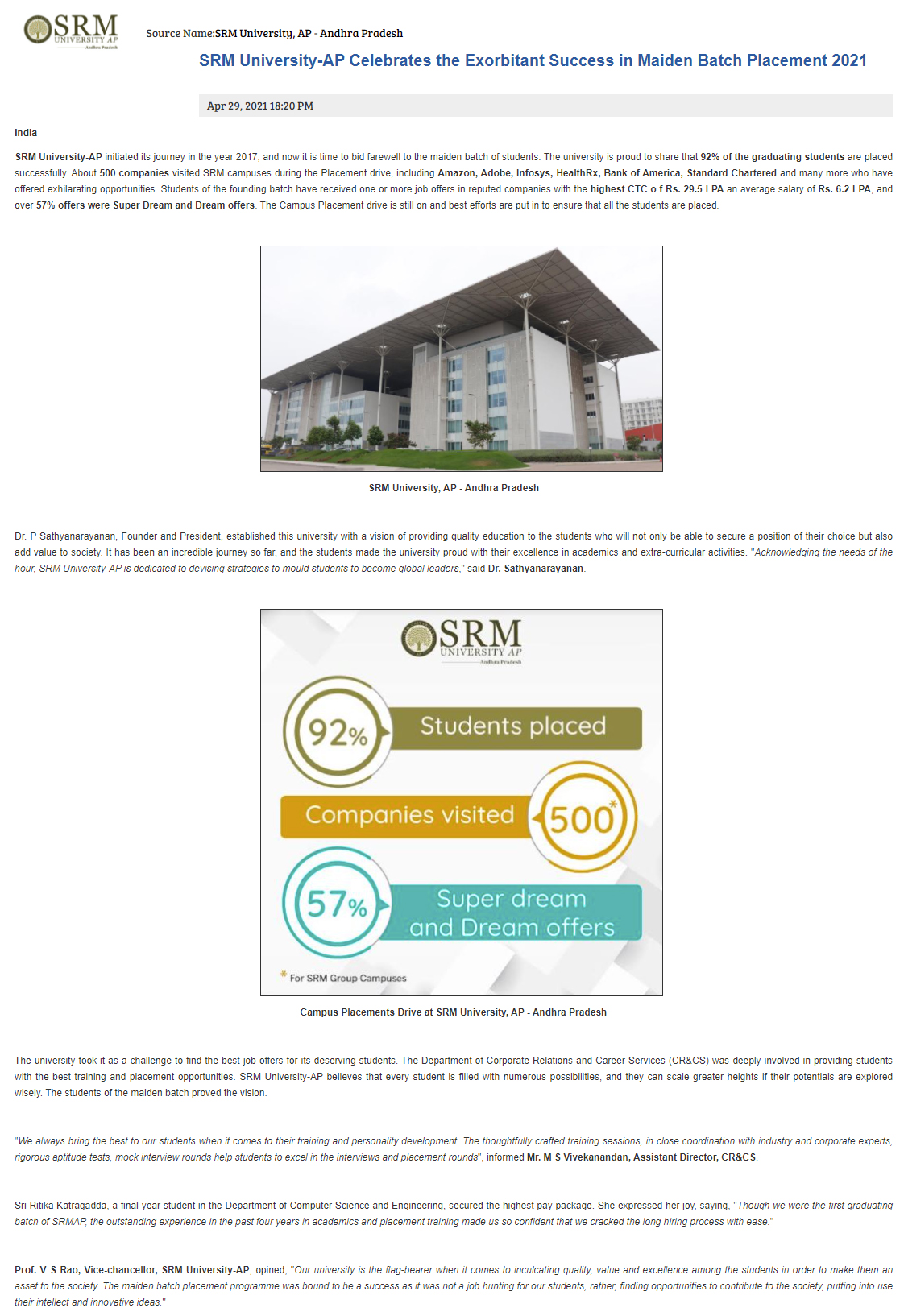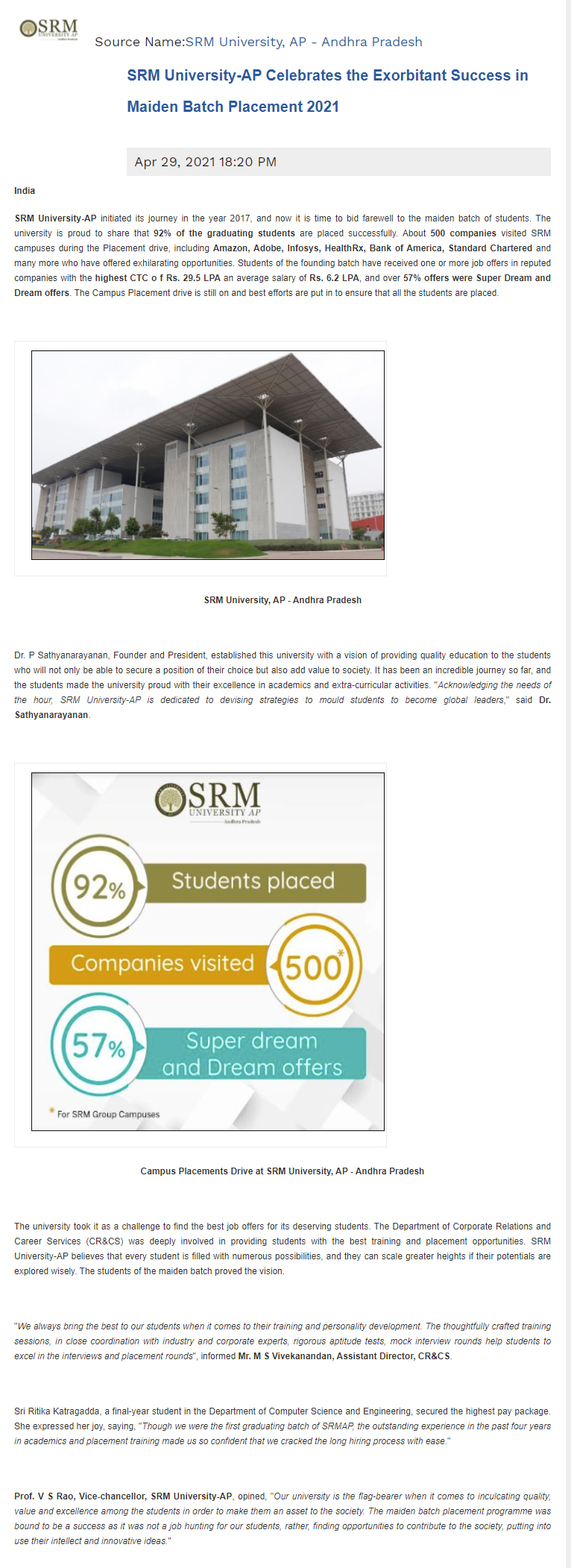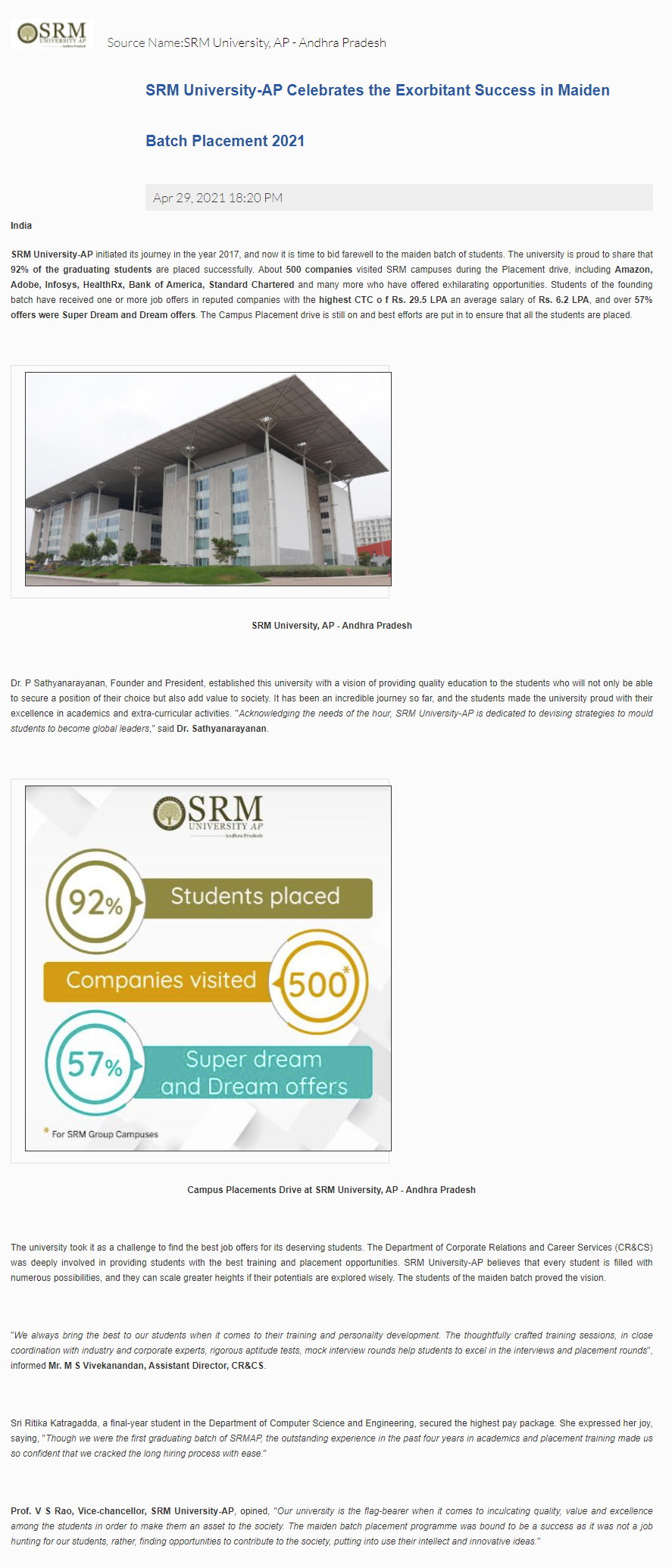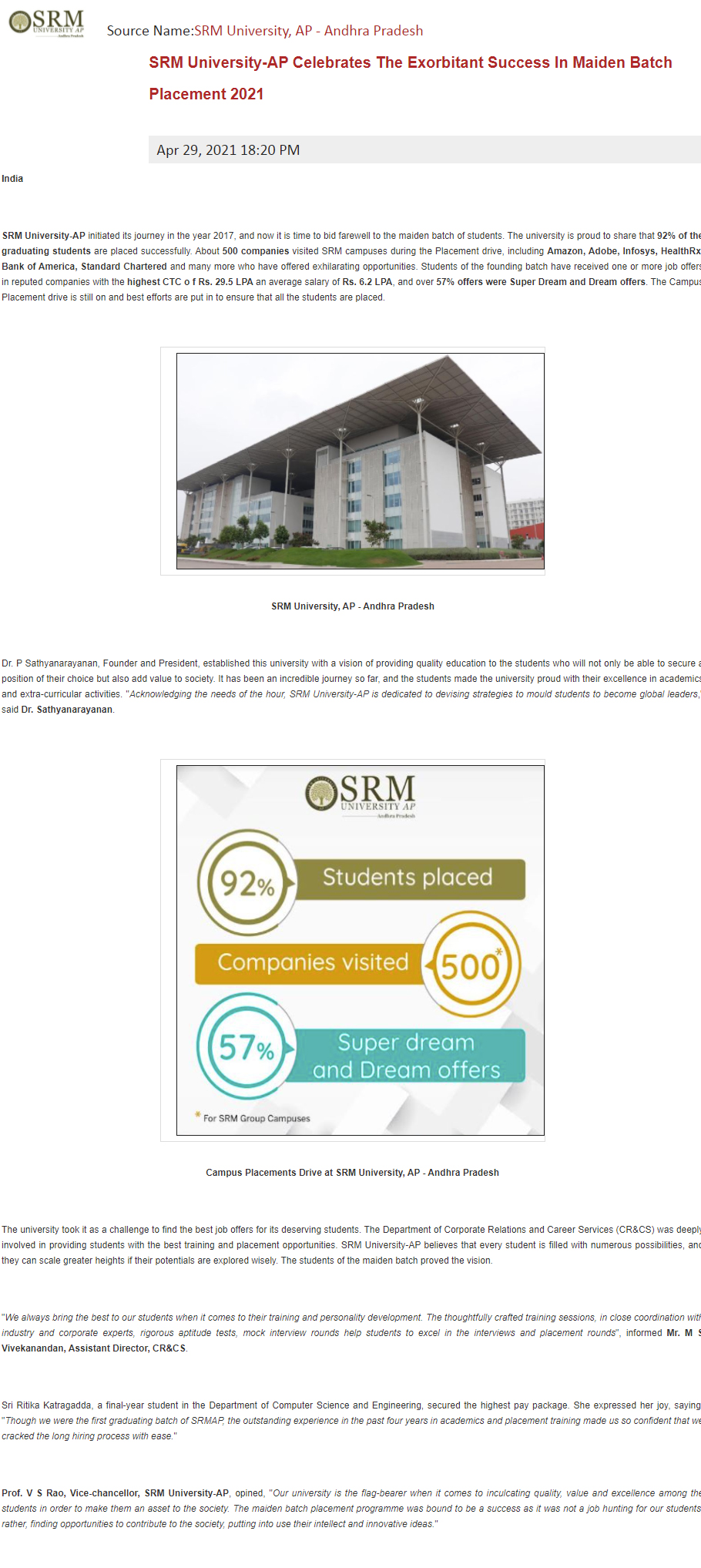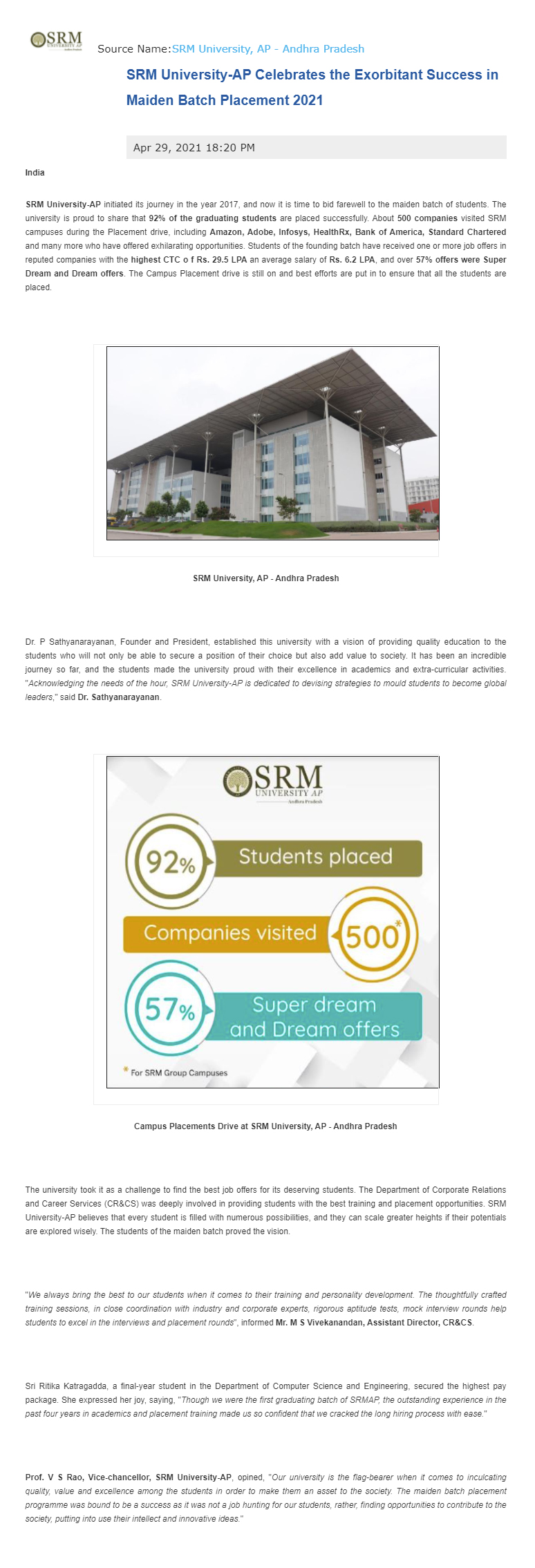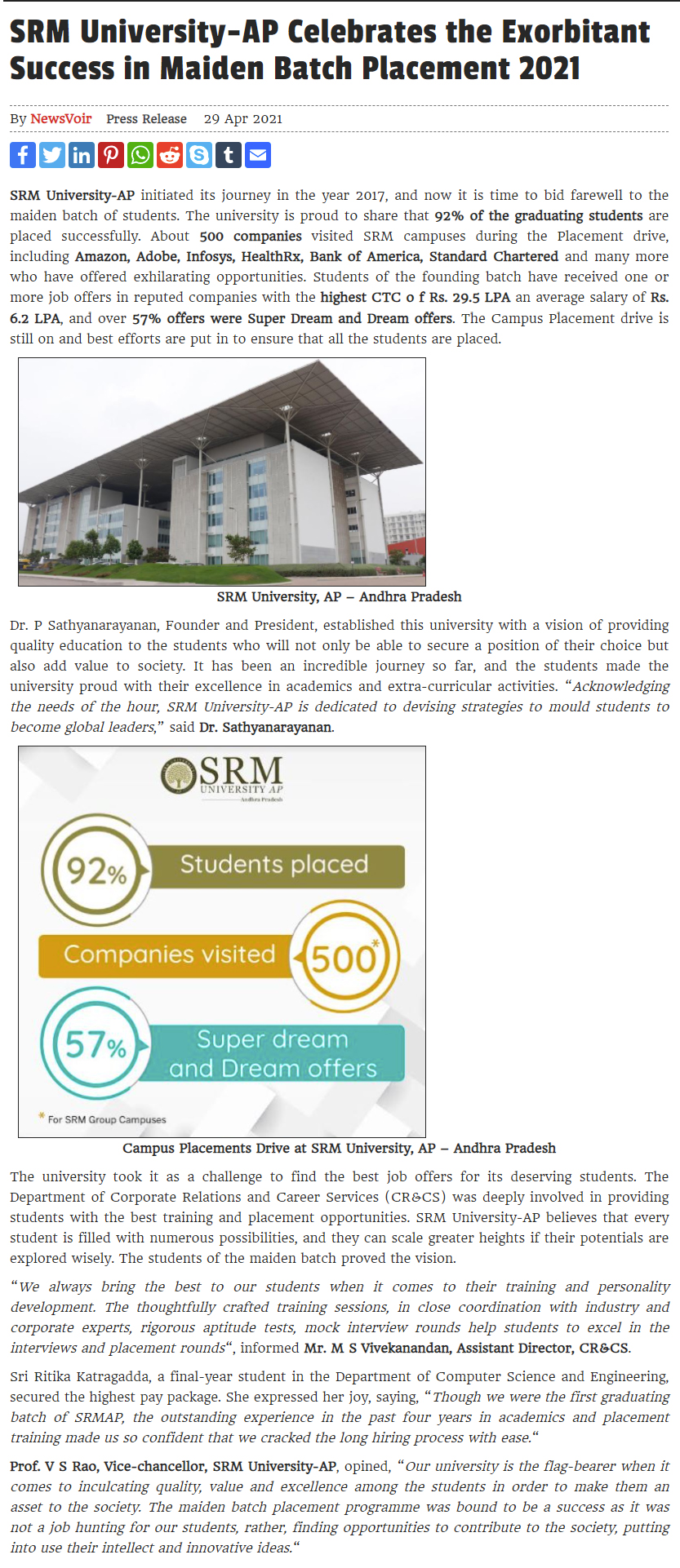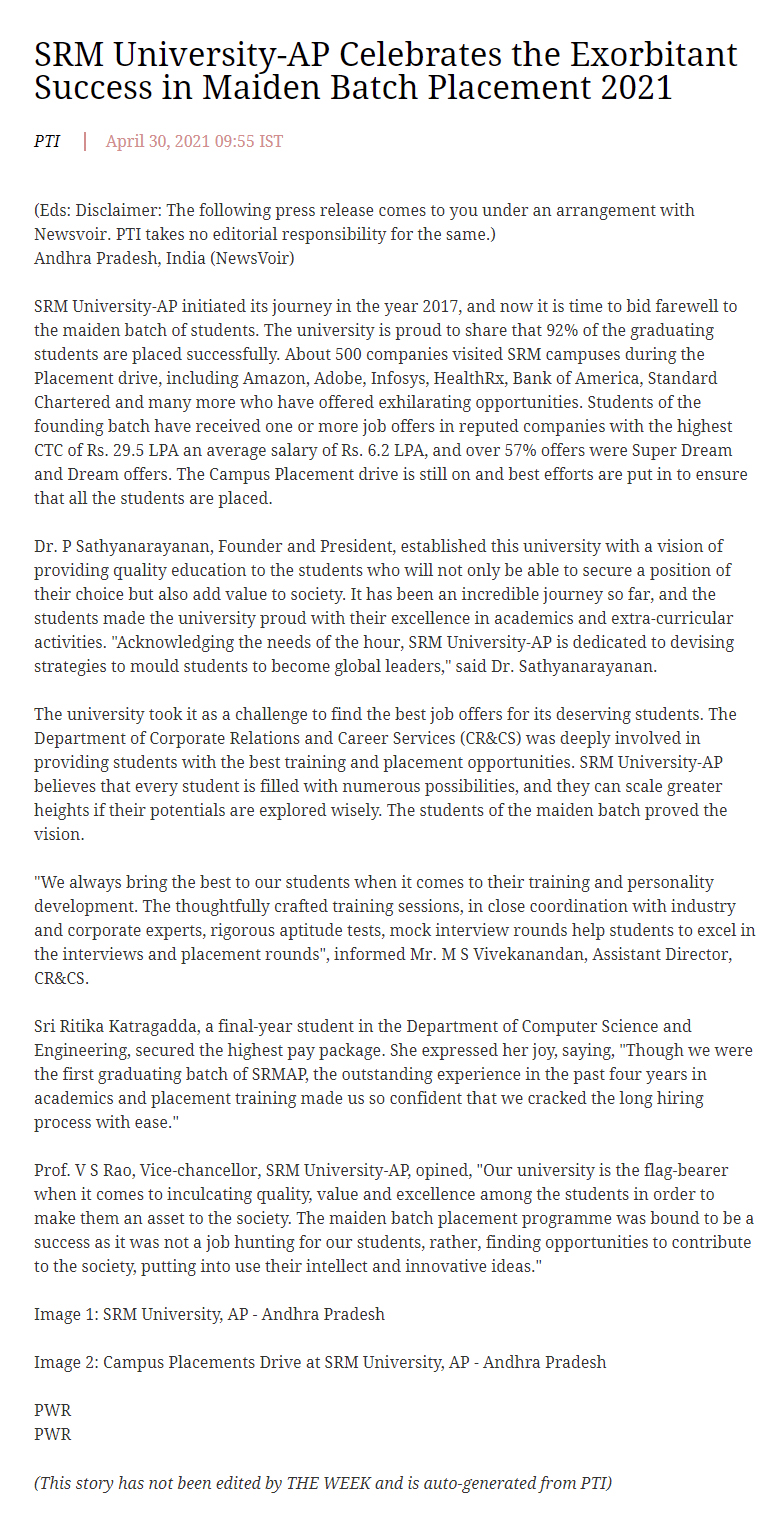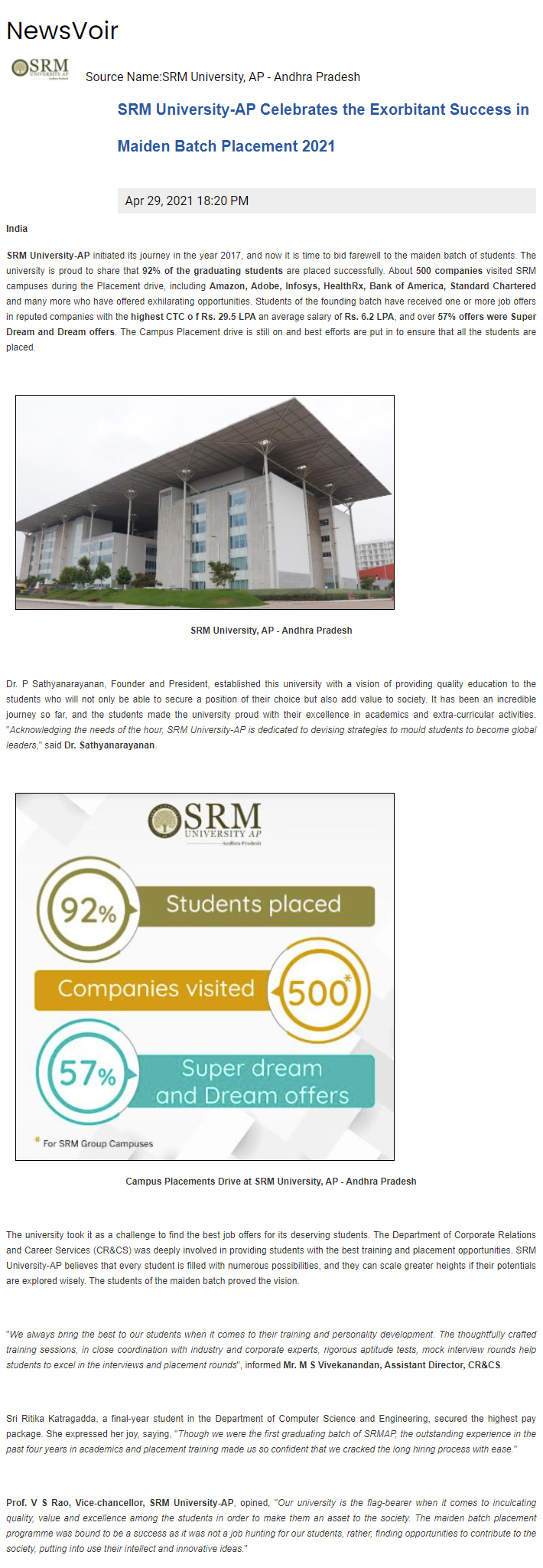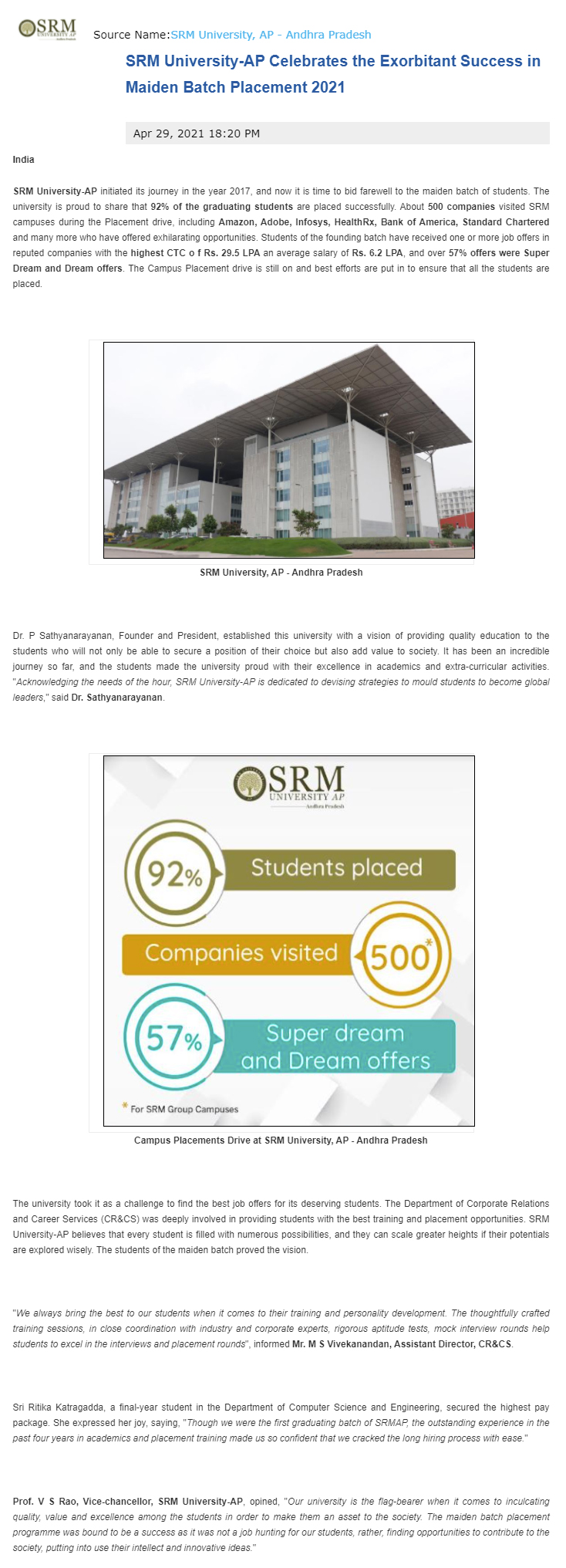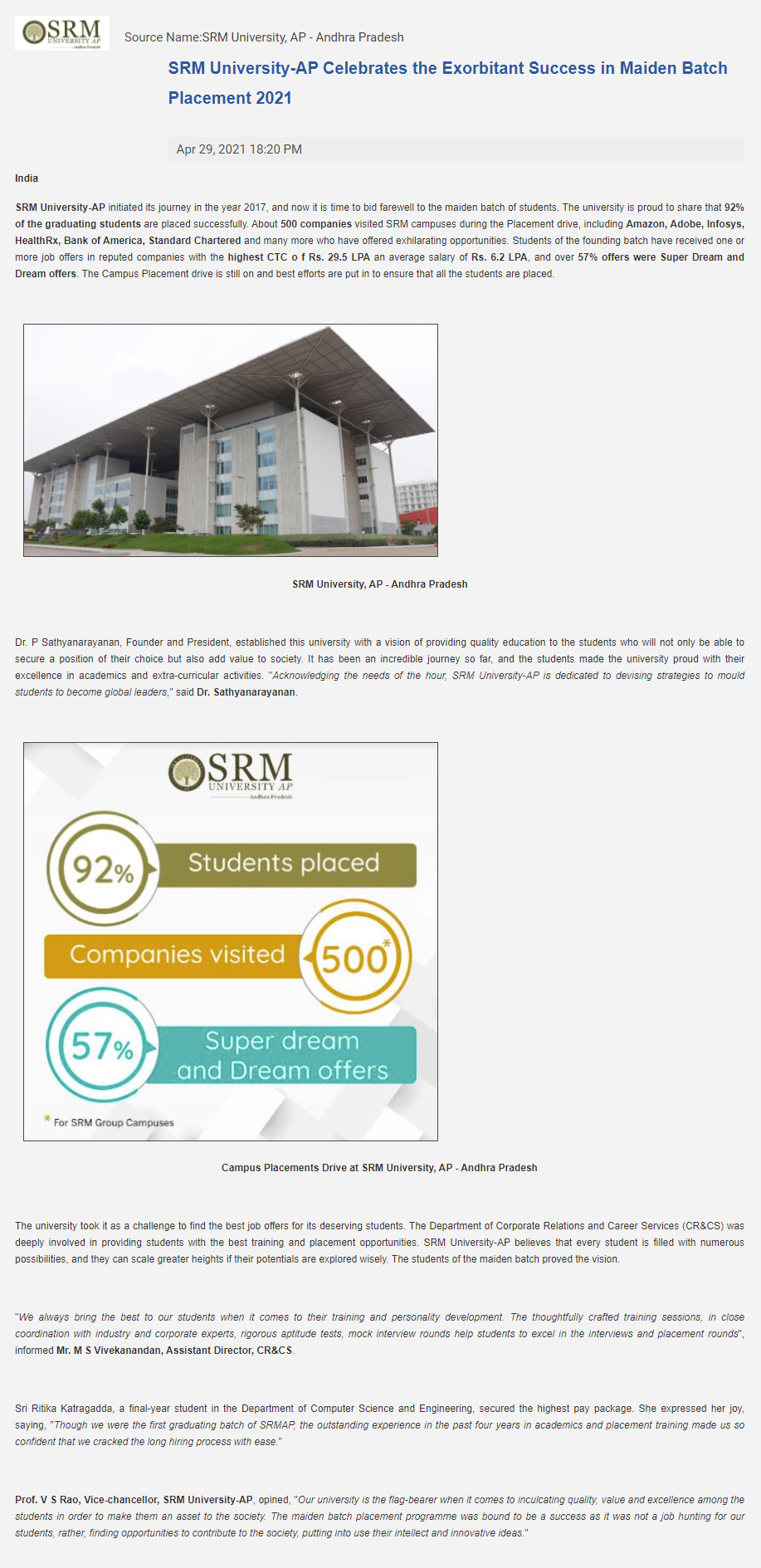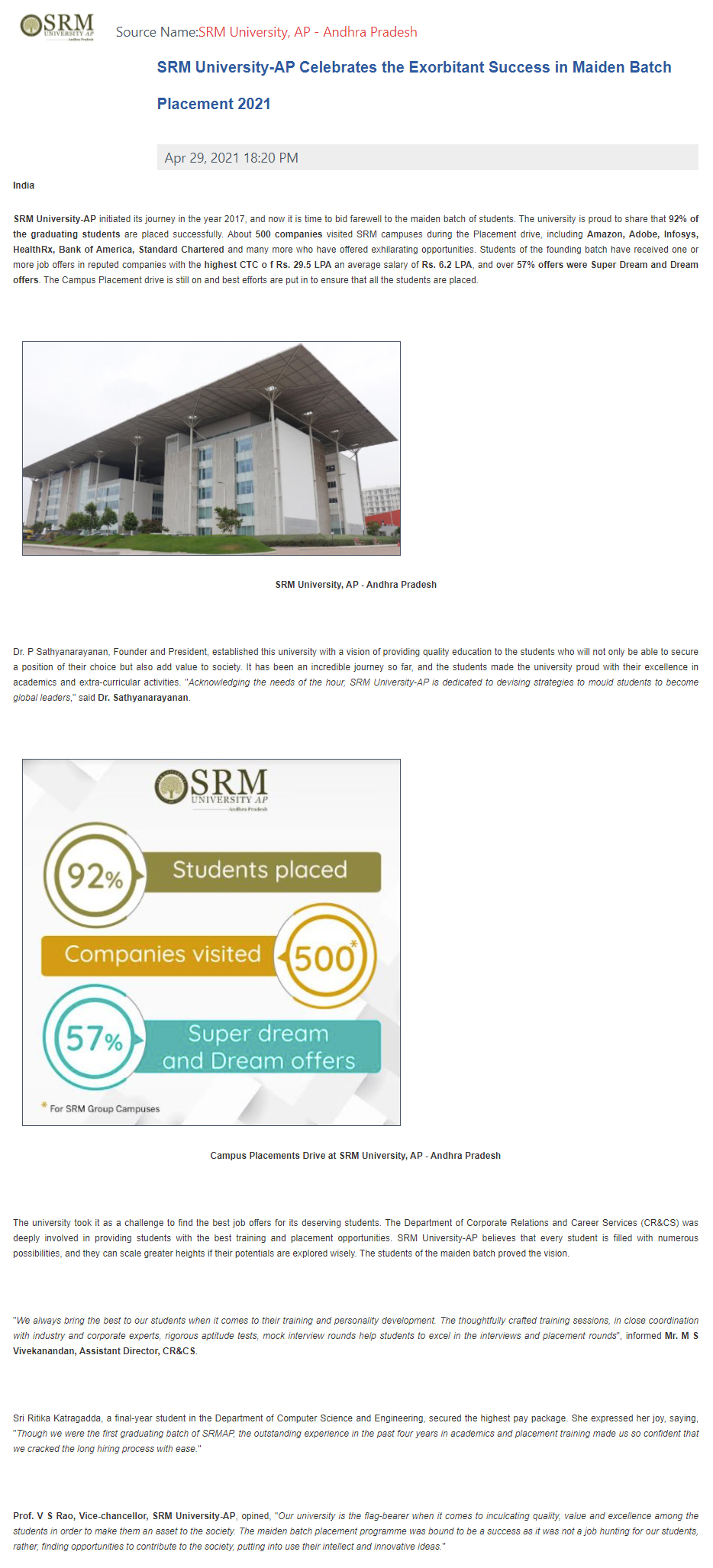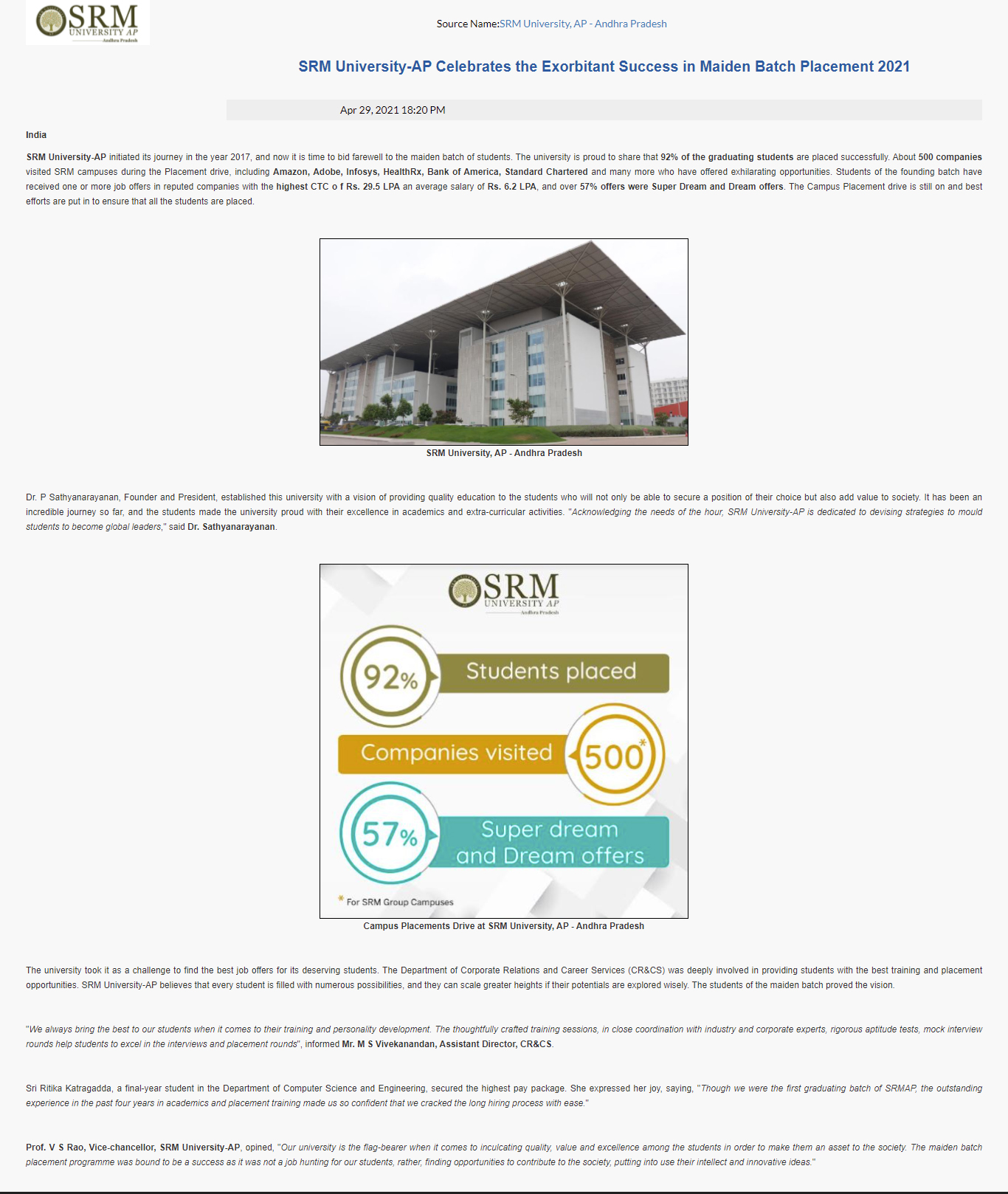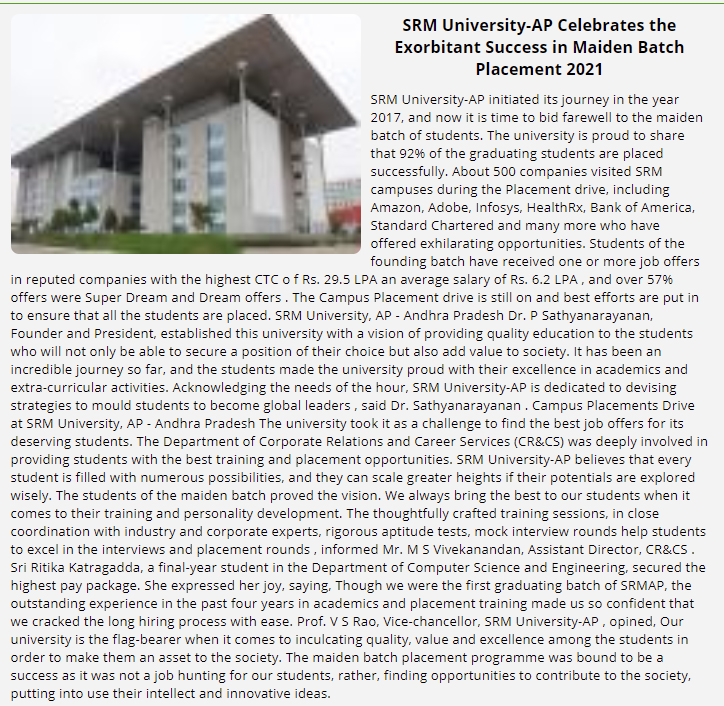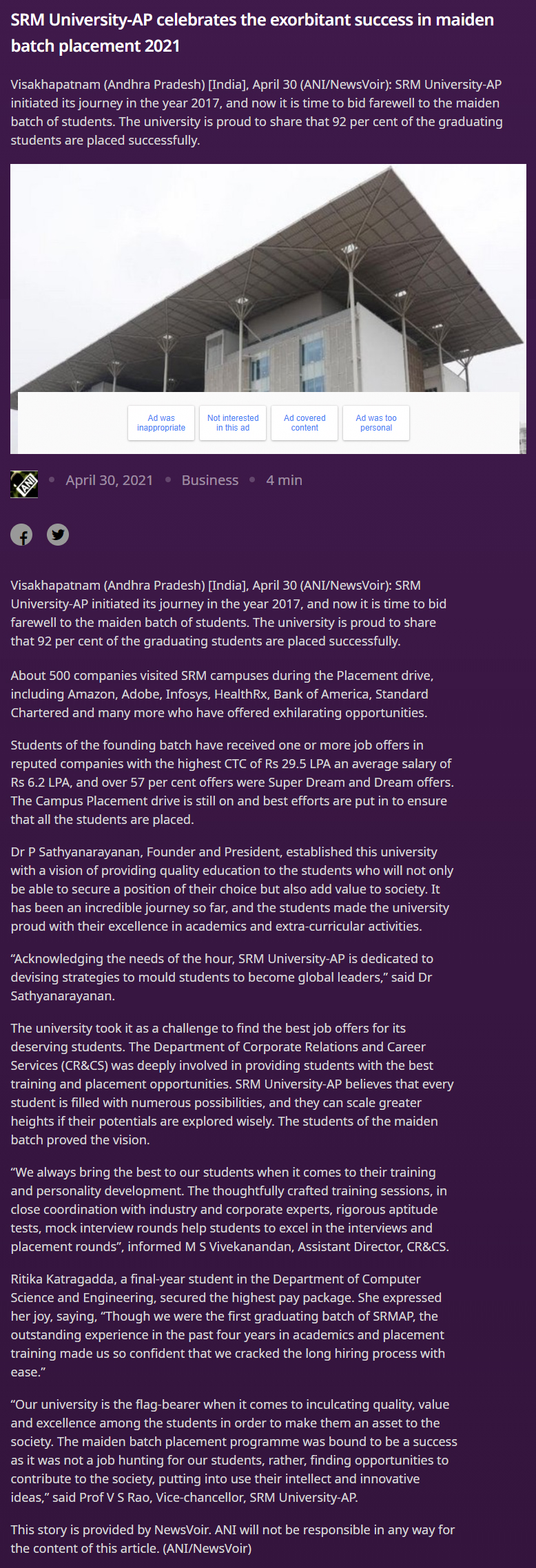All Management Events
- Prof Arunan to usher into the advancement of Molecular Beam Microwave Spectroscopy May 6, 2021
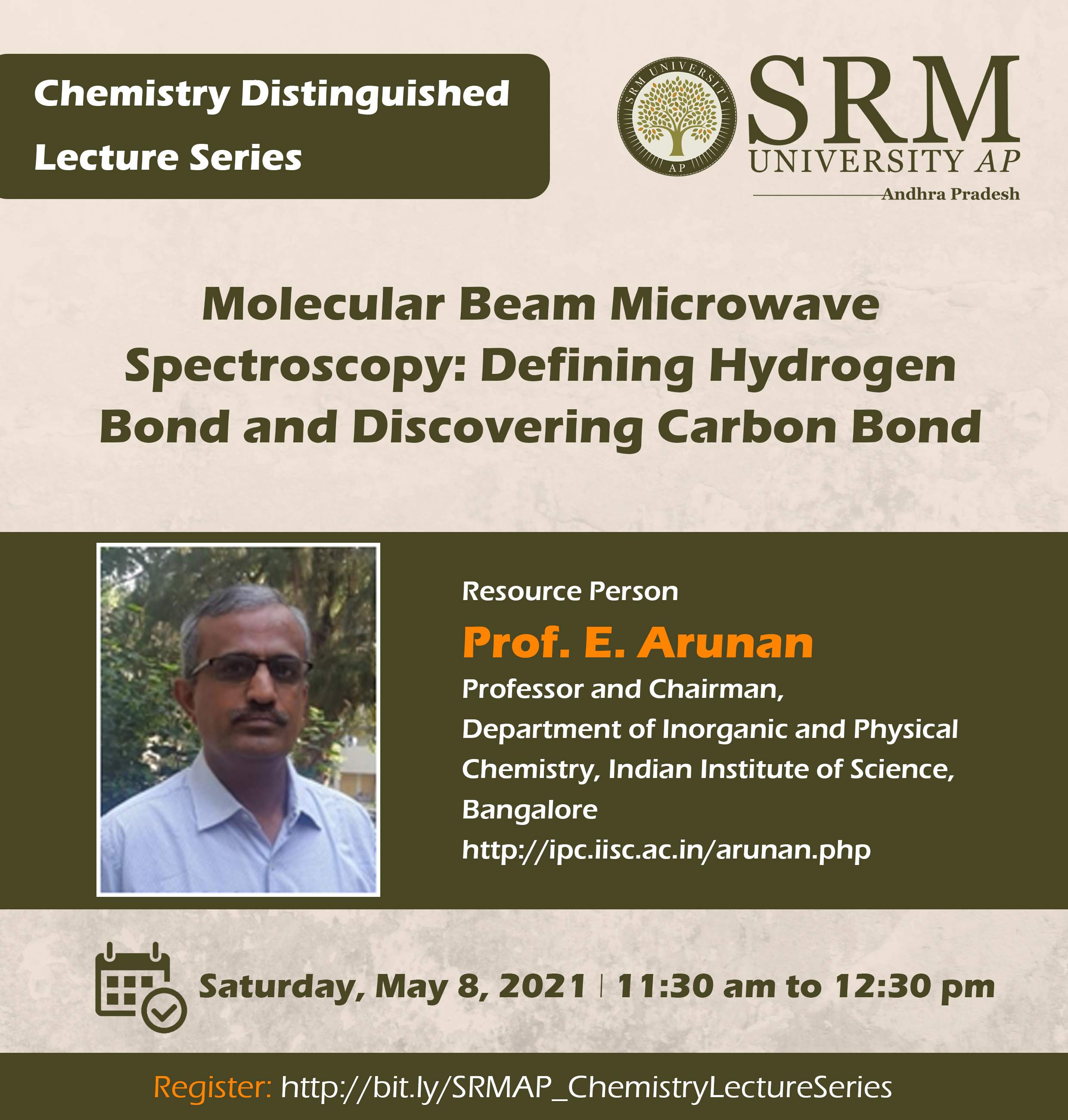 The Chemistry Distinguished Lectures series starts its voyage towards transcendental knowledge with an exciting discussion on “Molecular Beam Microwave Spectroscopy: Defining Hydrogen Bond and Discovering Carbon Bond” on May 8, 2021, at 11.30 am. Renowned scientist and Professor E Arunan from the Department of Inorganic and Physical Chemistry, Indian Institute of Science (IISc), Bangalore, will join the webinar as the Keynote Speaker.
The Chemistry Distinguished Lectures series starts its voyage towards transcendental knowledge with an exciting discussion on “Molecular Beam Microwave Spectroscopy: Defining Hydrogen Bond and Discovering Carbon Bond” on May 8, 2021, at 11.30 am. Renowned scientist and Professor E Arunan from the Department of Inorganic and Physical Chemistry, Indian Institute of Science (IISc), Bangalore, will join the webinar as the Keynote Speaker.Professor Arunan has extensive research experience in the field of Chemical Sciences and is long associated with IISc, Bangalore, one of the premier institutes of India. Dr Arunan pursued his undergraduate studies at The American College, Madurai, followed by two masters from IIT Madras and IIT Delhi. He obtained his doctoral degree from Kansas State University, USA. Prior to becoming an academician, he worked as a Post-Doctoral Scholar at the University of Illinois at Urbana-Champaign. Prof Arunan started his career as an Assistant Professor at the Department of Chemistry, IIT-Kanpur in 1995. He later moved to the Department of Inorganic and Physical Chemistry, IISc, Bangalore and became a Professor in 2009 and Chairman in 2018.
Prof Arunan’s research interests include experimental physical chemistry, molecular and van der Waals spectroscopy, chemical kinetics and dynamics, hydrogen bonding and other intermolecular bonds/interactions, shock wave interactions with molecules and materials, astrophysics/astrochemistry. He has published around 100 papers in peer-reviewed international Journals, 14 in International Conference Proceedings, 8 in Resonance, the Journal of Education and 16 in Current Science, published by the Indian Academy of Sciences. The celebrated personality has given numerous plenary, keynote and invited lectures all over India and many countries in the world, including the USA, UK, France, Germany, Italy, Poland, Spain, Portugal, Hungary, Finland, Russia, Australia, Czech Republic, China, Pakistan, Bangladesh, Singapore and South Korea. He has delivered inspiring talks at most of the premier institutes in India and also in colleges and high schools all over India.
Prof Arunan is a Fellow of International Union of Pure and Applied Chemistry, Indian Academy of Sciences and a member of the International Advisory Board for ‘Horizons in Hydrogen Bond Research” Conference 2011, International Advisory Board for the Asian Spectroscopy Conference 2009-2013, Programme Advisory Committee on Physical Chemistry, Department of Science and Technology 2008-2012, International Advisory Editorial Board for Physical Chemistry Chemical Physics, Royal Society Publication, From 2005 and many other organisations and advisory boards. Further, he is serving the scientific community as the Section Editor (Chemistry) for Current Science from 2018, Associate Editor from 2013, Associate Editor for Journal of Chemical Sciences from 2012-2016.
Prof Arunan’s contributions to the world of Chemical Sciences has been acknowledged with many awards and accolades. He was the recipient of the Chemical Research Society of India Bronze Medal 2008. He is also the Founder Member cum Vice-President of the Indian Society for Shockwave Research.
Chemistry enthusiasts are encouraged to join the webinar to learn more on the Molecular Beam Microwave Spectroscopy from the expert himself on May 8, 2021, at 11.30 am.
Register: http://bit.ly/SRMAP_ChemistryLectureSeries
Continue reading → - Dr Ramana Vinjamuri to expose the fascinating tale of “Synergy Based Human Machine Interfaces” May 5, 2021
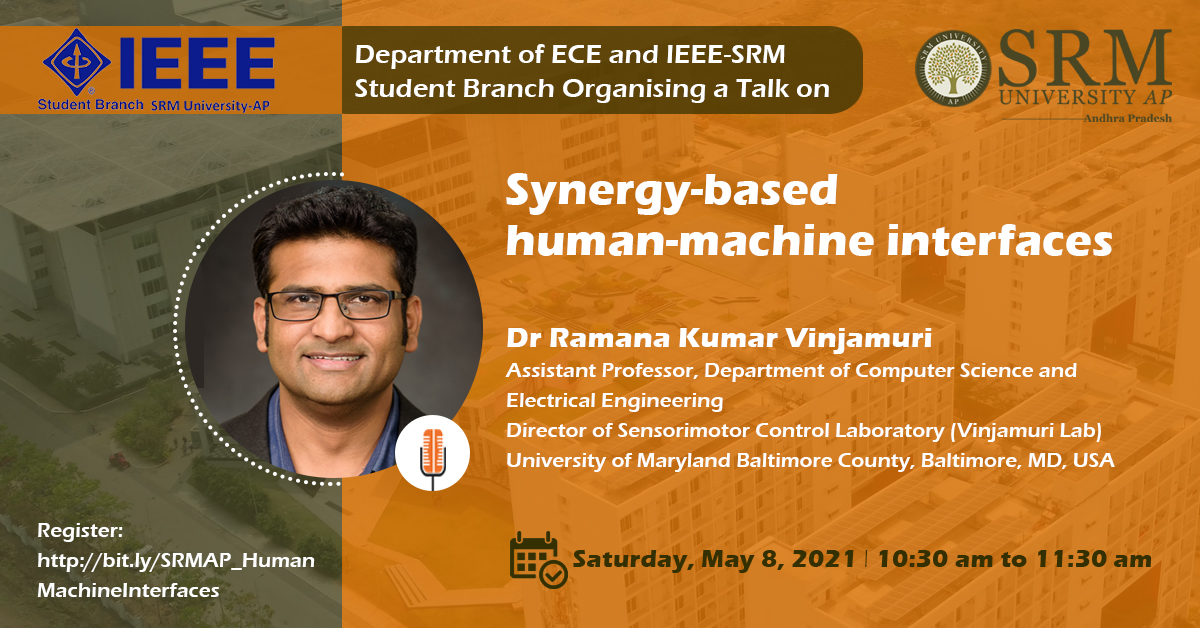 In collaboration with IEEE-SRM Student Branch, Department of Electronics and Communication Engineering, SRM University-AP, Andhra Pradesh, is organising a highly called for discussion on “Synergy Based Human Machine Interfaces”. The event has been scheduled for May 8, 2021, at 10:30 am. Dr Ramana Kumar Vinjamuri, Assistant Professor, Department of Computer Science and Electrical Engineering and Director of Sensorimotor Control Laboratory (Vinjamuri Lab), University of Maryland Baltimore County, Baltimore, MD, USA, will honour us with his presence as the keynote speaker.
In collaboration with IEEE-SRM Student Branch, Department of Electronics and Communication Engineering, SRM University-AP, Andhra Pradesh, is organising a highly called for discussion on “Synergy Based Human Machine Interfaces”. The event has been scheduled for May 8, 2021, at 10:30 am. Dr Ramana Kumar Vinjamuri, Assistant Professor, Department of Computer Science and Electrical Engineering and Director of Sensorimotor Control Laboratory (Vinjamuri Lab), University of Maryland Baltimore County, Baltimore, MD, USA, will honour us with his presence as the keynote speaker.Human-machine interface (HMI) has not only become a popular technology but has become the hope of many individuals for restoring their lost limb function. Any HMI has two important intrinsic design components—(i) decode the human commands and (ii) controlling the machine to convert that command into action. Decades of research went into making the interface between the human and the machine seamless but was unable to effectively address the inherent challenges, namely, complexity, adaptability and variability.
To overcome the above challenges, it is critical to computationally understand and quantitatively characterise human sensorimotor control. Emerging areas in HMIs critically depend on the ability to build bioinspired models, experimentally validate them and utilise them in adaptive and intuitive control. The human hand with high dimensionality encompasses the three inherent challenges and may serve as an ideal validation paradigm. How central nervous system (CNS) controls this high dimensional human hand effortlessly is still an unsolved mystery.
To address this high dimensional control problem, many bioinspired motor control models have been proposed, one of which is based on synergies. According to this model, instead of controlling individual motor units, CNS simplifies the control using coordinated control of groups of motor units called synergies. However, there are several unanswered questions today— Where are synergies present in CNS? What is their role in motor control and motor learning? By combining the concepts of human motor control, computational neuroscience, machine learning and validation with noninvasive human experiments, can we answer these fundamental questions? The goal of this research is to develop efficient, seamless and near-natural human-machine interfaces based on biomimetically inspired models.
Dr Ramana Vinjamuri received his PhD in Electrical Engineering in 2008, specialised in dimensionality reduction in control and coordination of human hand from the University of Pittsburgh. He worked as a postdoctoral research associate (2008-2012) in the field of Brain-Machine Interfaces (BMI) to control prosthesis in the School of Medicine, the University of Pittsburgh, where he received Mary E Switzer Merit Fellowship from NIDILRR in 2010. Prior to that, he worked as a Research Assistant Professor in the Department of Biomedical Engineering at Johns Hopkins University (2012-2013) in the area of neuroprosthetics. He also served as an Assistant Professor in the Department of Biomedical Engineering at Stevens Institute of Technology (2013-2020). In 2018, he received Harvey N Davis Distinguished Teaching Award for excellence in undergraduate and graduate teaching. He earned the NSF CAREER Award in 2019 and NSF IUCRC Center Planning grant in 2020. His other notable research awards are from USISTEF and New Jersey Health Foundation. He holds a secondary appointment as an Adjunct Assistant Professor at the Indian Institute of Technology, Hyderabad, India. He is currently an Assistant Professor in the Department of Computer Science and Electrical Engineering at the University of Maryland Baltimore County.
Register: http://bit.ly/SRMAP_HumanMachineInterfaces
Continue reading → - SRM University-AP celebrates the exorbitant success in Maiden Batch Placement 2021 May 3, 2021
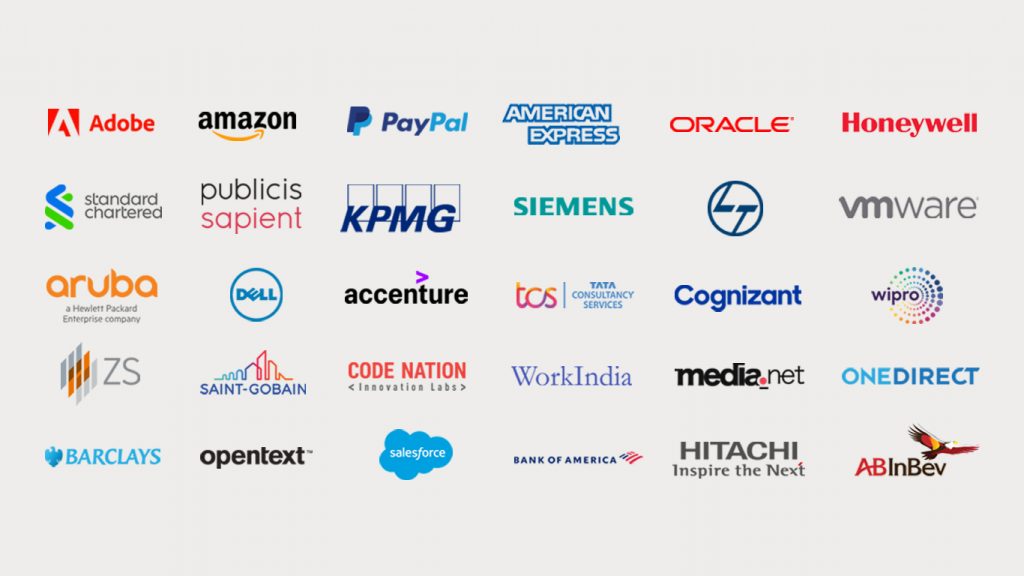 SRM University-AP initiated its journey in the year 2017, and now it is time to bid farewell to the maiden batch of students. The university is proud to share that 100% of our graduating students are placed successfully. About 500 companies visited SRM campuses during the Placement drive, including Amazon, Adobe, Infosys, HealthRx, Bank of America, Standard Chartered and many more who have offered exhilarating opportunities. Students of the founding batch have received one or more job offers in reputed companies with the highest CTC of ₹29.5 LPA, an average salary of ₹6.2 LPA, and over 57% offers were Super Dream and Dream offers. The Campus Placement drive is still on and best efforts are put in to ensure that all the students are placed.
SRM University-AP initiated its journey in the year 2017, and now it is time to bid farewell to the maiden batch of students. The university is proud to share that 100% of our graduating students are placed successfully. About 500 companies visited SRM campuses during the Placement drive, including Amazon, Adobe, Infosys, HealthRx, Bank of America, Standard Chartered and many more who have offered exhilarating opportunities. Students of the founding batch have received one or more job offers in reputed companies with the highest CTC of ₹29.5 LPA, an average salary of ₹6.2 LPA, and over 57% offers were Super Dream and Dream offers. The Campus Placement drive is still on and best efforts are put in to ensure that all the students are placed.Dr P Sathyanarayanan, Founder and President, established this university with a vision of providing quality education to the students who will not only be able to secure a position of their choice but also add value to society. It has been an incredible journey so far, and the students made the university proud with their excellence in academics and extra-curricular activities. “Acknowledging the needs of the hour, SRM University-AP is dedicated to devising strategies to mould students to become global leaders,” said Dr Sathyanarayanan.
The university took it as a challenge to find the best job offers for its deserving students. The Department of Corporate Relations and Career Services (CR&CS) was deeply involved in providing students with the best training and placement opportunities. SRM University-AP believes that every student is filled with numerous possibilities, and they can scale greater heights if their potentials are explored wisely. The students of the maiden batch proved the vision.
“We always bring the best to our students when it comes to their training and personality development. The thoughtfully crafted training sessions, in close coordination with industry and corporate experts, rigorous aptitude tests, mock interview rounds help students to excel in the interviews and placement rounds”, informed Mr M S Vivekanandan, Assistant Director, CR&CS.
Sri Ritika Katragadda, a final-year student in the Department of Computer Science and Engineering, secured the highest pay package. She expressed her joy, saying, “Though we were the first graduating batch of SRMAP, the outstanding experience in the past four years in academics and placement training made us so confident that we cracked the long hiring process with ease”.
Prof V S Rao, Vice-Chancellor, SRM University-AP, opined, “Our university is the flag-bearer when it comes to inculcating quality, value and excellence among the students in order to make them an asset to the society. The maiden batch placement programme was bound to be a success as it was not a job hunting for our students, rather, finding opportunities to contribute to the society, putting into use their intellect and innovative ideas”.
SRM University – AP Placements 2021
Continue reading →
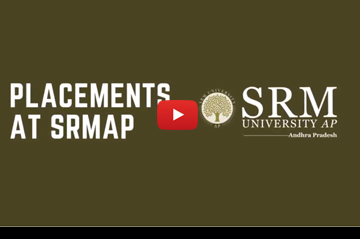
- SRM University-AP Student earns Erasmus Mundus Scholarship 2021 May 1, 2021
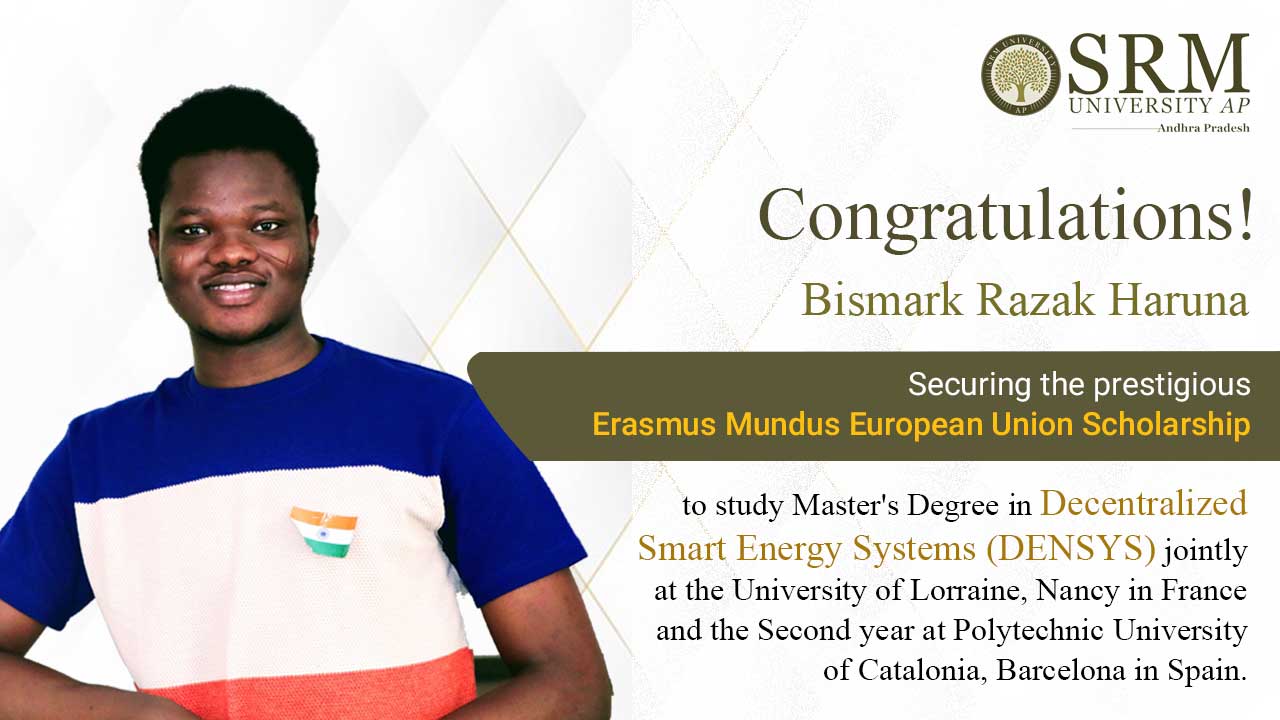 Since its inception, SRM University-AP, Andhra Pradesh, has retained its exalted heights of excellence and brilliance. Avid students over the years have brought laurels to the organisation with impressive research work, outstanding academic performance or Guinness World Record for spectacular artistry. Bismark Razak Haruna, a B. Tech Final Year Student at the Department of Mechanical Engineering, is deemed to be bestowed on the highly prestigious Erasmus Mundus scholarship. The globally acclaimed European Union-funded scholarship will help Bismark pursue the joint master’s degree programme in Decentralised Smart Energy Systems (DENSYS) in renowned universities of Europe.
Since its inception, SRM University-AP, Andhra Pradesh, has retained its exalted heights of excellence and brilliance. Avid students over the years have brought laurels to the organisation with impressive research work, outstanding academic performance or Guinness World Record for spectacular artistry. Bismark Razak Haruna, a B. Tech Final Year Student at the Department of Mechanical Engineering, is deemed to be bestowed on the highly prestigious Erasmus Mundus scholarship. The globally acclaimed European Union-funded scholarship will help Bismark pursue the joint master’s degree programme in Decentralised Smart Energy Systems (DENSYS) in renowned universities of Europe.Bismark sets an example by being the first Ghanaian to get into the DENSYS program. He expressed that as part of the mobility scheme of the programme, he would pursue the first year at the University of Lorraine, Nancy, France, and continue the final year at the Polytechnic University of Catalonia, Barcelona, Spain. The Erasmus Mundus Scholarship help students enrol into the world’s best universities for masters and doctoral programmes with substantial benefits. Bismark shared his thoughts, “I welcome the opportunity to play an important role in increased electrification in Sub-Saharan Africa through the integration of renewable energy sources for a low carbon society”.
Approximately 392 aspirants applied for the DENSYS program globally, and out of 23 students from 17 countries, Bismark secured his place. Erasmus Mundus Scholarship Programme covers the expenditure involving the tuition fee, insurance, participation in activities such as the lab courses, excursion, research projects, financial support for housing, feeding, transportation and installation fee as well.
While speaking of his success, Bismark expressed his gratitude towards the SRM University-AP for consistently providing him with golden opportunities and resources. “From conceptualising undergraduate research project to studying abroad at UC Berkeley, the University has been a constant support. A special thanks to my motivators and mentors- Dr Prakash Jadav, Dr Satya Pramod Jammy, Dr Sarfaraz Hussain Halkarni, Dr Ram Kuresh Thakur, Dr Srabani Basu, Ms Revathi Balakrishnan for grooming and guiding me throughout the journey. I convey my sincere thanks to my buddies as well for helping me out with the scholarship application”, Bismark added while being ready for exploring the next chapter of his life in the European Union.
Continue reading → - SRM University-AP celebrates the exorbitant success in maiden batch placement 2021 May 1, 2021
Daily Pioneer – Apr 30
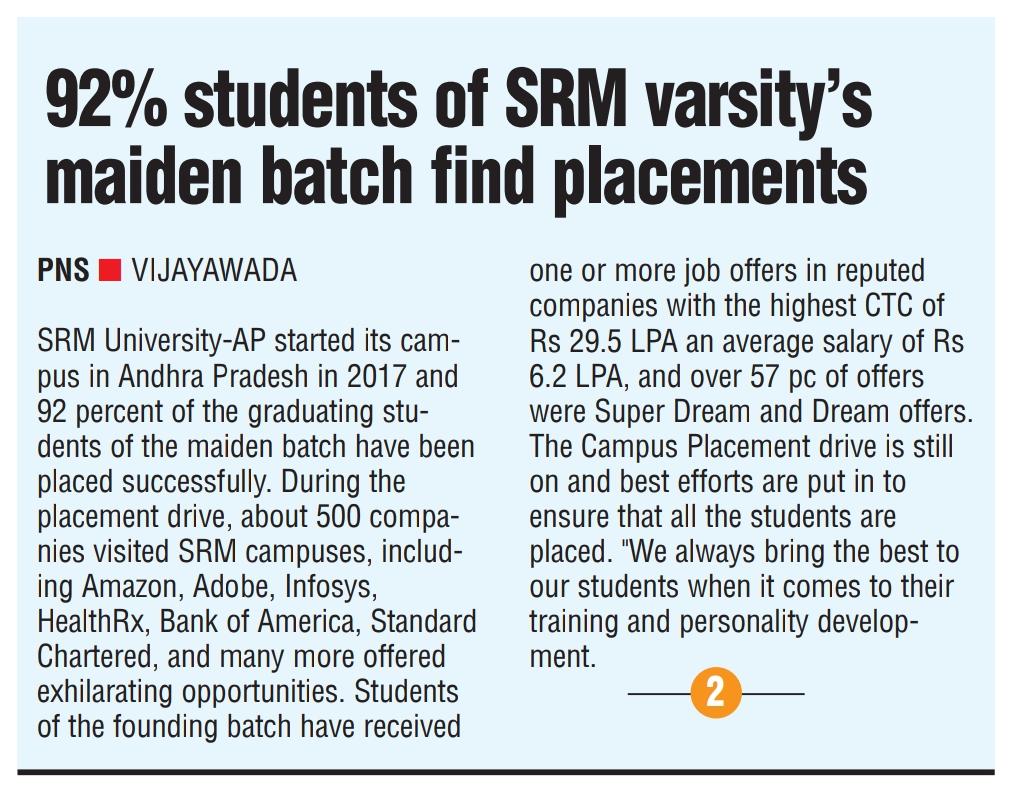

Hans India – Apr 30
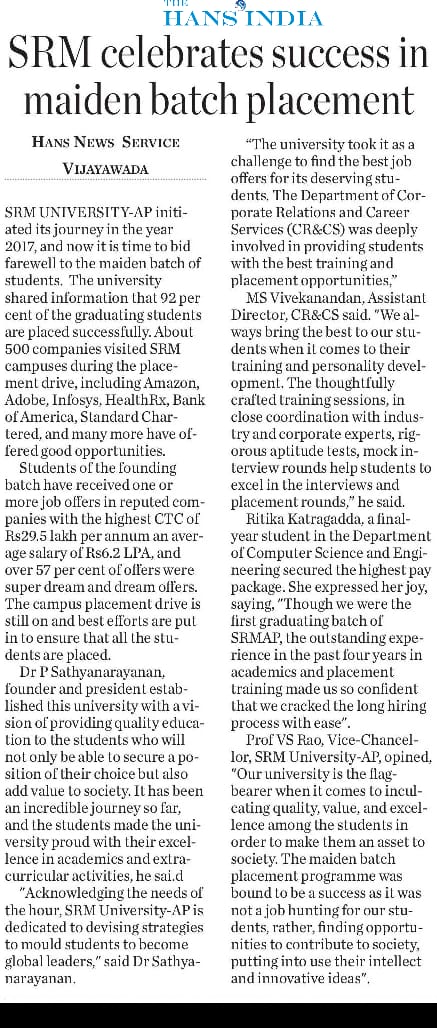
Business News This Week – Apr 29
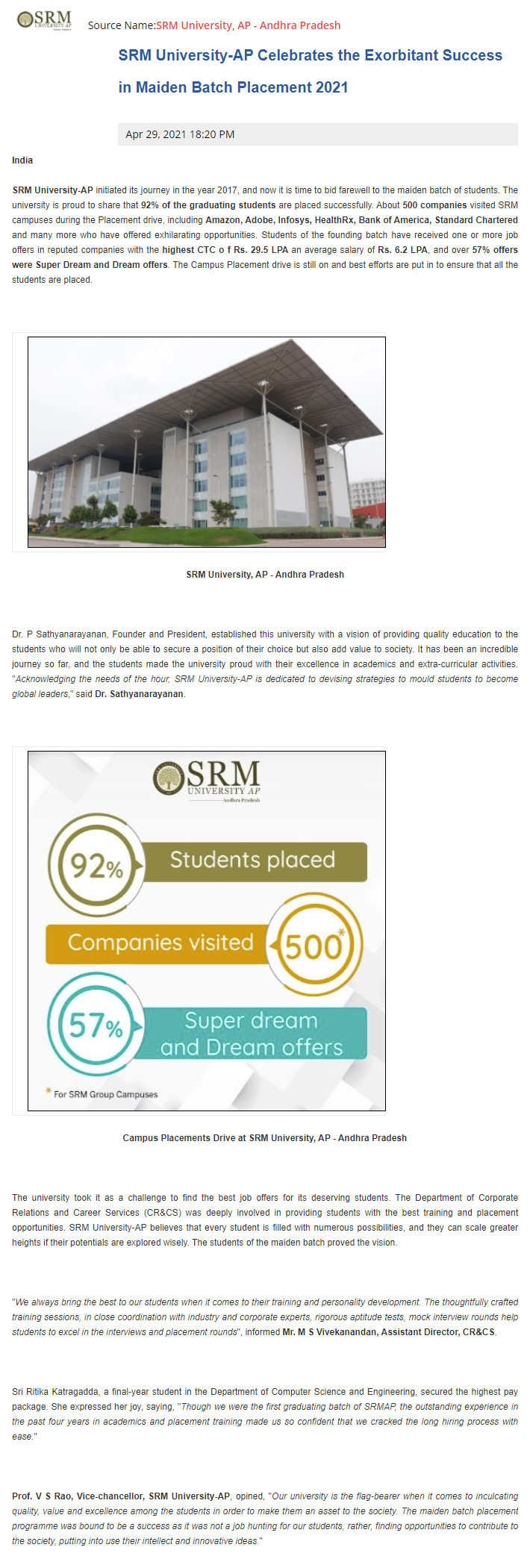
Enterprise world News – Apr 29
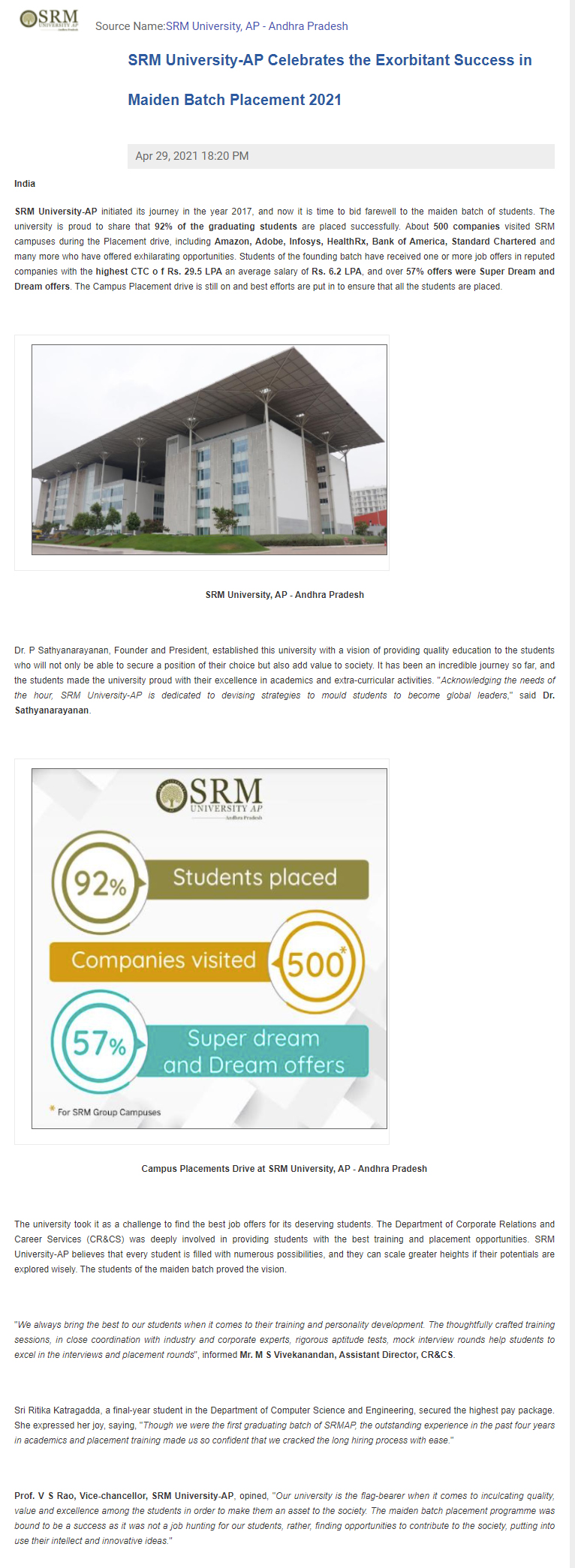
India Education Diary – Apr 29
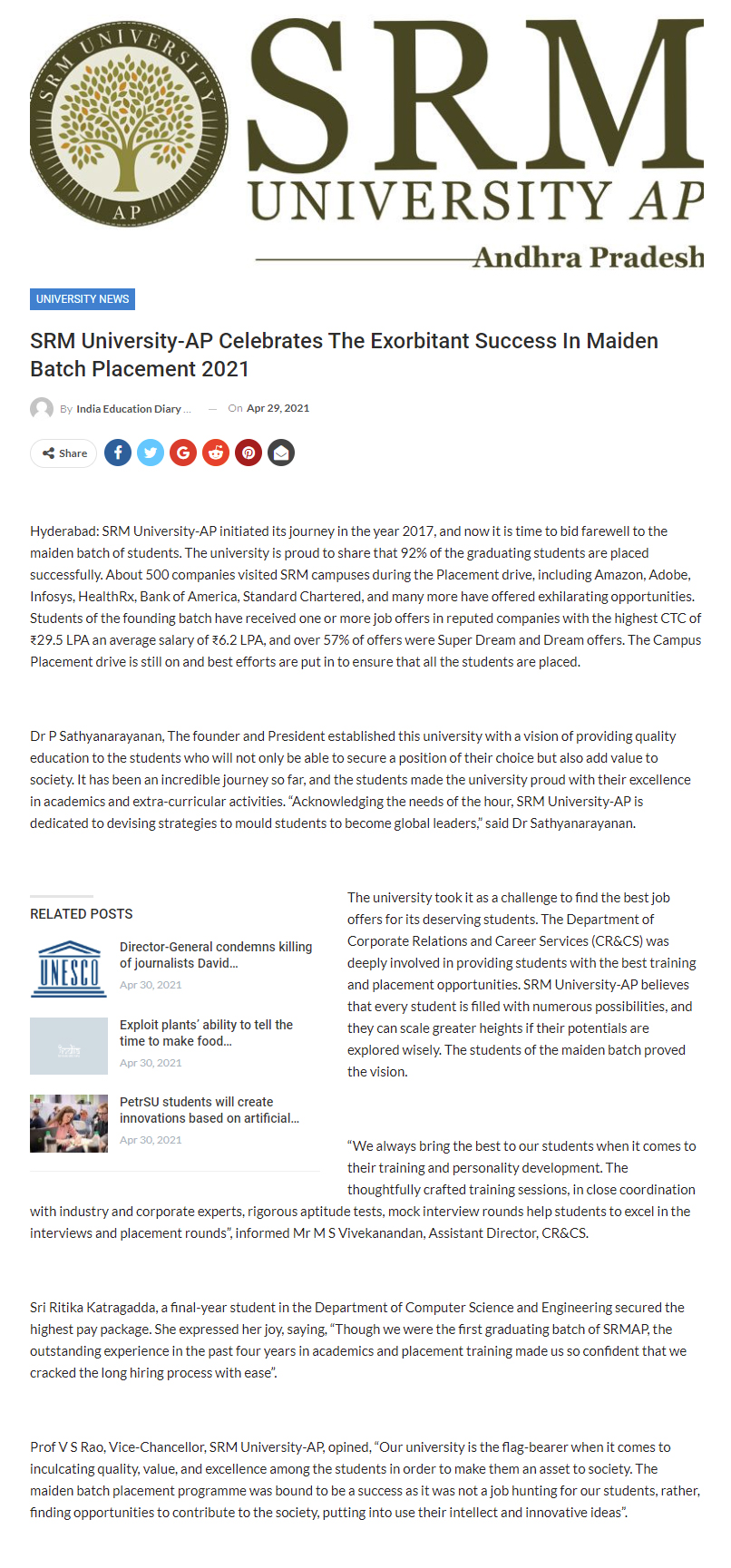
International Brand Equity – Apr 29
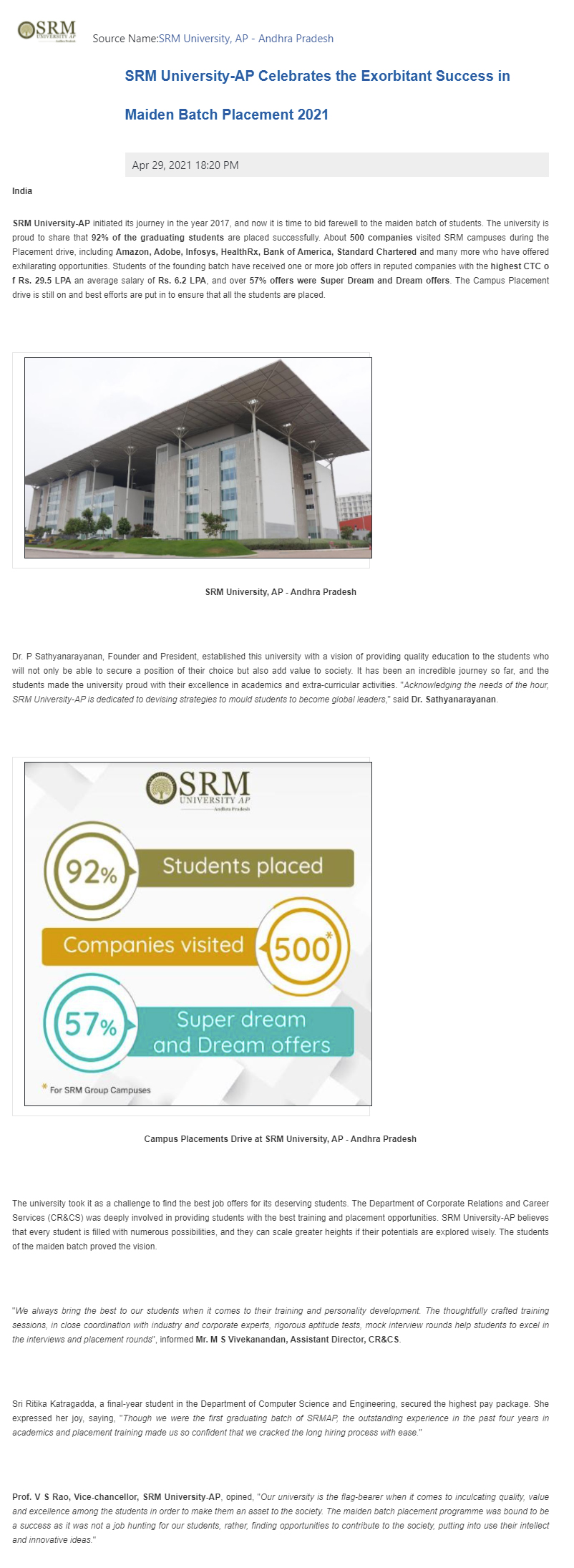
– Apr 29
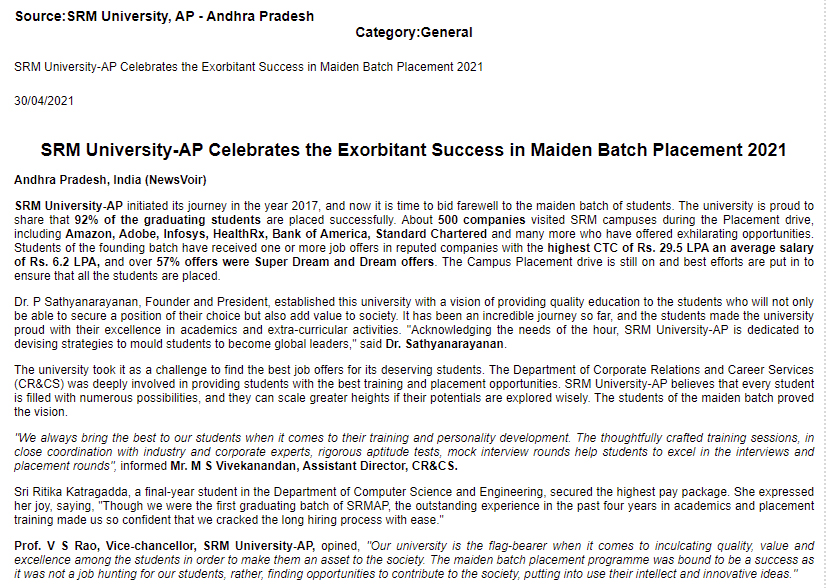
Start up to stand out – Apr 29
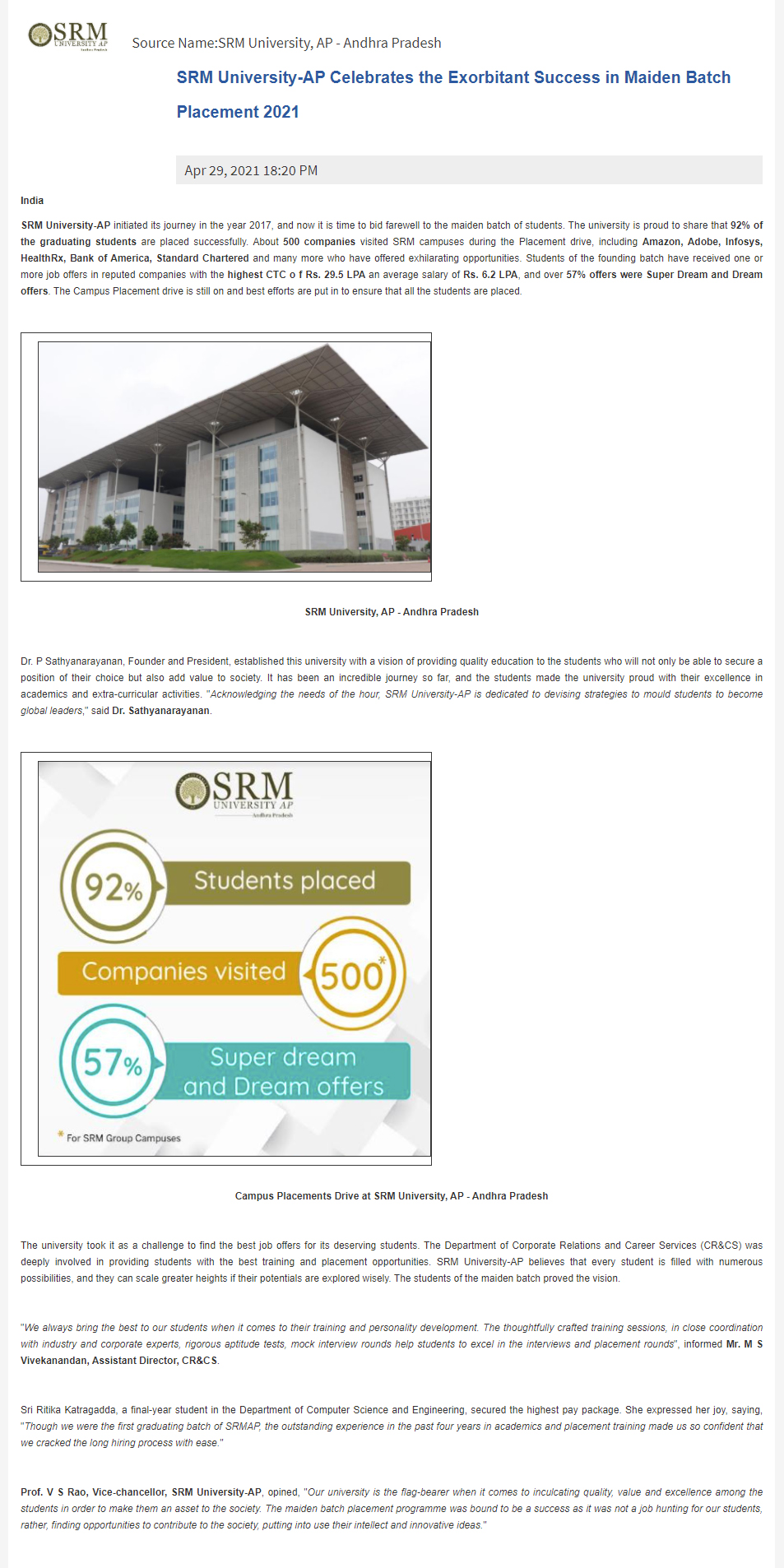
Uttarakhand News Network – Apr 29
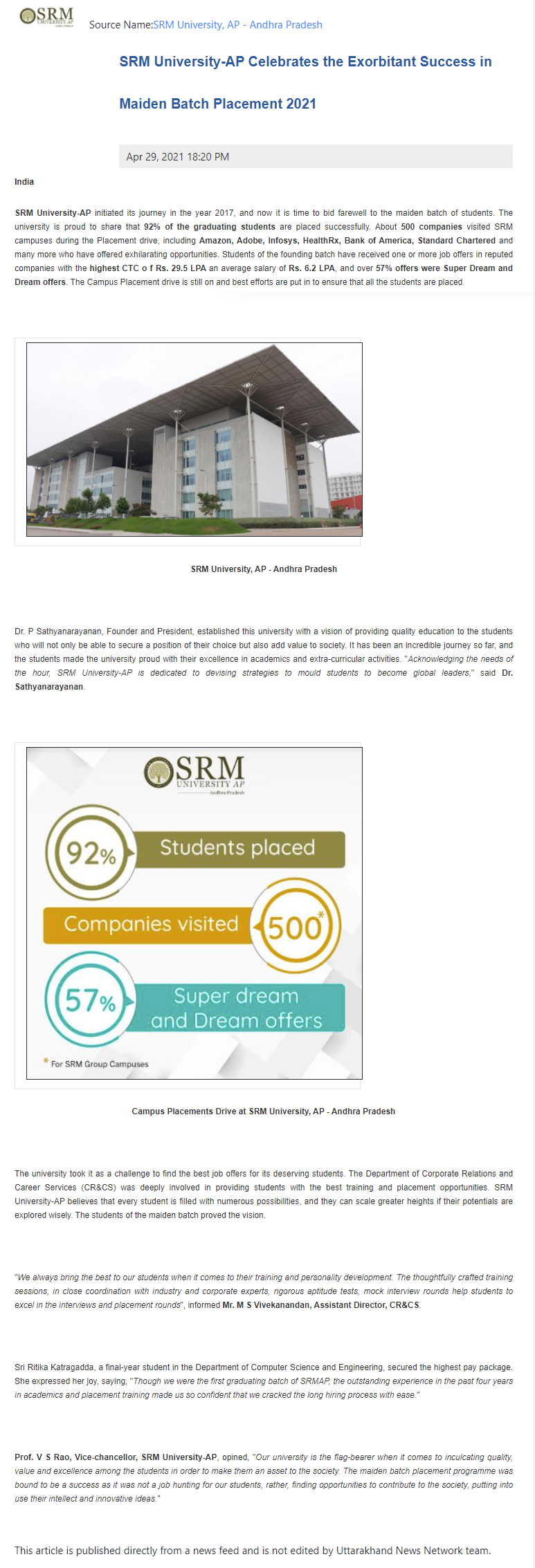
Satnapalli News – May 01
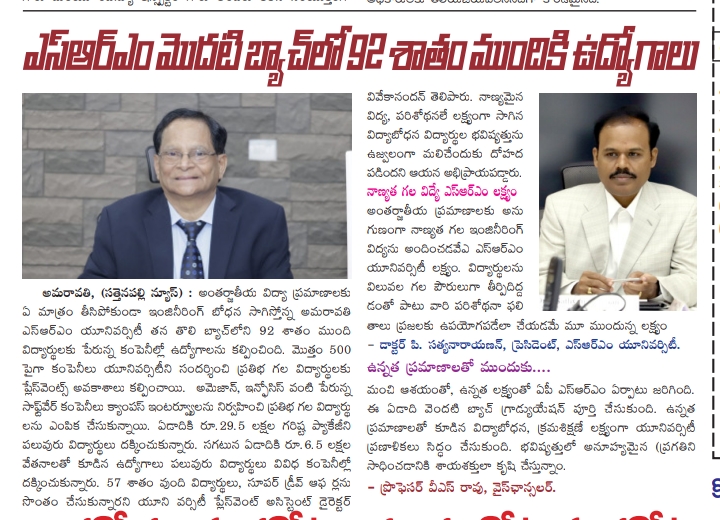
PrajaSakthi – May 01
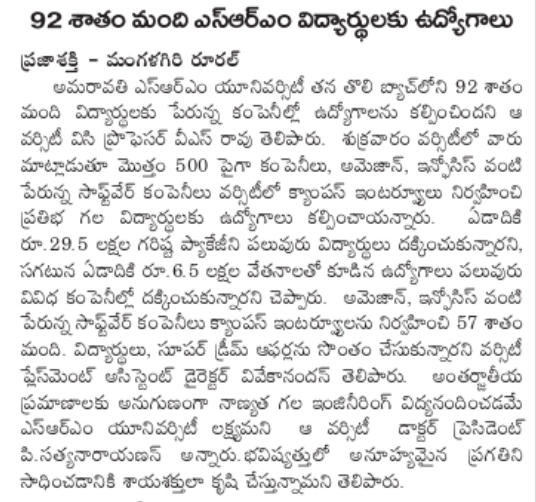
Andhra Prabha – May 01
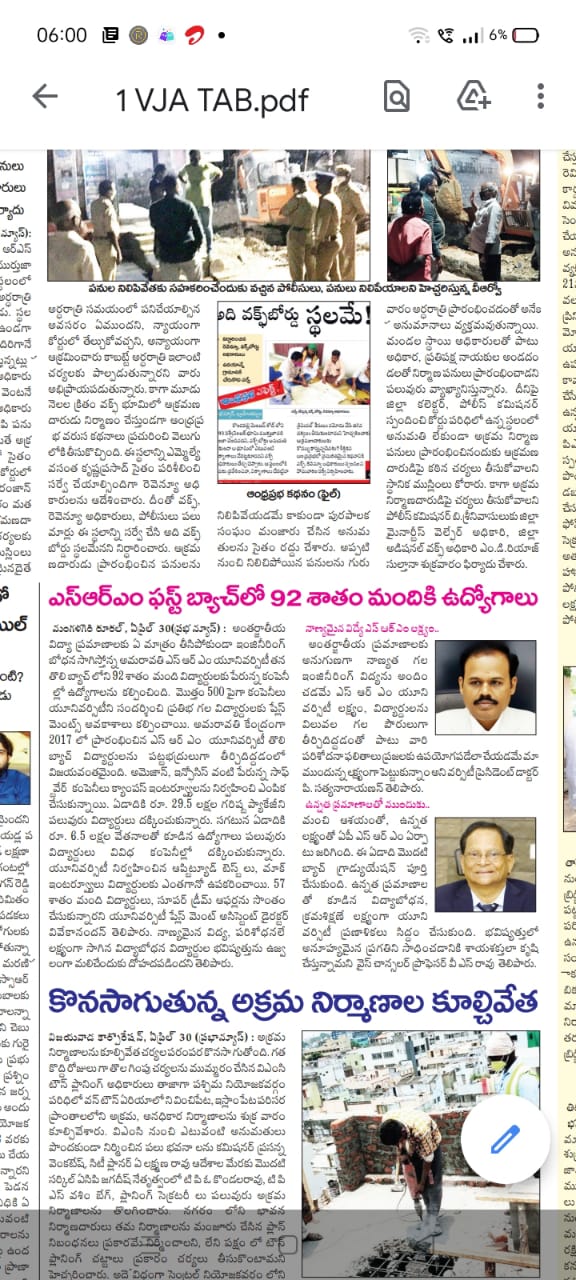
Sakshi – May 01
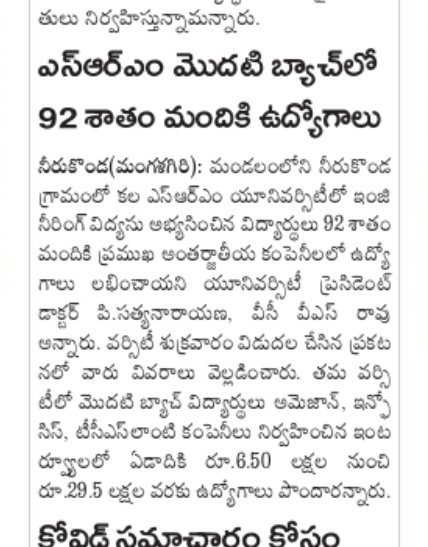
Dainik Jagran – Apr 30
Continue reading →
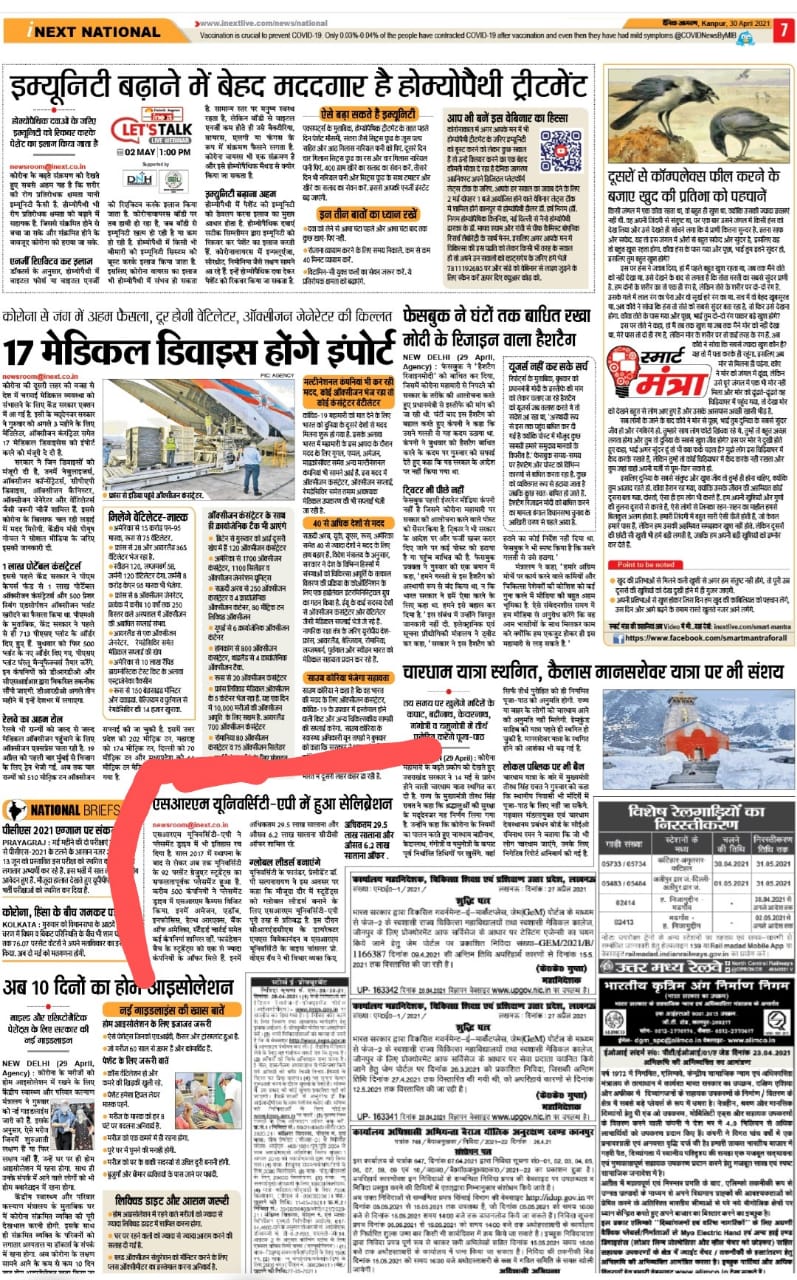
- Dr Javid Ahmad Dar April 30, 2021
- International Conclave on the Role of Technology for the Sustainable Agricultural Growth for Future Generations April 29, 2021
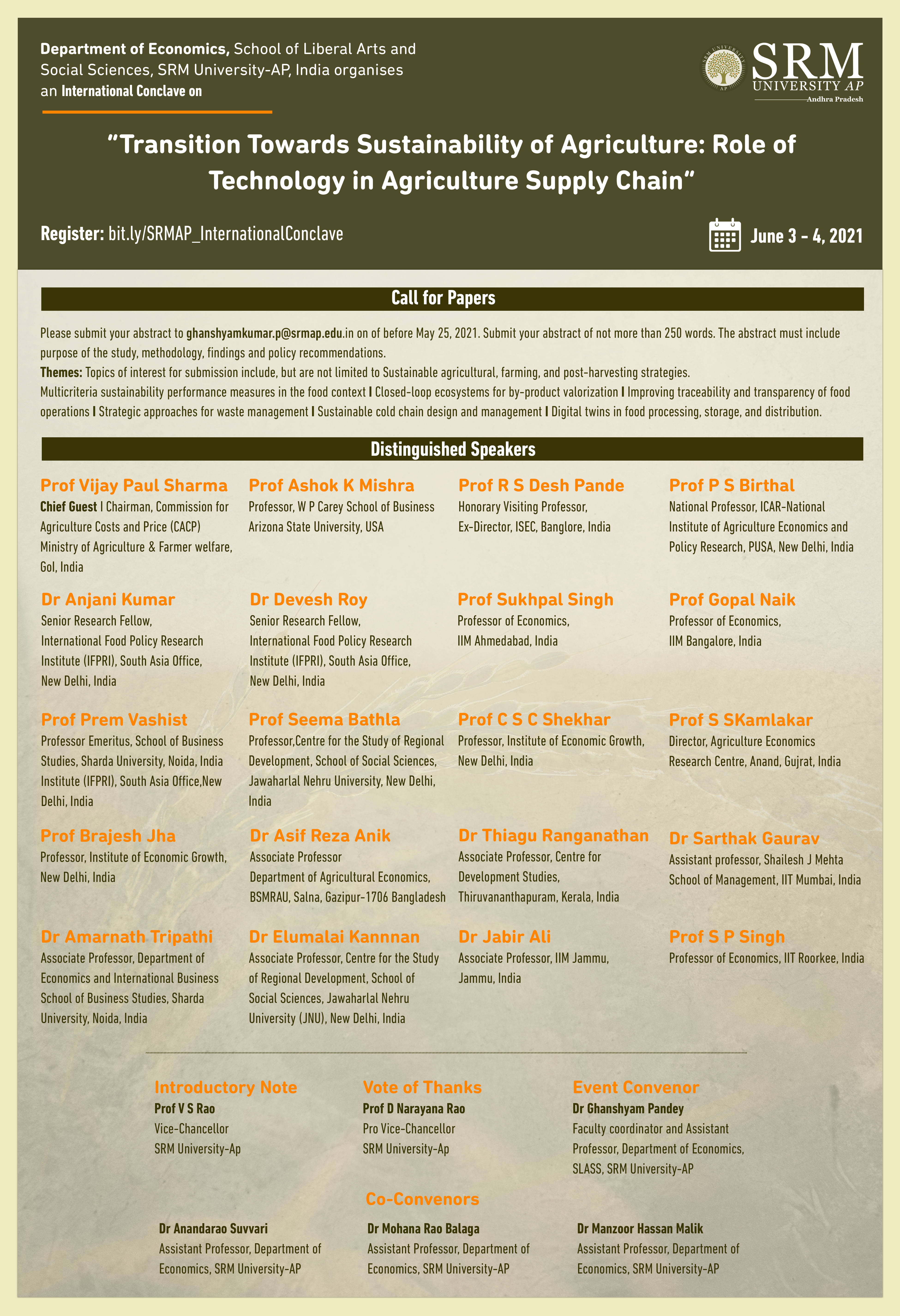 An International Conclave on the “Transition towards sustainability of Agriculture: Role of Technology in Agriculture Supply Chain” is being organised by the Department of Economics, School of Liberal Arts and Social Sciences, SRM University-AP, Andhra Pradesh on June 3-4 from 9 am. Renowned economists and experts across the world will be joining the conclave to share their thoughts and perspectives on the much-needed topic of this time. Faculty and Scholars are invited to submit the abstracts of their research papers on or before May 25, 2021. Prof Vijay Paul Sharma, Chairman, Commission for Agriculture Costs and Price (CACP) Ministry of Agriculture & Farmer Welfare, Govt of India, will grace the conclave with his presence as the Chief Guest.
An International Conclave on the “Transition towards sustainability of Agriculture: Role of Technology in Agriculture Supply Chain” is being organised by the Department of Economics, School of Liberal Arts and Social Sciences, SRM University-AP, Andhra Pradesh on June 3-4 from 9 am. Renowned economists and experts across the world will be joining the conclave to share their thoughts and perspectives on the much-needed topic of this time. Faculty and Scholars are invited to submit the abstracts of their research papers on or before May 25, 2021. Prof Vijay Paul Sharma, Chairman, Commission for Agriculture Costs and Price (CACP) Ministry of Agriculture & Farmer Welfare, Govt of India, will grace the conclave with his presence as the Chief Guest.The agriculture and food sectors are facing multiple challenges. With the global population projected to grow from 7.6 billion in 2018 (UN DESA, 2019) to over 9.6 billion in 2050, there will be a significant increase in the demand for food (UN DESA, 2017). At the same time, the availability of natural resources such as fresh water and productive arable land is becoming increasingly constrained. Production is not the only concern; although agricultural output is currently enough to feed the world, 821 million people still suffer from hunger (FAO, 2018). Processes such as the rapid rate of urbanisation also have important implications for food production patterns and consumption. The agri-food sector remains critical for livelihoods and employment. There are more than 570 million smallholder farms worldwide (Lowder et al., 2016), and agriculture and food productions account for 28% of the entire global workforce (ILOSTAT, 2019).
Achieving the UN Sustainable Development Goal of a ‘world with zero hunger’ by 2030 will require more productive, efficient, sustainable, inclusive, transparent and resilient food systems. This will require an urgent transformation of the current agri-food system. Digital innovations and technologies may be part of the solution. The so-called ‘Fourth Industrial Revolution’ (Industry 4.0) observes several sectors to be transformed rapidly by ‘disruptive’ digital technologies such as Blockchain, Internet of Things, Artificial Intelligence and Immersed Reality. In the agriculture and food sectors, the spread of mobile technologies, remote-sensing services and distributed computing are already improving smallholders’ access to information, inputs, market, finance and training. Digital technologies are creating new opportunities to integrate smallholders into a digitally-driven agri-food system. In this two-day Internation Conclave, reputed experts will shed some light by sharing their wisdom with others on the recent challenges and the scope associated with it. Needless to say, food will always be an integral part of the basic need of humans. In these discussions, the path towards ensuring enough food supply for future generations will be searched.
The Department of Economics, under the School of Liberal Arts and Social Sciences at SRM University-AP, is a vibrant unit for teaching fundamental courses (core & electives) in Economics along with allied courses for students across the disciplines. In addition to the Foundation Courses and optional Minors across the departments, the department ensures that the education imparted is truly multidisciplinary with an excellent programme structure that can cater to the growing market demand for professional economists and policy researchers. At Present, the department offers B.Sc. (Hons.) and PhD in Economics and will soon offer a postgraduate programme with specialisations in Econometrics, Finance, Trade and Development in coming years.
Call for Papers:
Faculty and Scholars are invited to submit the abstracts to be presented at the conclave “Transition towards sustainability of Agriculture: Role of Technology in Agriculture Supply Chain” on or before May 25, 2021. The abstract must go through the review, and if accepted by the reviewers, the abstract acceptance notification will be sent. There is no registration fee to participate in the conclave. The event will take place entirely in virtual mode. Please submit the abstracts to ghanshyamkumar.p@srmap.edu.in on or before May 25, 2021. Abstracts should not be more than 250 words, and it must include the purpose of the study, methodology, findings and policy recommendations.Themes:
Topics of interest for submission include, but are not limited to:- Sustainable agricultural, farming, and post-harvesting strategies
- Multicriteria sustainability performance measures in the food context
- Closed-loop ecosystems for by-product valorisation
- Improving traceability and transparency of food operations
- Strategic approaches for waste management
- Sustainable cold chain design and management
- Digital twins in food processing, storage, and distribution
Distinguished Speakers:
- Prof Vijay Paul Sharma, Chairman, Commission for Agriculture Costs and Price (CACP)Ministry of Agriculture & Farmer Welfare, Govt of India
- Prof Ashok K Mishra, Professor, W P Carey School of Business, Arizona State University, USA
- Prof R S Deshpande, Honorary Visiting Professor, Ex-Director, ISEC, Bangalore, India
- Prof P S Birthal, National Professor, ICAR-National Institute of Agriculture Economics and Policy Research, PUSA, New Delhi, India
- Dr Anjani Kumar, Senior Research Fellow, International Food Policy Research Institute (IFPRI), South Asia Office, New Delhi, India
- Dr Devesh Roy, Senior Research Fellow, International Food Policy Research Institute (IFPRI), South Asia Office, New Delhi, India
- Prof Sukhpal Singh, Professor of Economics, IIM Ahmedabad, India
- Prof Gopal Naik, Professor of Economics, IIM Bangalore, India
- Prof Prem Vashisth, Professor Emeritus, School of Business Studies, Sharda University, Noida, India
- Prof Seema Bathla, Professor, Centre for the Study of Regional Development, School of Social Sciences, Jawaharlal Nehru University, New Delhi, India
- Prof C S C Shekhar, Professor, Institute of Economic Growth, New Delhi, India
- Prof S S Kamlakar, Director, Agriculture Economics Research Centre, Anand, Gujrat, India
- Prof Brajesh Jha Professor, Institute of Economic Growth, New Delhi, India
- Dr Asif Reza Anik Associate Professor Department of Agricultural Economics Bangabandhu Sheikh Mujibur Rahman Agricultural University (BSMRAU) Salna, Gazipur-1706 Bangladesh
- Dr Thiagu Ranganathan, Associate Professor, Centre for Development Studies, Thiruvananthapuram, Kerala, India
- Dr Sarthak Gaurav Assistant professor, Shailesh J Mehta School of Management, IIT, Mumbai, India
- Dr Amarnath Tripathi, Associate Professor, Department of Economics and International Business School of Business Studies, Sharda University, Noida, India
- Dr Elumalai Kannnan, Associate Professor, Centre for the Study of Regional Development, School of Social Sciences, Jawaharlal Nehru University (JNU), New Delhi, India
- Dr Jabir Ali, Associate Professor, IIM Jammu, Jammu, India
- Prof S P Singh, Professor of Economics, IIT Roorkee, India
Registration Link: https://srmap.zoom.us/webinar/register/WN_LhUJ0qKwQbeZpXj02y7CXQ
Brochure: Click here to view the detailed brochure
Continue reading → - “National Symposium on High Energy Physics”-enthralling discussion on Particle Physics, Dark Matter and gravitational waves April 29, 2021
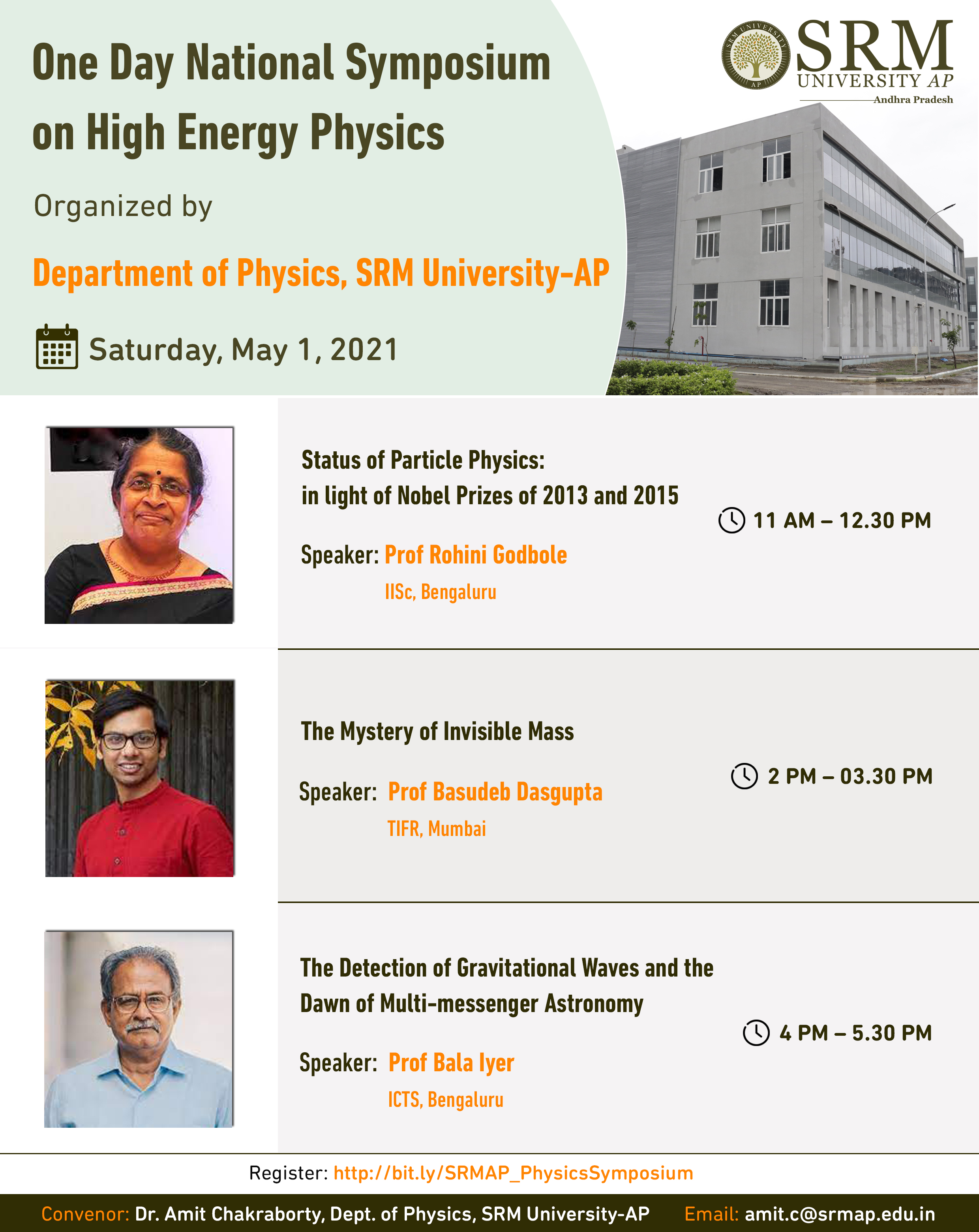 The Department of Physics, SRM University-AP, Andhra Pradesh, has organised a National Symposium on High Energy Physics on Saturday, May 1, 2021, at 11 am. Leading Physicists of the nation are going to share their perspective on the progress and recent challenges in Particle Physics, Dark Matter Physics and Gravitational-Wave Astronomy. Padma Shri awardee Prof Rohini Godbole, theoretical particle physicist at the Indian Institute of Science (IISc), Bengaluru, will present the inaugurating talk on “Status of Particle Physics: in light of Nobel Prizes of 2013 and 2015”. Prof Basudeb Dasgupta from the Tata Institute of Fundamental Research (TIFR), Mumbai, will join us for the next session on “The Mystery of Invisible Mass”. The last talk of the day will be given by Prof. Bala Iyer from the International Centre for Theoretical Sciences (ICTS), Bengaluru. He will shed light on “The Detection of Gravitational Waves and the Dawn of Multi-messenger Astronomy”.
The Department of Physics, SRM University-AP, Andhra Pradesh, has organised a National Symposium on High Energy Physics on Saturday, May 1, 2021, at 11 am. Leading Physicists of the nation are going to share their perspective on the progress and recent challenges in Particle Physics, Dark Matter Physics and Gravitational-Wave Astronomy. Padma Shri awardee Prof Rohini Godbole, theoretical particle physicist at the Indian Institute of Science (IISc), Bengaluru, will present the inaugurating talk on “Status of Particle Physics: in light of Nobel Prizes of 2013 and 2015”. Prof Basudeb Dasgupta from the Tata Institute of Fundamental Research (TIFR), Mumbai, will join us for the next session on “The Mystery of Invisible Mass”. The last talk of the day will be given by Prof. Bala Iyer from the International Centre for Theoretical Sciences (ICTS), Bengaluru. He will shed light on “The Detection of Gravitational Waves and the Dawn of Multi-messenger Astronomy”.Our first speaker of the day, Prof Rohini M Godbole, is a theoretical particle physicist at the Indian Institute of Science, Bangaluru. Over the past three decades, she has worked extensively on particle physics phenomenology, exploring different theoretical aspects of Standard Model and Beyond Standard Model physics at high energy collider experiments. She is an elected fellow of all the three Academies of Science of India and the Science Academy of the Developing World (TWAS). She has published over 200 research papers and received numerous recognitions from all over the world. Prof Godbole co-edited the book “Lilavati’s Daughters”, a collection of biographical essays on women scientists of India, which was published by the Indian Academy of Sciences. In 2019, she was awarded Padma Shri, the fourth highest civilian honour of the Government of India, for her contribution to Science and Technology.
In 2013, the Nobel prize in Physics was awarded for the theoretical postulate of the Higgs Boson, after the experimental discovery of the same at the LHC in 2012. This was considered being the last missing piece in the periodic table of the Standard Model (SM). In 2015 the Nobel prize in physics was awarded for the experimental discovery of Neutrino oscillations, which is one robust evidence for physics beyond the SM. In her speech, Prof Godbole will comment on the status of particle physics in light of these two and the exciting results on the measurements of the magnetic moment of the muon that have been announced in the previous weeks.
Prof Basudeb Dasgupta is a theoretical physicist at the Tata Institute of Fundamental Research (TIFR), Mumbai. His research interests include the interfaces of particle physics, astrophysics, and cosmology with an emphasis on dark matter and neutrino physics. Prof Dasgupta is also the Leader of the Astroparticle Physics Partner Group of Max-Planck Institute for Physics. Prof Dasgupta is a regular speaker at notable international workshops and conferences and different Science Outreach programmes.
When we look at the night sky, we see a variety of astronomical objects, such as planets, stars, gas clouds, still waiting to form stars to swathe of the emptiness. For a long time, it was believed to be all that the Universe is consists of. The following discoveries came as a huge surprise that all we see and know comprises only about 20% of the matters in the Universe. The remaining 80% is invisible and called “Dark Matter.” What is this dark matter? How do we know that is out there? What is it made of? How can we decipher the nature of this mysterious new ingredient of the cosmic soup? In this talk, Prof Basudeb Dasgupta will address and answer some of these questions.
Prof Bala Iyer is currently the Simons Visiting Professor at ICTS-TIFR Bangalore and CO-PI of the LIGO-India Scientific Collaboration. The alumnus of Bombay University previously worked at the Raman Research Institute, Bangalore, on Astrophysical applications of General Relativity, Perturbation methods and Black Holes. Since 1990, he is working on calculations of Gravitational waves from inspiraling binaries of neutron stars and black holes. He is a Fellow of the American Physical Society and International Society on General Relativity and Gravitation. He has been the Chair of the IndIGO Consortium since its inception in 2009. Prof Iyer was a Member of the Core Team for the LIGO-India Mega-Project Proposal. Further, he is the Chief Editor and Subject Editor of Gravitational Waves for the Online Journal `Living Reviews in Relativity’, published recently by Springer. Prof Bala Iyer has been a Visiting scientist in France, UK, Germany, USA. He has been involved in REAP (Research Education Advancement Programme) for B.Sc students at the Bangalore Planetarium for over two decades and Public outreach on General Relativity and Gravitational Waves.
The first detection of gravitational waves from a black hole binary in 2015 was a breakthrough, taking a century to realise, and made possible by the coming together of a remarkable experiment and an exquisite theory complemented by the best in sophisticated data analyses, state of the art computing and the transition to “big science”. 2017 brought the discovery of gravitational waves from a neutron star binary. The intense associated electromagnetic follow up of this event was spectacular. It heralds the launch of a new multi-messenger astronomy with the potential to impact astrophysics, cosmology and fundamental physics in the coming decades. Prof Bala Iyer will discuss the nature of gravitational wave and its impact on Physics.
The symposium aims to make students aware of the current status of some of the fascinating research topics of High Energy Physics. Students of basic sciences and engineering streams will be highly inspired and motivated after attending the symposium and listening to the talks. Join the captivating event on May 1, 2021, at 11 am.
Register: Click on this link to register for the Symposium
Continue reading → - “Covid-Vaccine-Life Saviour”-an awareness campaign by Dr Lakshmi Rajyam April 28, 2021
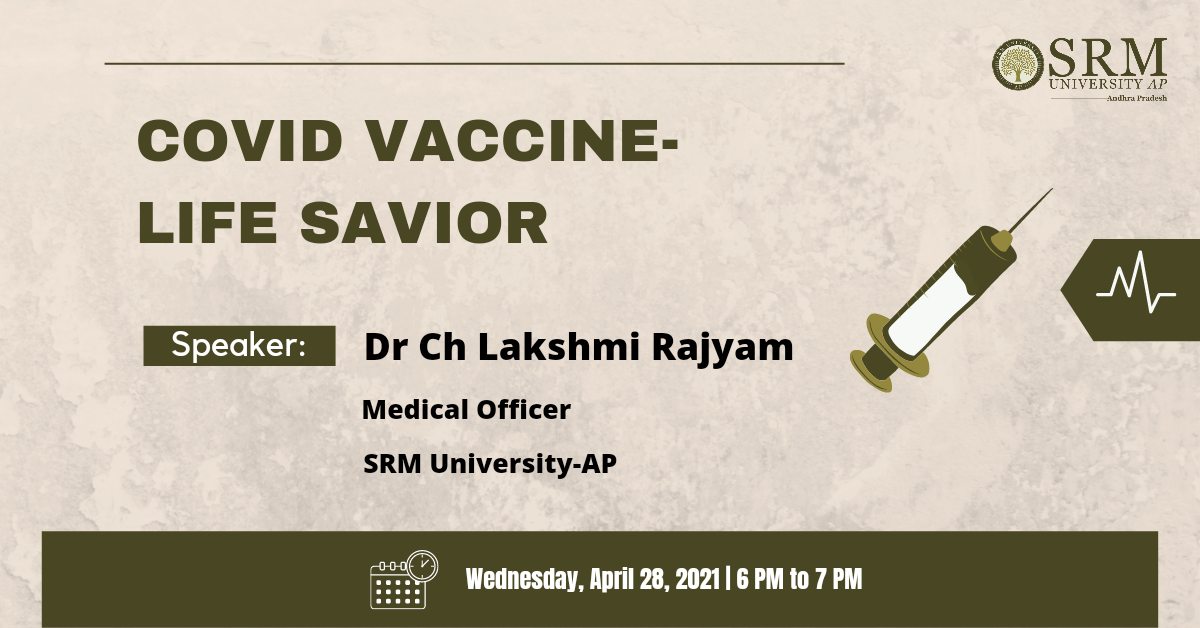 Although Covid-19 vaccines became available for the people throughout the nation, a massive number of the population is still in a dilemma on whether to avail it. The scepticism is caused by the numerous unverified opinions and comments that are being populated in the mass media. Under the confusion, people are missing out on the boon of Medical Science and are causing more risk to themselves.
Although Covid-19 vaccines became available for the people throughout the nation, a massive number of the population is still in a dilemma on whether to avail it. The scepticism is caused by the numerous unverified opinions and comments that are being populated in the mass media. Under the confusion, people are missing out on the boon of Medical Science and are causing more risk to themselves.In this scenario, only a medical expert can answer the questions that are being raised against the vaccination, and for that matter, Dr Ch Lakshmi Rajyam is the most knowledgeable resource that SRM University-AP has. Following the advice of the COVID-19 SOP Committee, the Department of Student Affairs has launched “Covid-Vaccine-Life Saviour”, an awareness programme on COVID-19 vaccinations to raise consciousness among the people.
The names and manufacturers of the vaccines, doses, eligibility criteria, side effects and after-effects of the vaccines and other essential aspects regarding this will be parts of the discussion. Dr Rajyam will explain in details how vaccination offers protection against COVID-19, differentiating the facts and myths associated with it. She will further guide on the precautionary measures to be taken before and after the vaccines and the do’s and don’s associated with it.
Dr Ch Lakshmi Rajyam is a reputed doctor with 42 years of experience in the medical sciences. She is associated with the SRM Group for a long time and presently serving SRM University-AP as the Medical Officer. She is also an important part of the COVID-19 SOP Committee of the university and looking after the welfare of the students, staff and faculty members of the university during this trying time.
COVID-19 pandemic has crippled the world as we used to see it. The nation is becoming regressive with a moribund economy, the healthcare system is facing an unprecedented challenge. Many lives are being lost in this pandemic, and it is time to rise above the turmoil and learn what is the best possible method to ourselves safe. The faculty, staff and students of the university are requested to join the webinar on Wednesday, April 28, 2021, at 6 pm, where Dr Rajyam will be present to satisfy the queries and clear the doubts on the COVID-19 vaccinations.
Continue reading → - Undergrad Student research predicts stock market valuations April 26, 2021
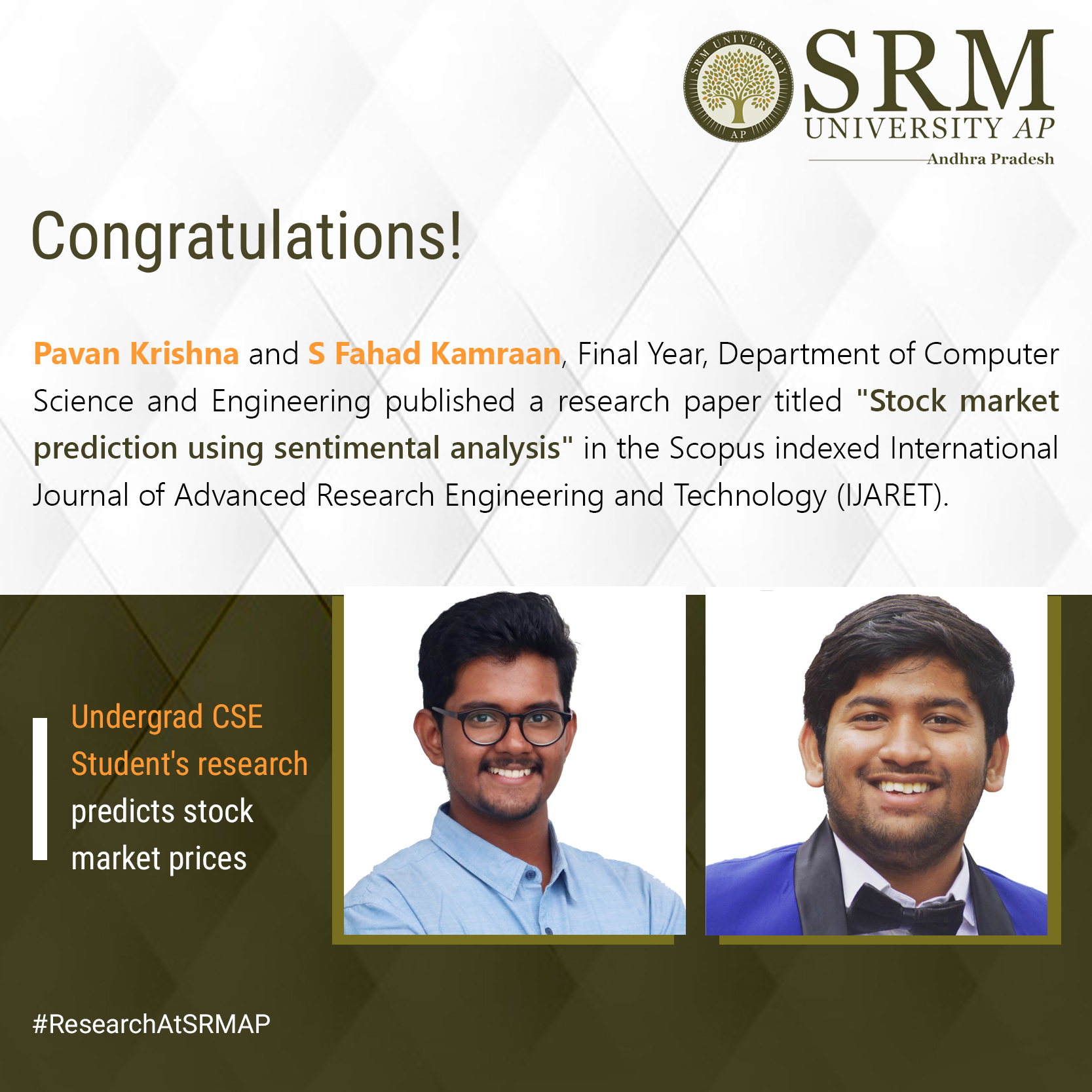 Pavan Krishna and S Fahad Kamraan, guided by Dr Priyanka, Department of Computer Science and Engineering, SRM University-AP, Andhra Pradesh, successfully published a research paper titled “Stock market prediction using sentimental analysis” in the Scopus indexed “International Journal of Advanced Research Engineering and Technology (IJARET)” on March 2021. Being the students of the Department of Computer Science and Engineering, both researchers have apt knowledge on the sentimental analysis commonly known as opinion mining or emotion AI led to the successful execution of the research project.
Pavan Krishna and S Fahad Kamraan, guided by Dr Priyanka, Department of Computer Science and Engineering, SRM University-AP, Andhra Pradesh, successfully published a research paper titled “Stock market prediction using sentimental analysis” in the Scopus indexed “International Journal of Advanced Research Engineering and Technology (IJARET)” on March 2021. Being the students of the Department of Computer Science and Engineering, both researchers have apt knowledge on the sentimental analysis commonly known as opinion mining or emotion AI led to the successful execution of the research project.Sentimental analysis is used to help find patterns in textual data, to understand people’s emotions and sentiments in a much deeper and holistic way. It is used to find the polarity of the information and to classify it under different emotion/ sentiment radar all the way from sad to happy or too excited.
The key title takes a dig into a study involving a new method of predicting stocks by performing sentimental analysis on the financial data. A sentiment is analysed on the subjectivity and polarity index by classifying it into positive and negative news. Here, to predict the real-time stock price, sentiment analysis measures the polarity or subjectivity score, respectively.
“While pursuing my minor in Business Management, I gained Financial Literacy and eventually found an interest in the Stock Market & its behaviour. At the same time, we noticed how social media plays a crucial role in deciding stock prices. Fahad and I were so intrigued that we decided to take up a Project on Predicting Stock Market Prices based on Sentimental Analysis of statement – News & Tweets”, informed Pavan.
Fahad further acknowledged that the project was a big step for undergraduate students, and it could not have been possible without the guidance and motivation of Dr Priyanka, their mentor. “Dr Priyanka was the constant support and path-bearer for us as she showed immense faith until the goal is achieved”, said Fahad.
The duo was excited after receiving high praises and acclaims for their research project. They look forward to coming up with more research ideas that can benefit society.
Continue reading →


